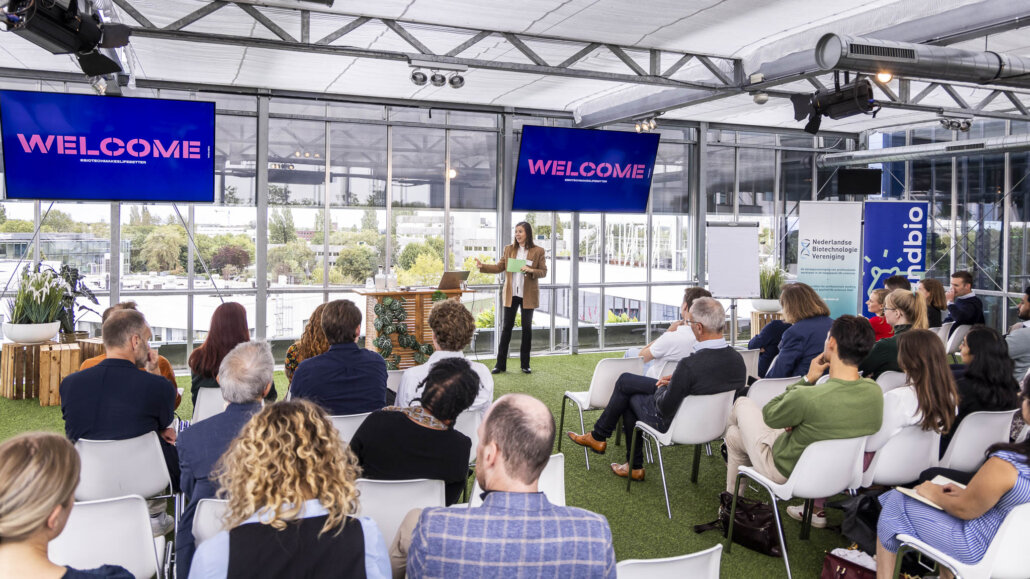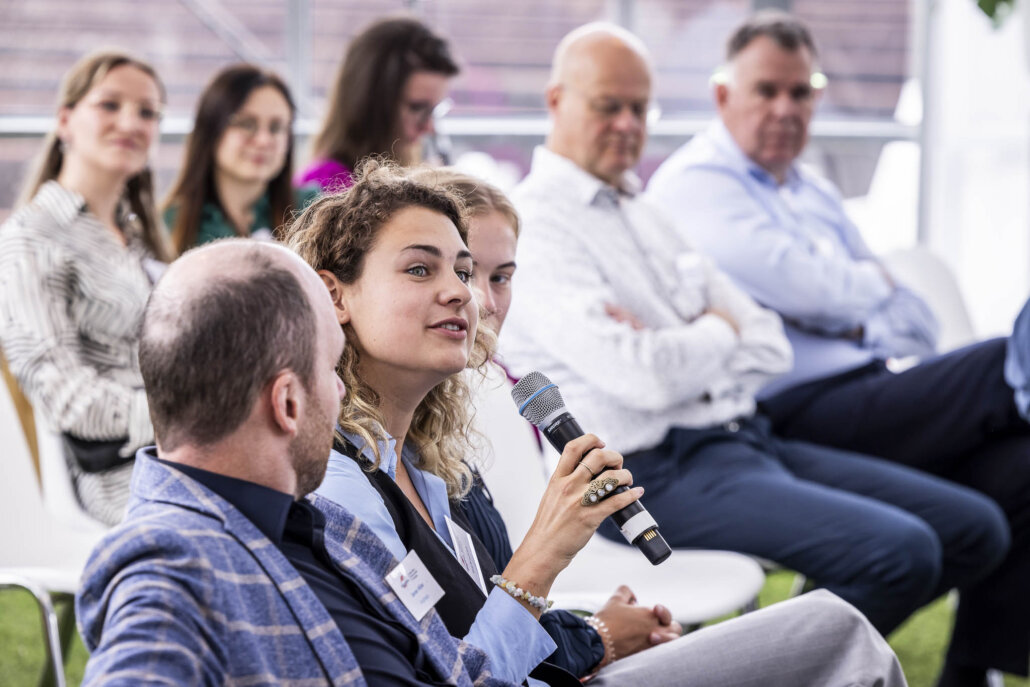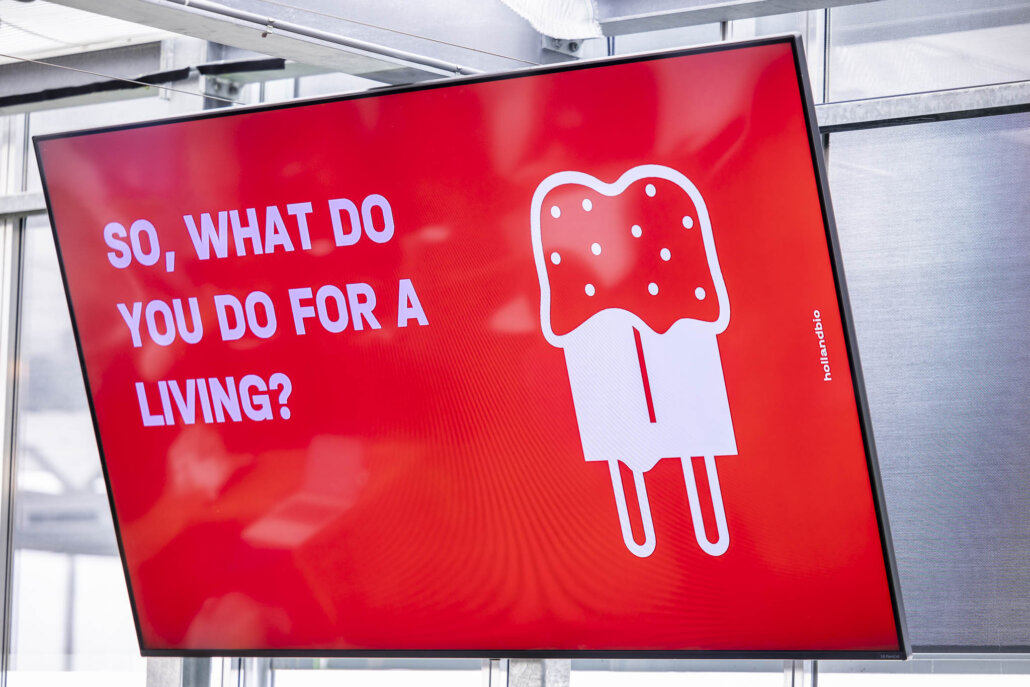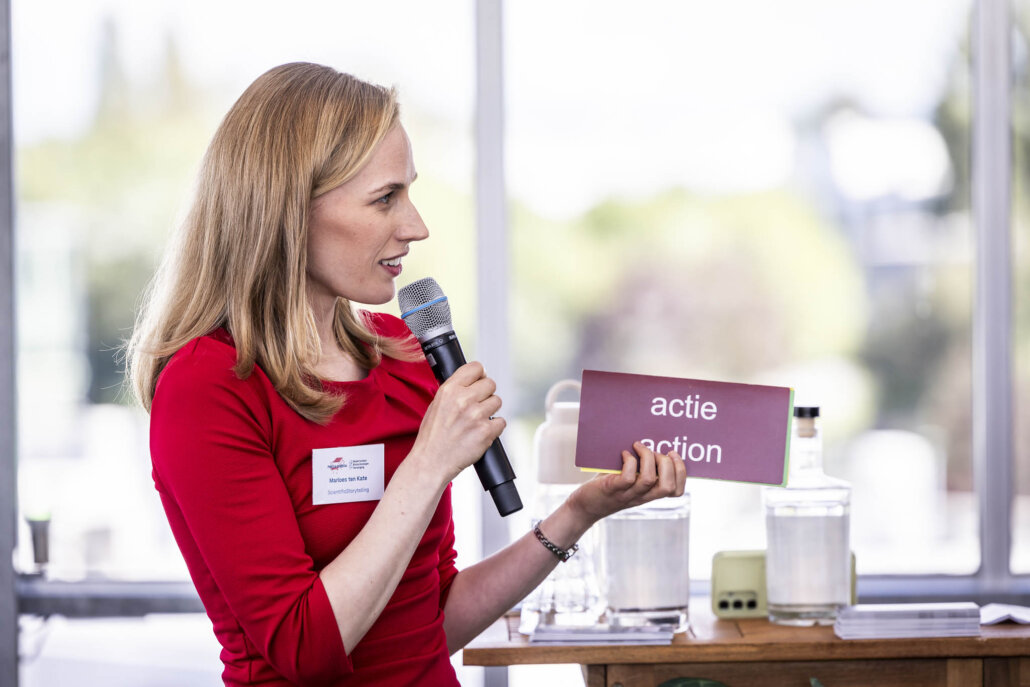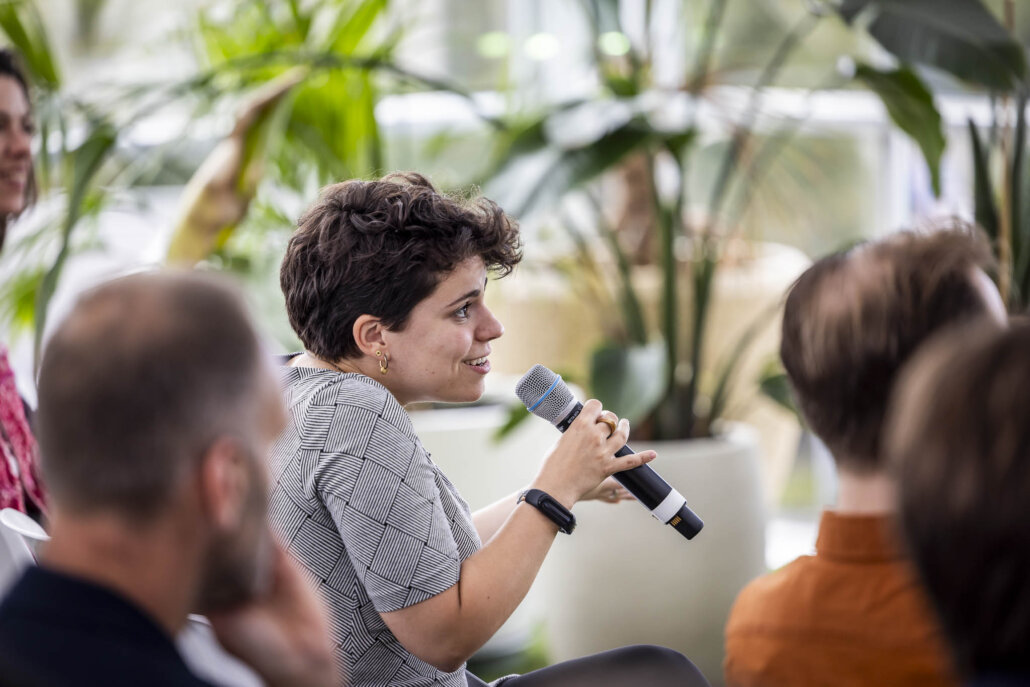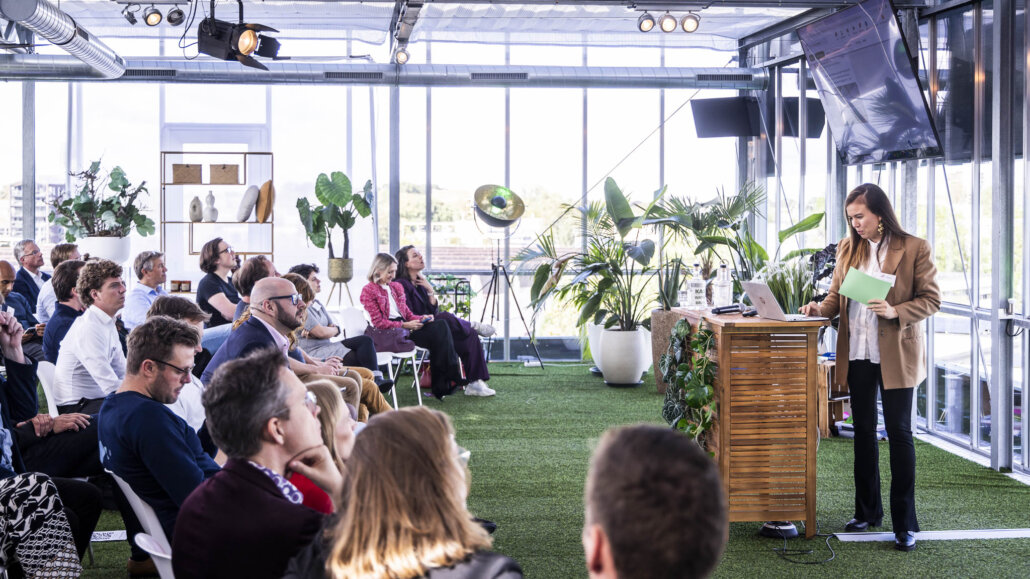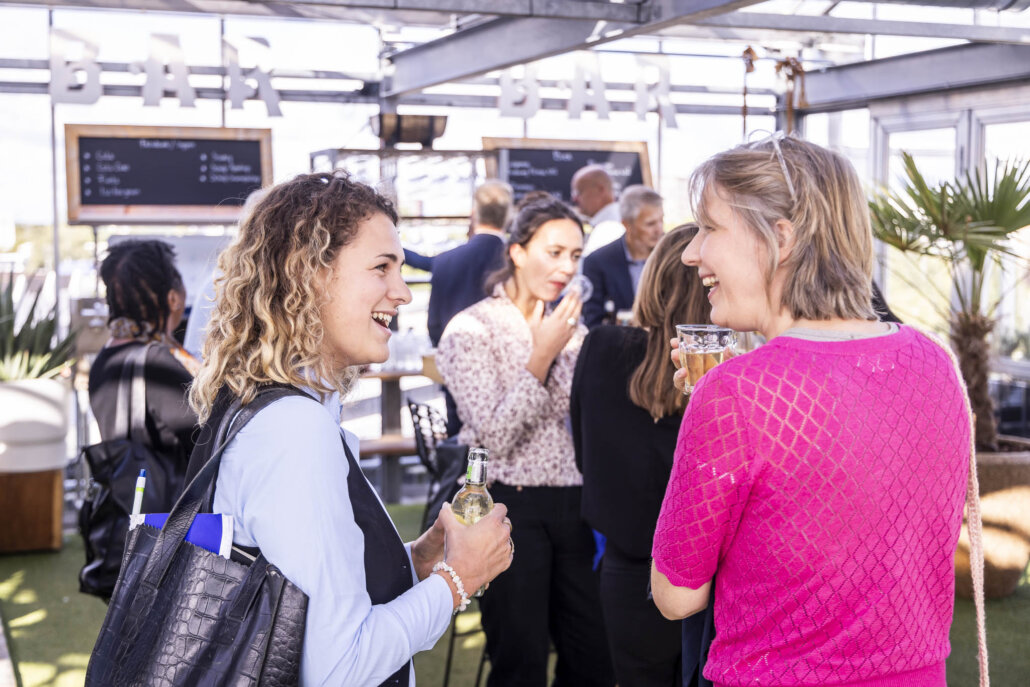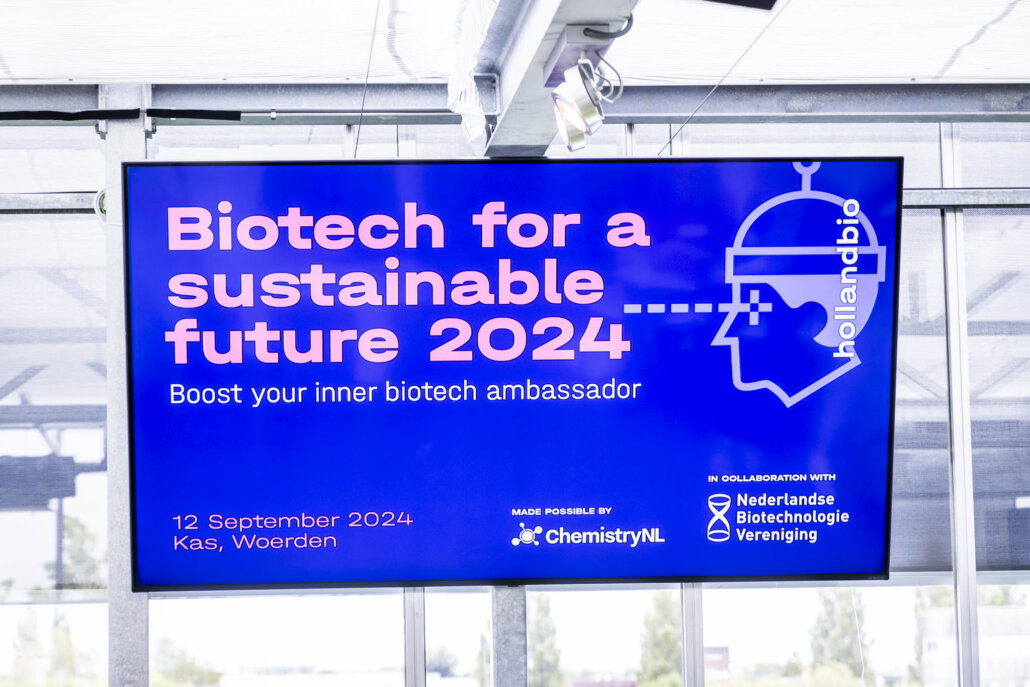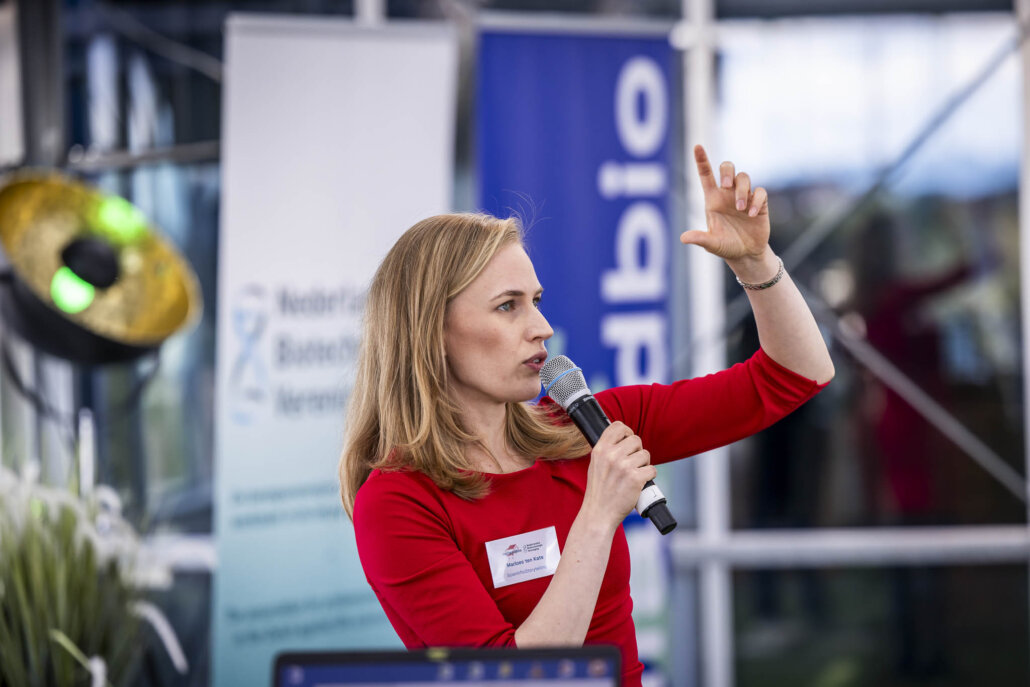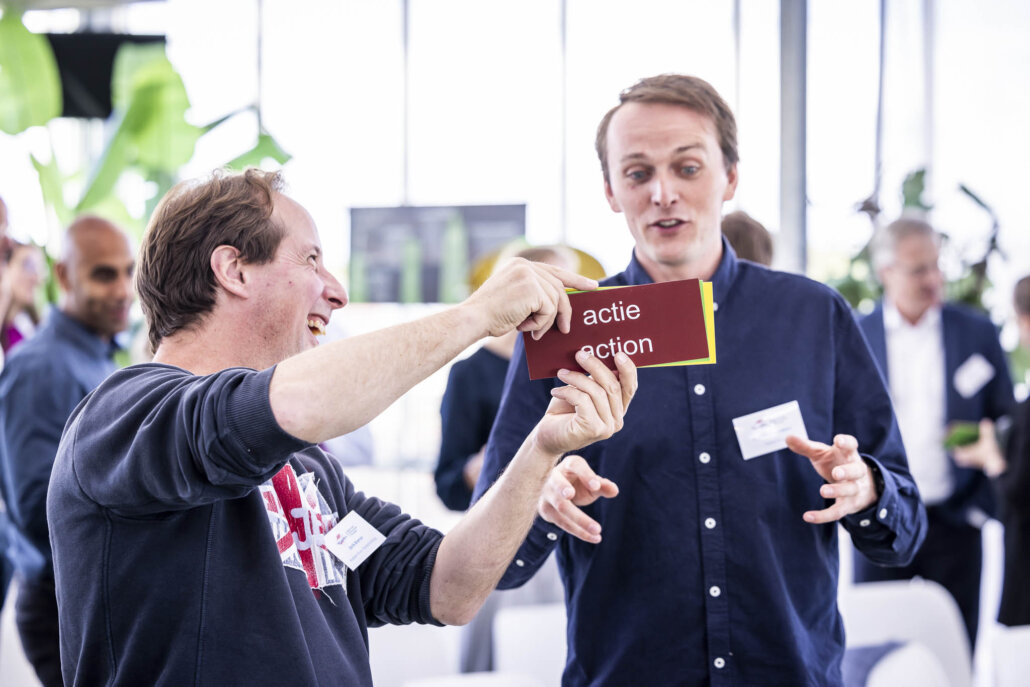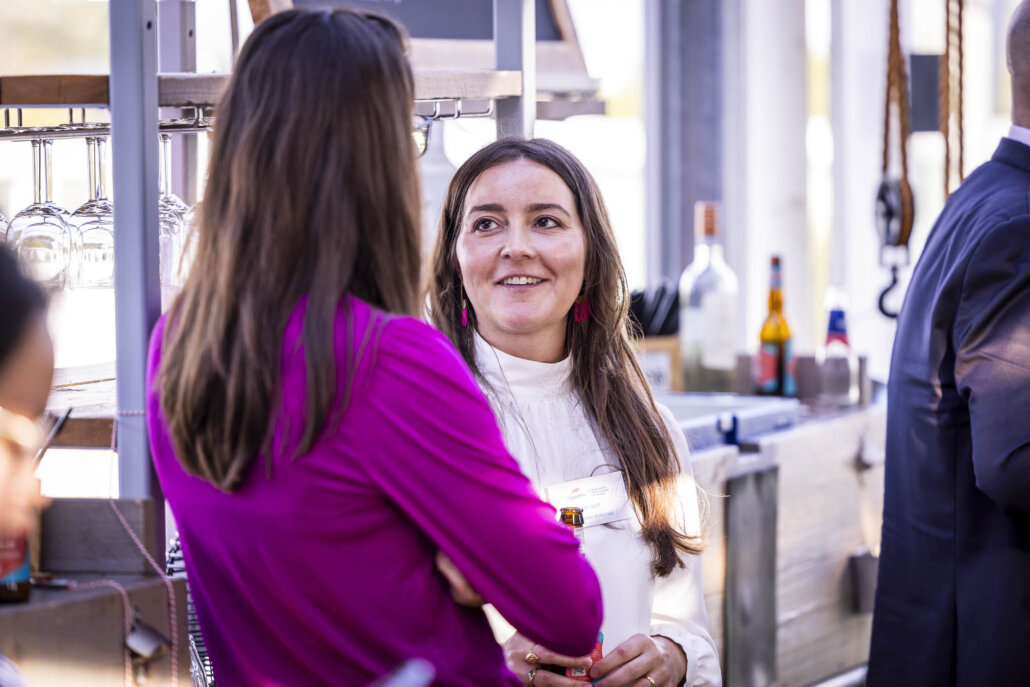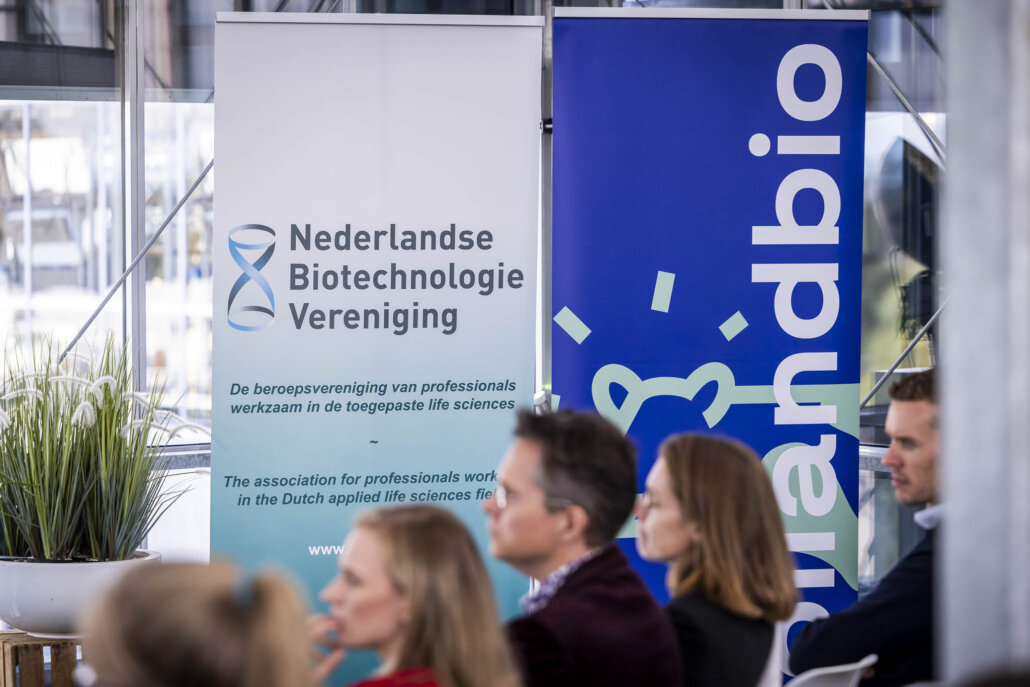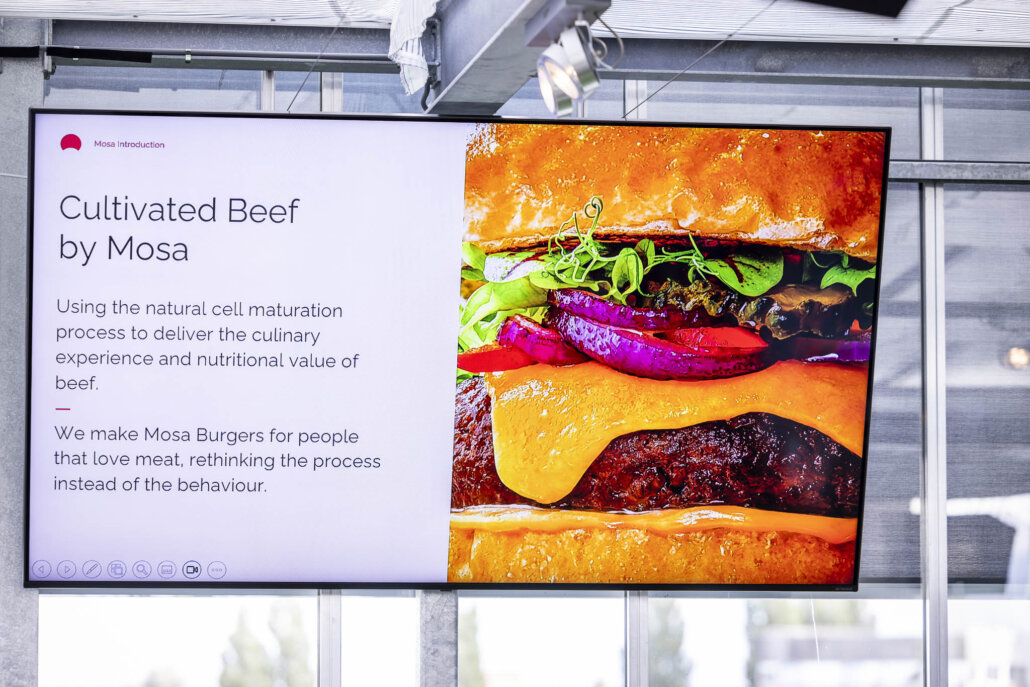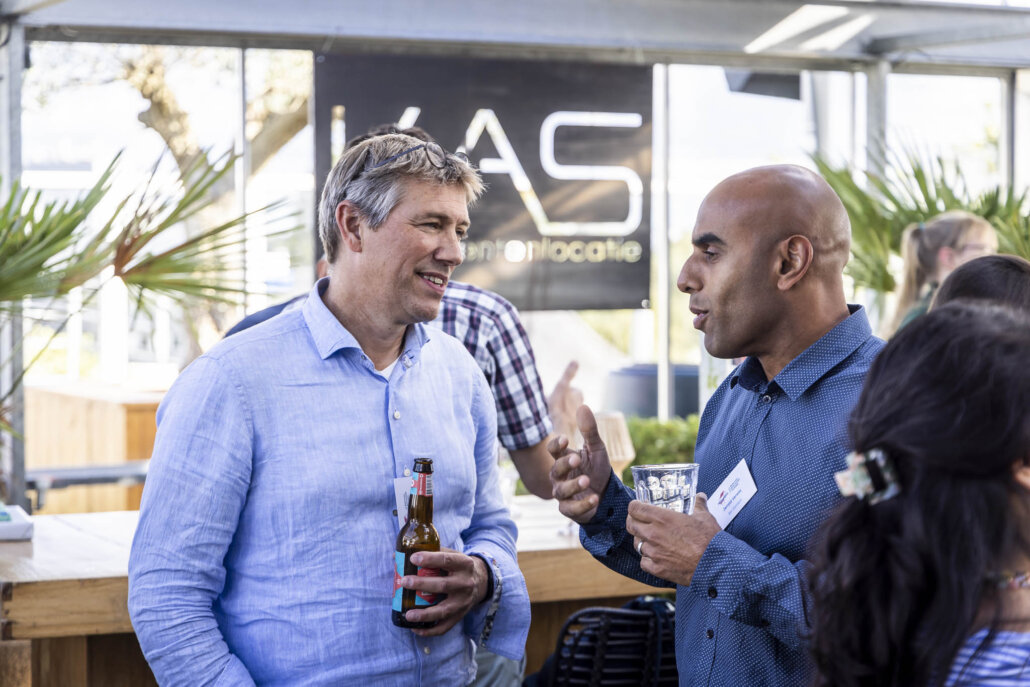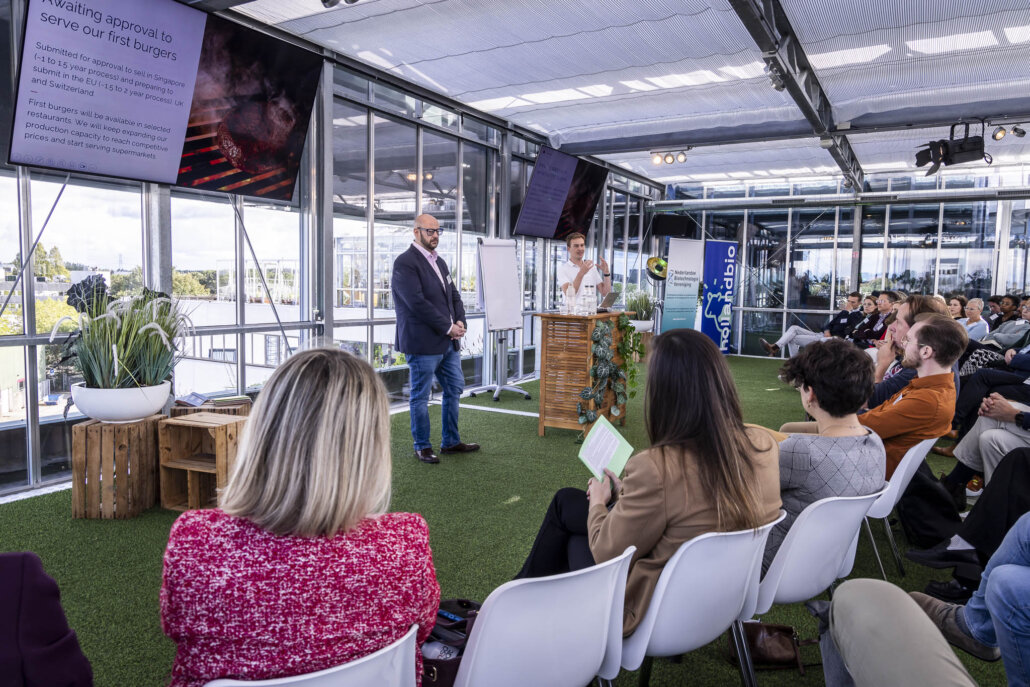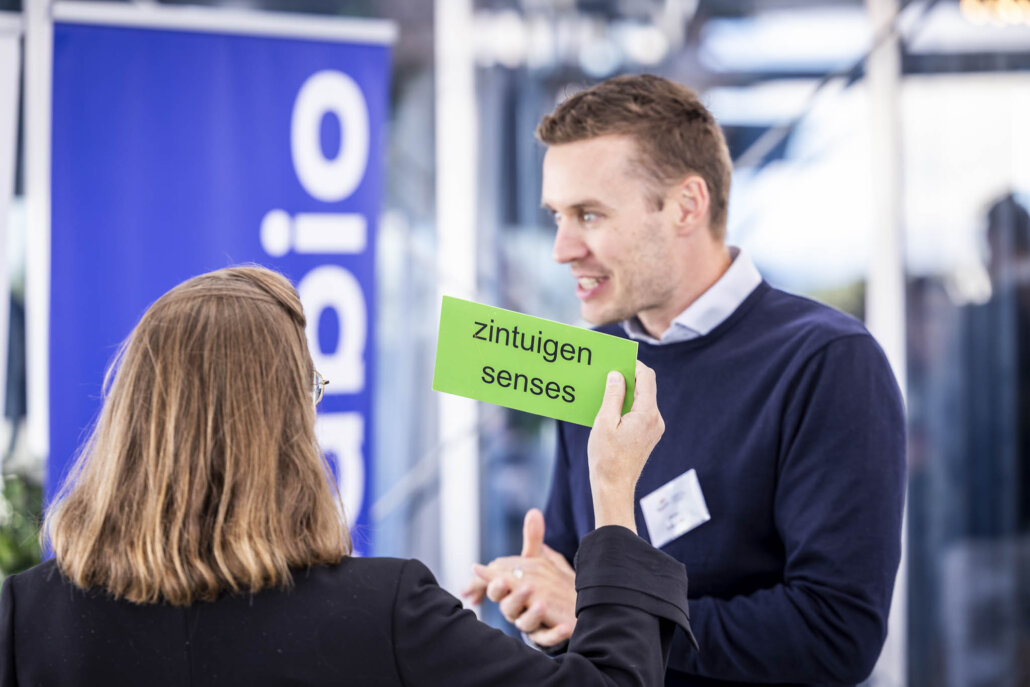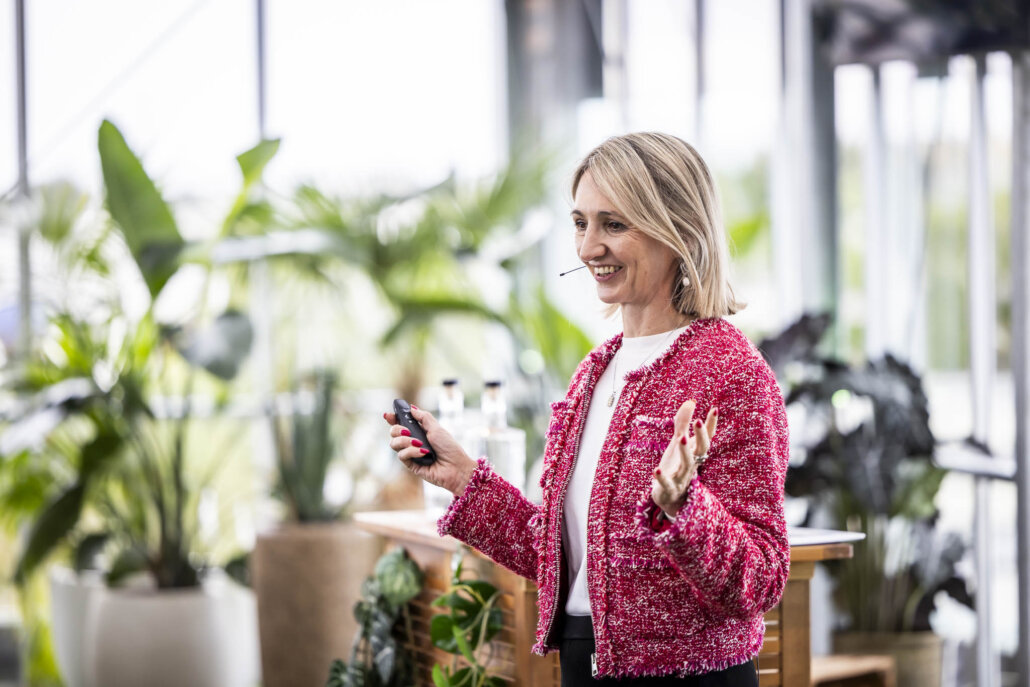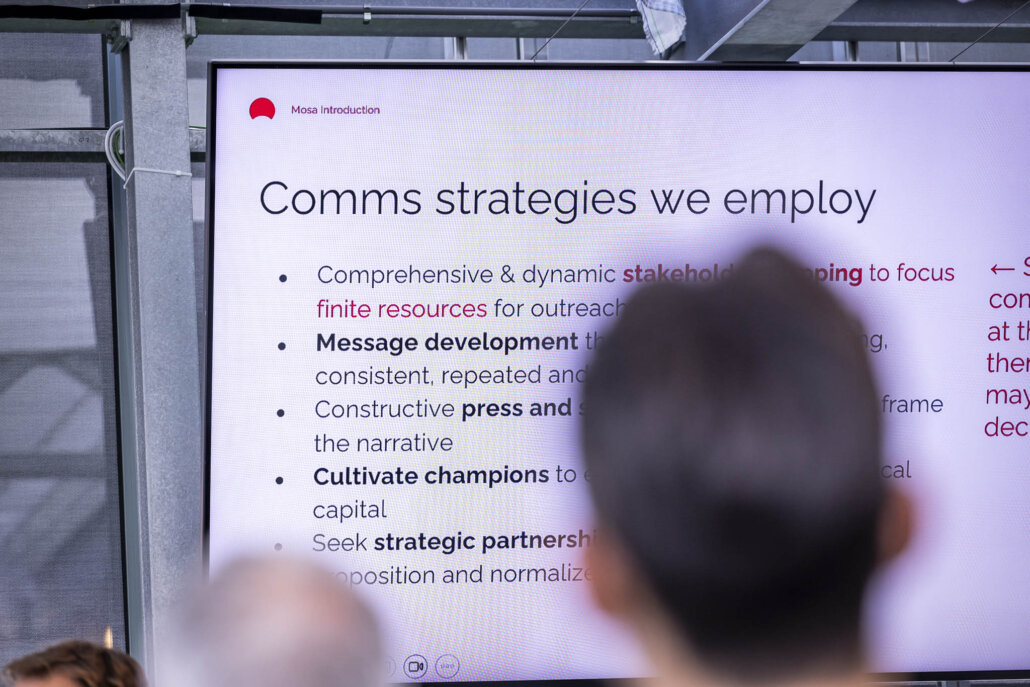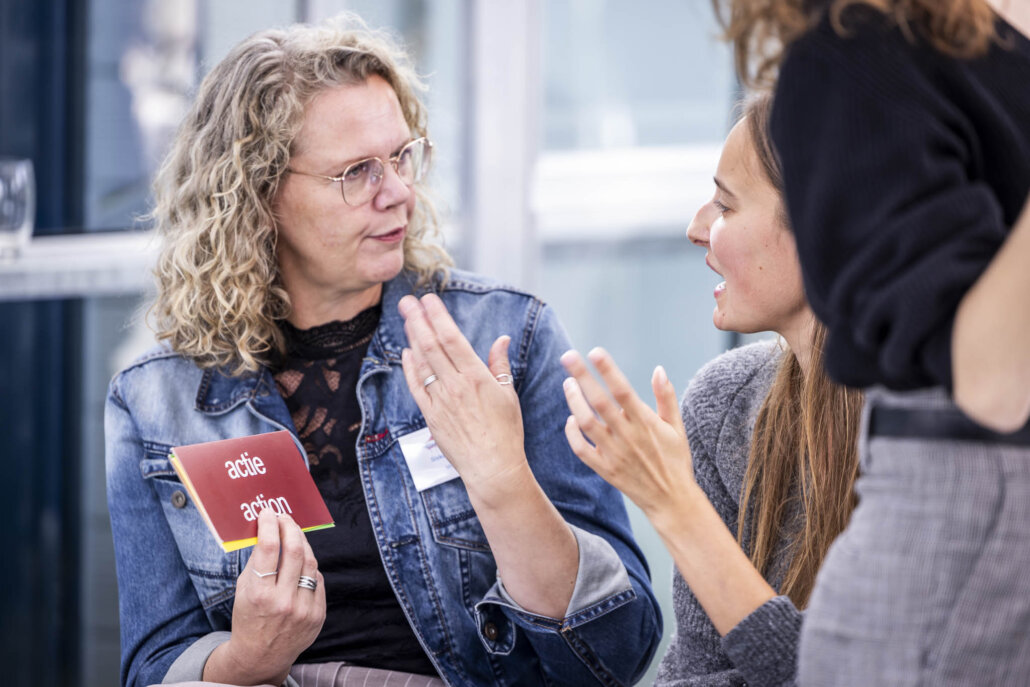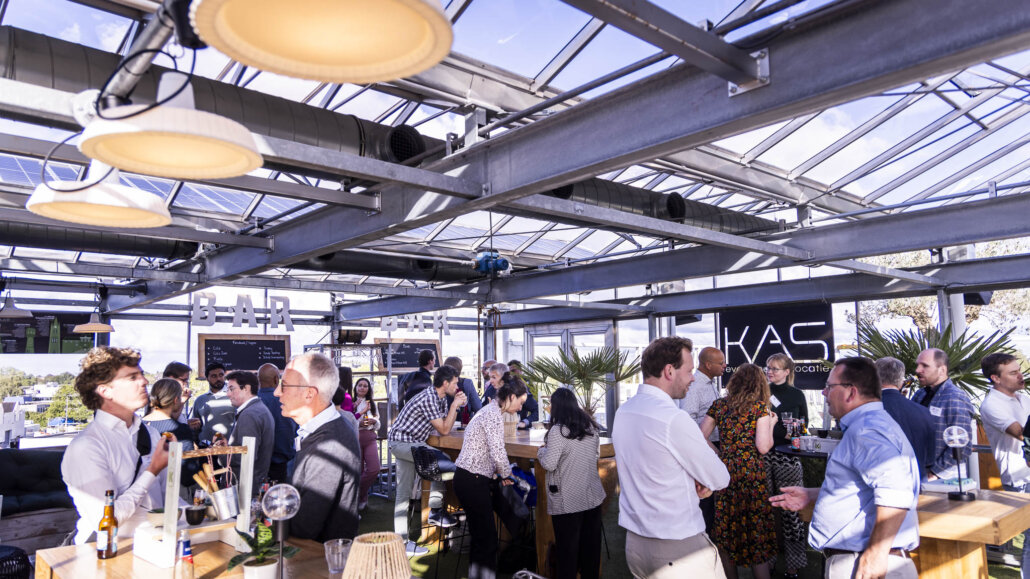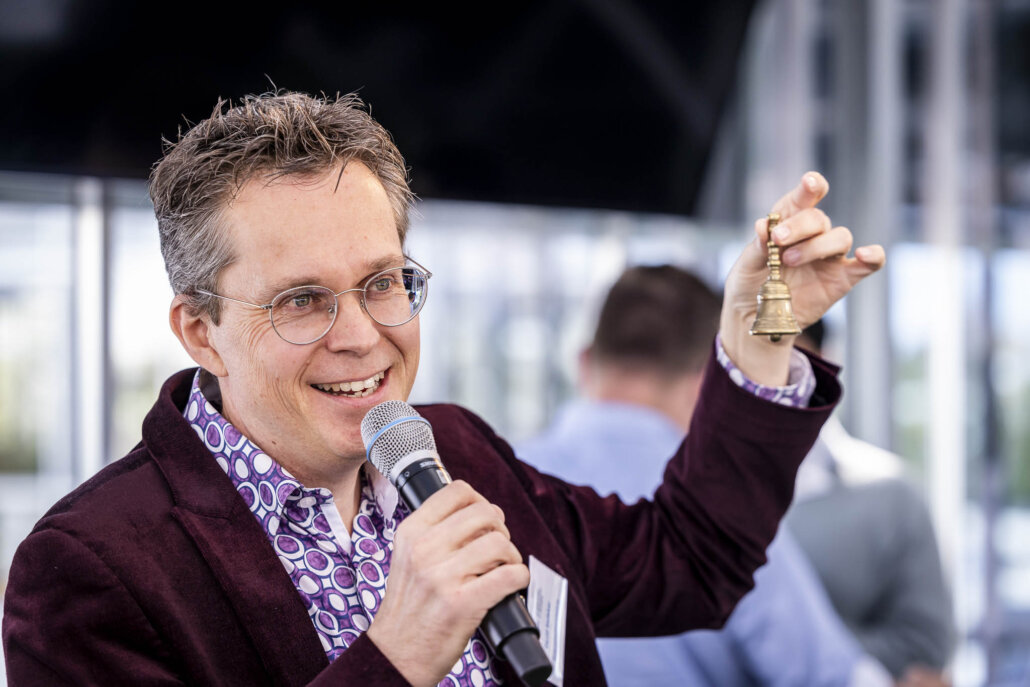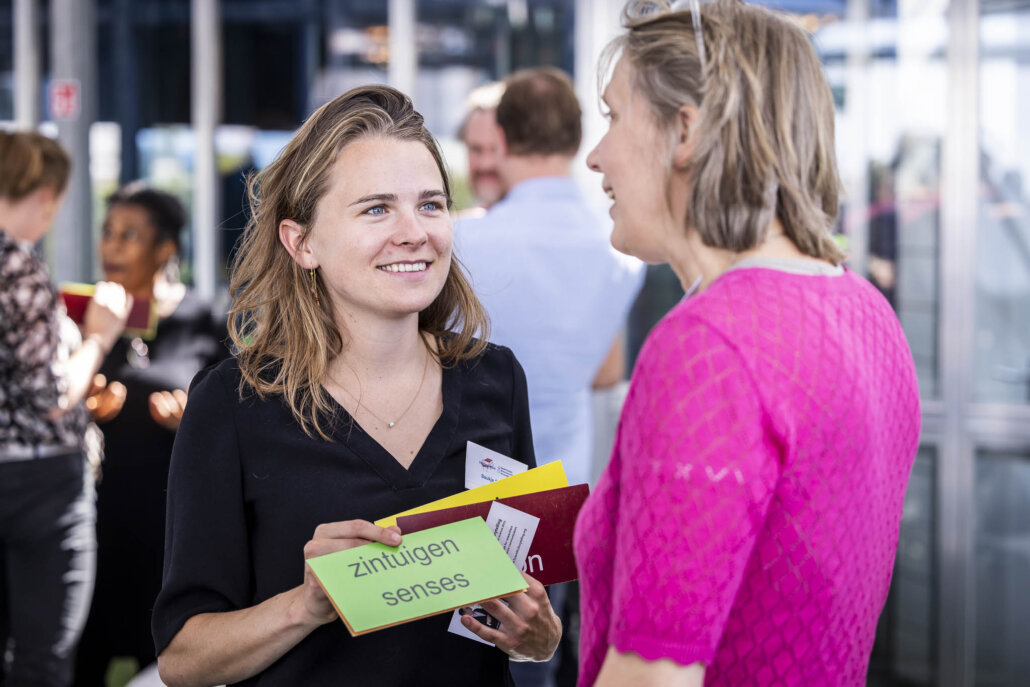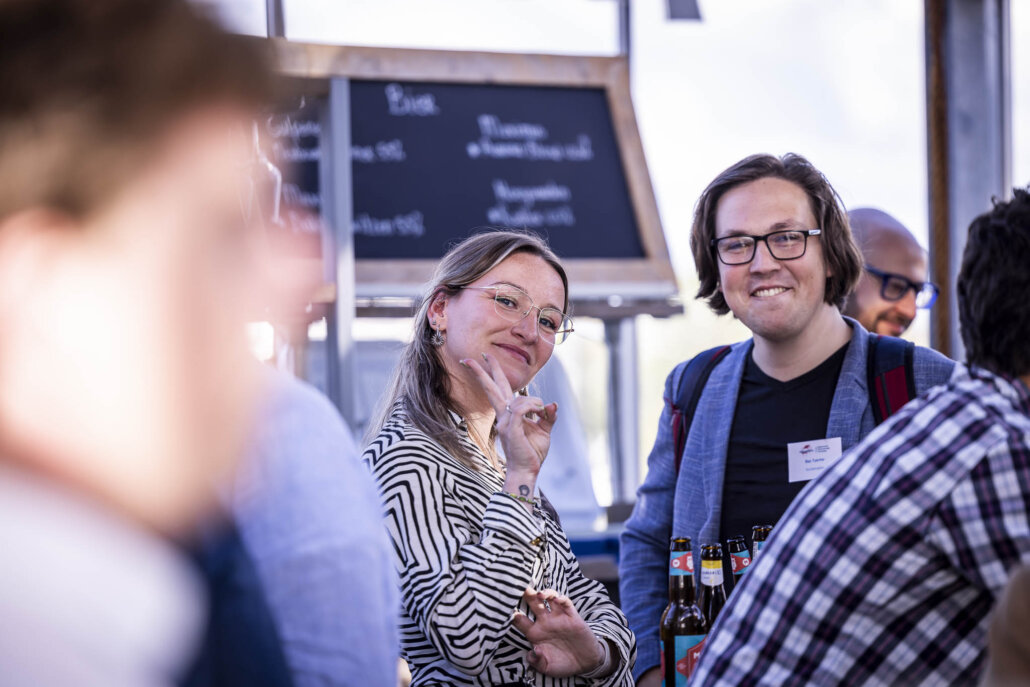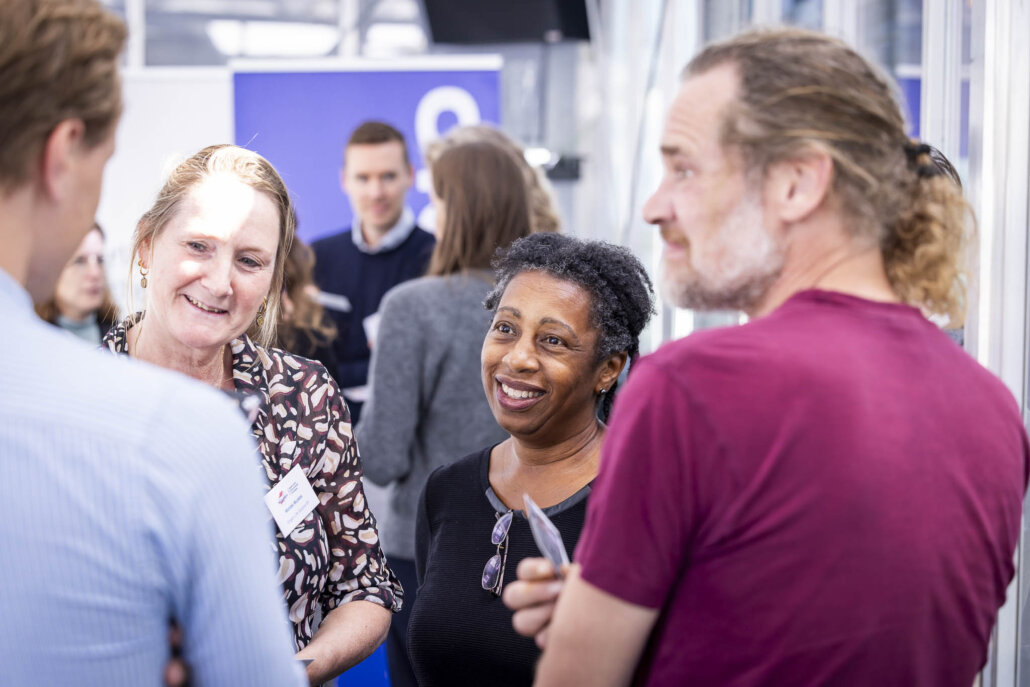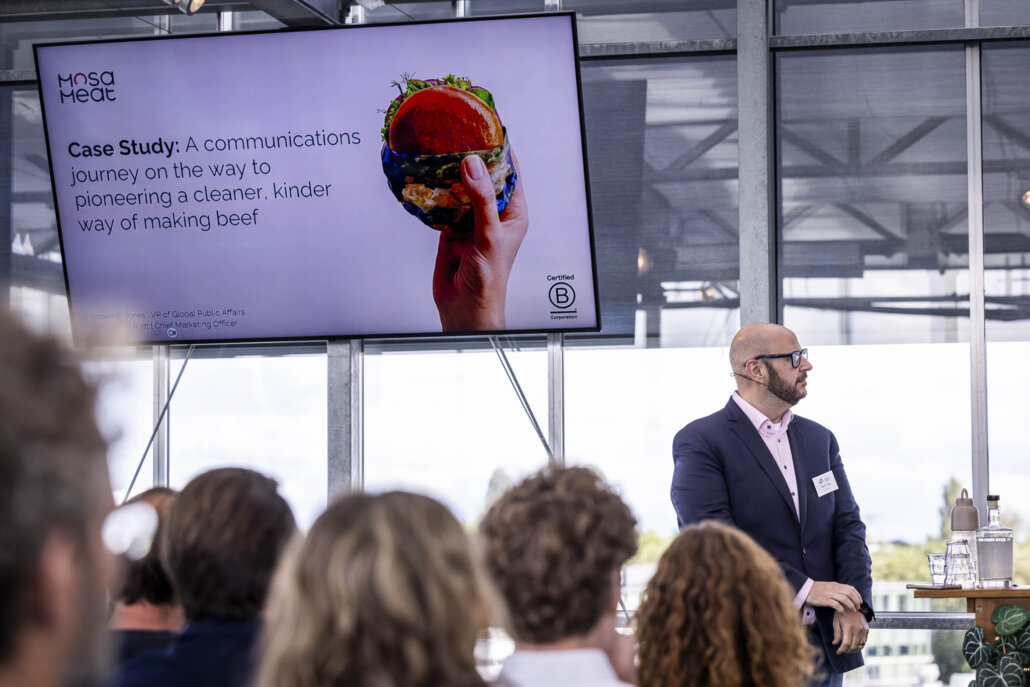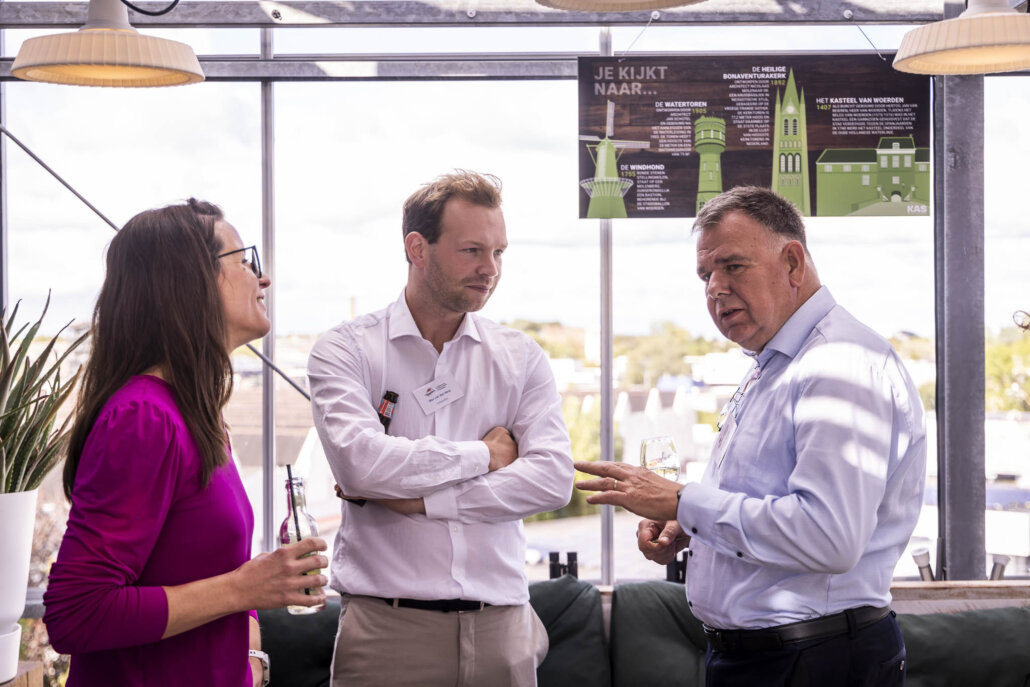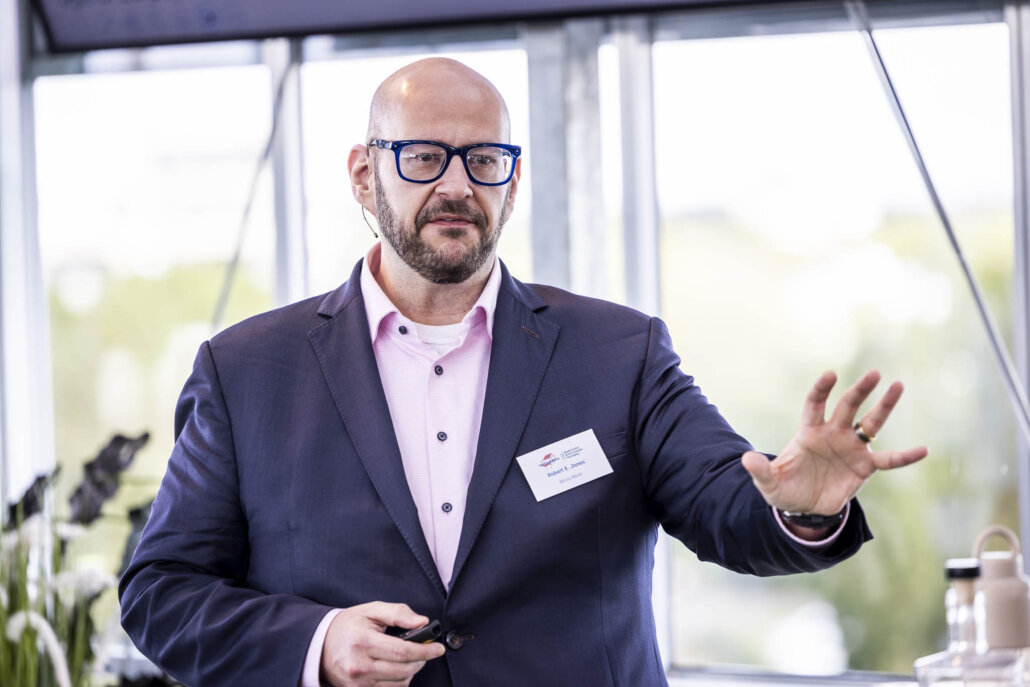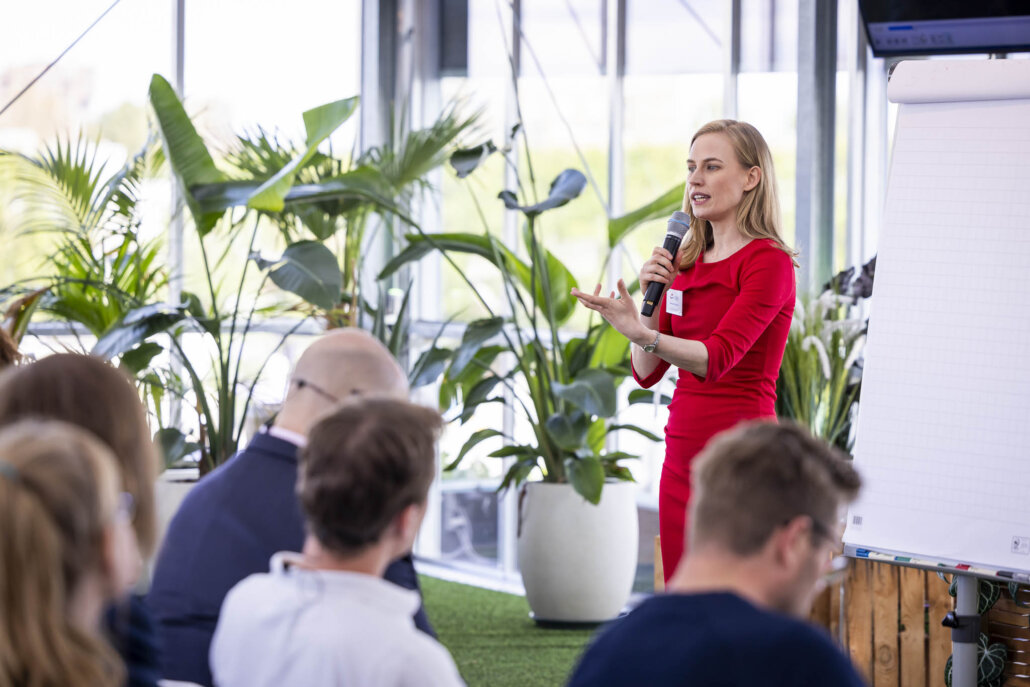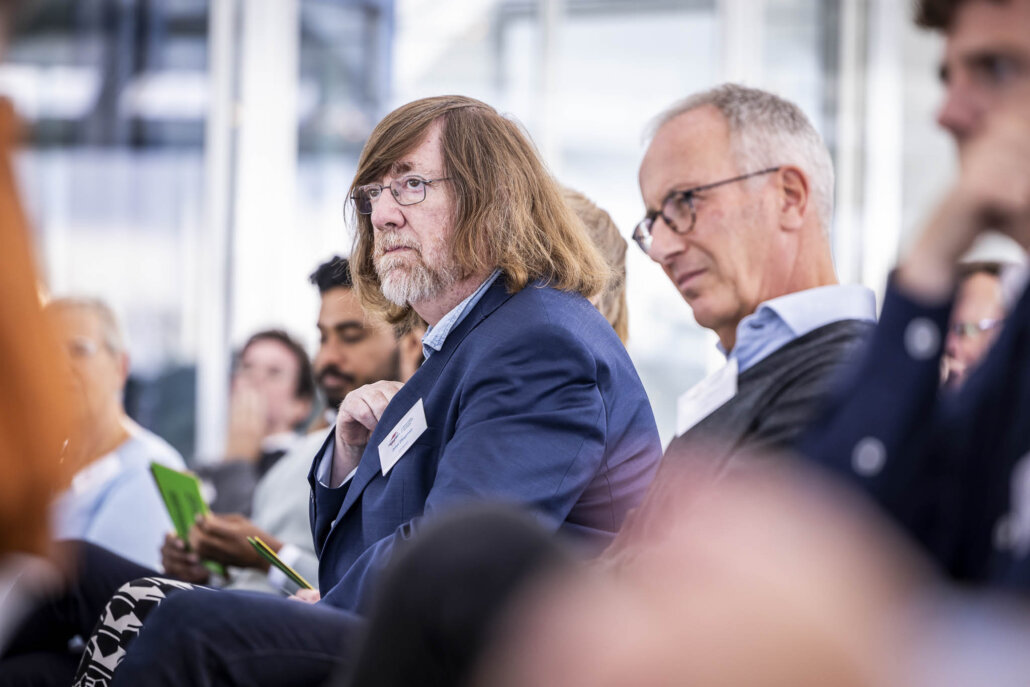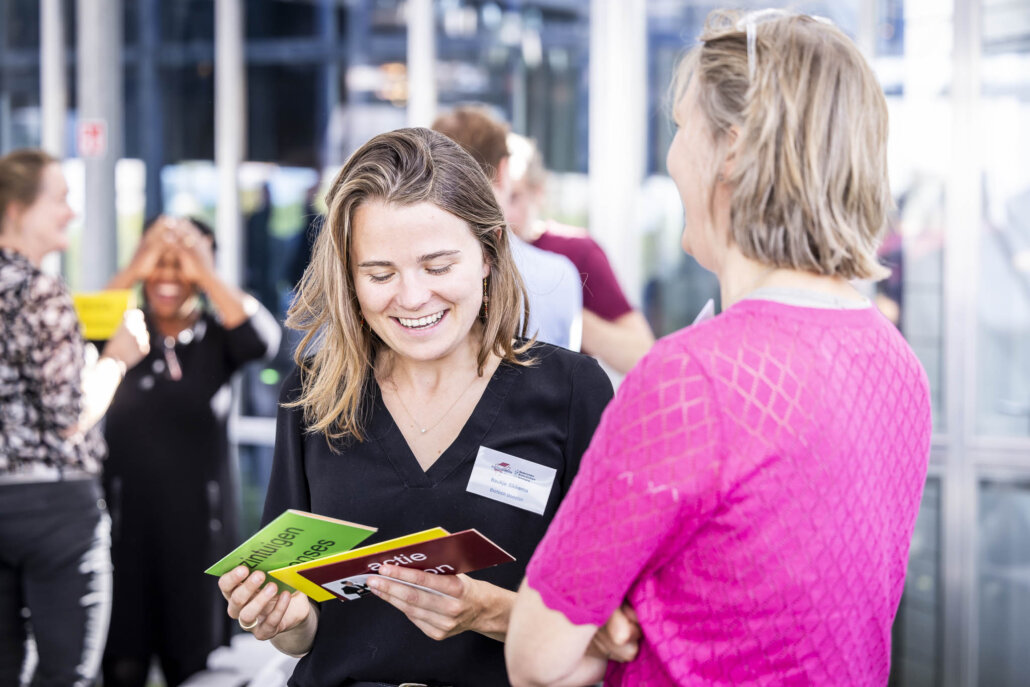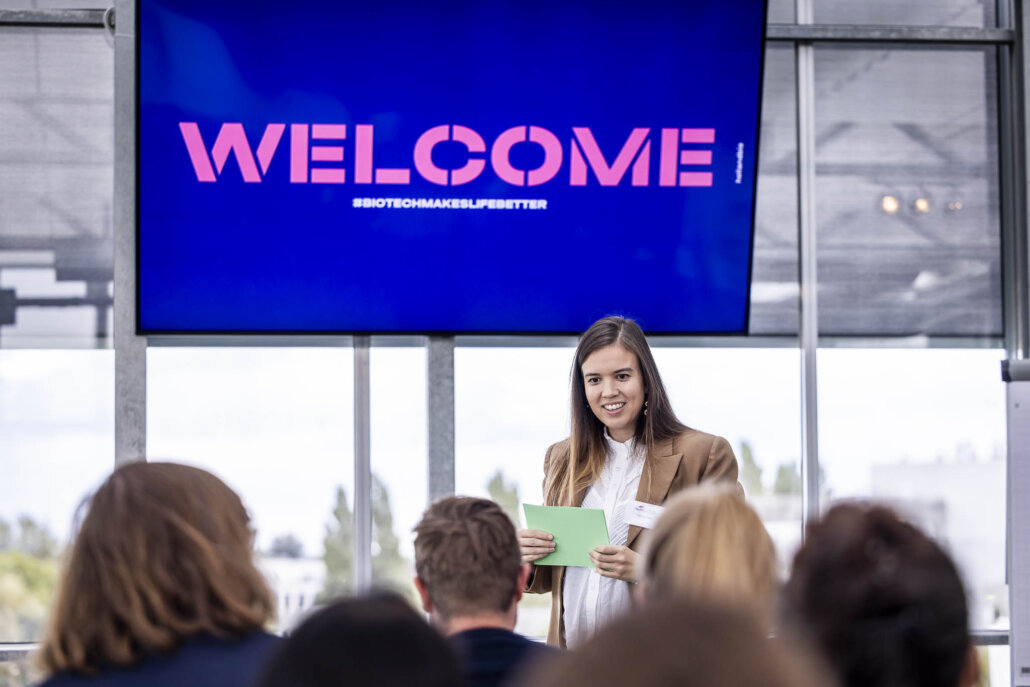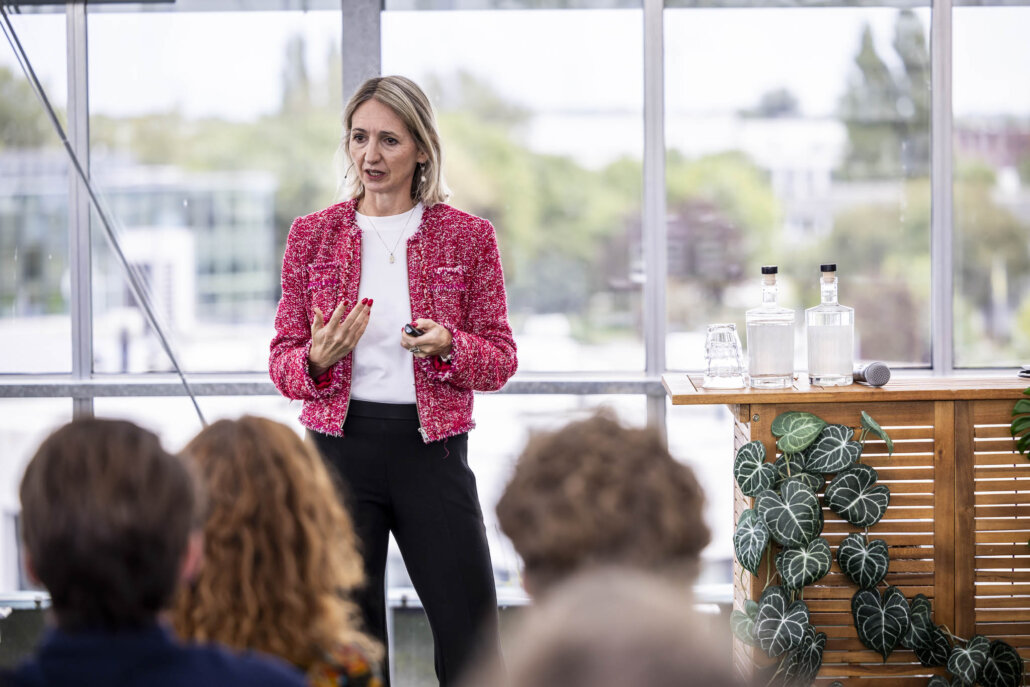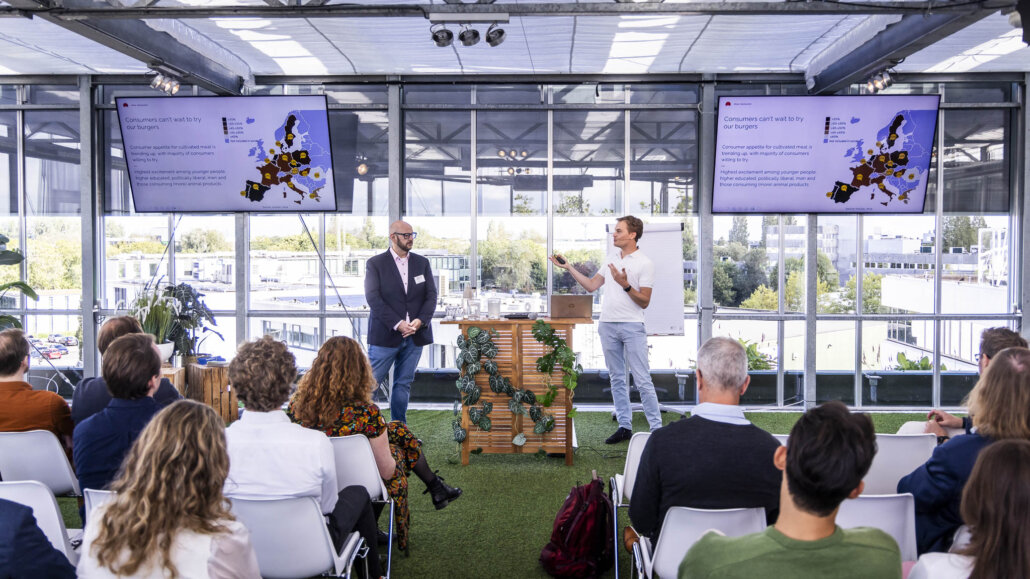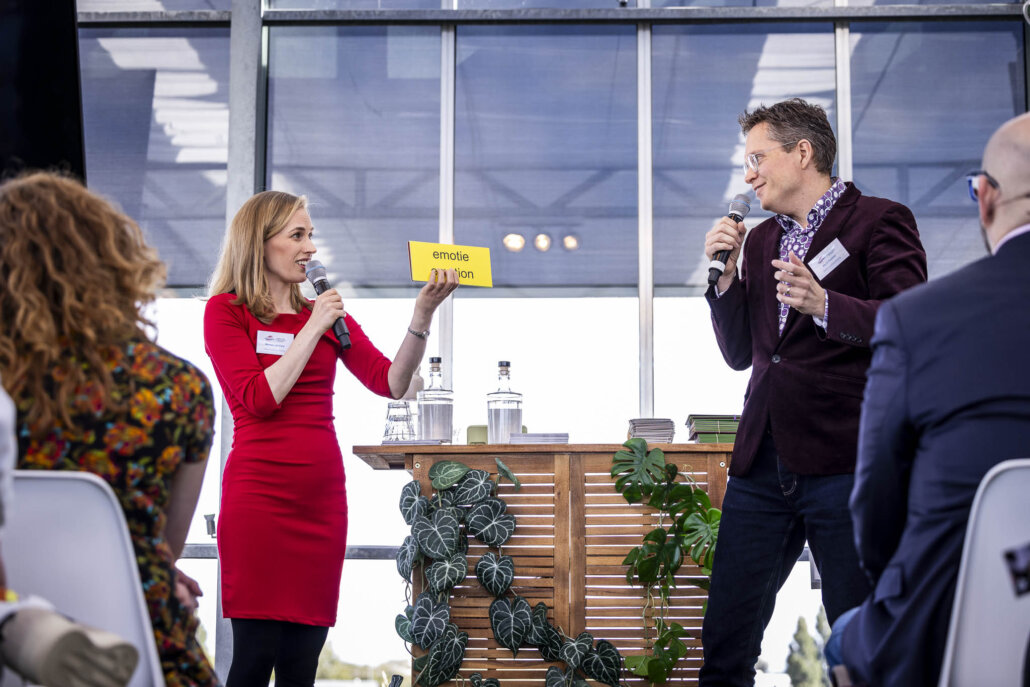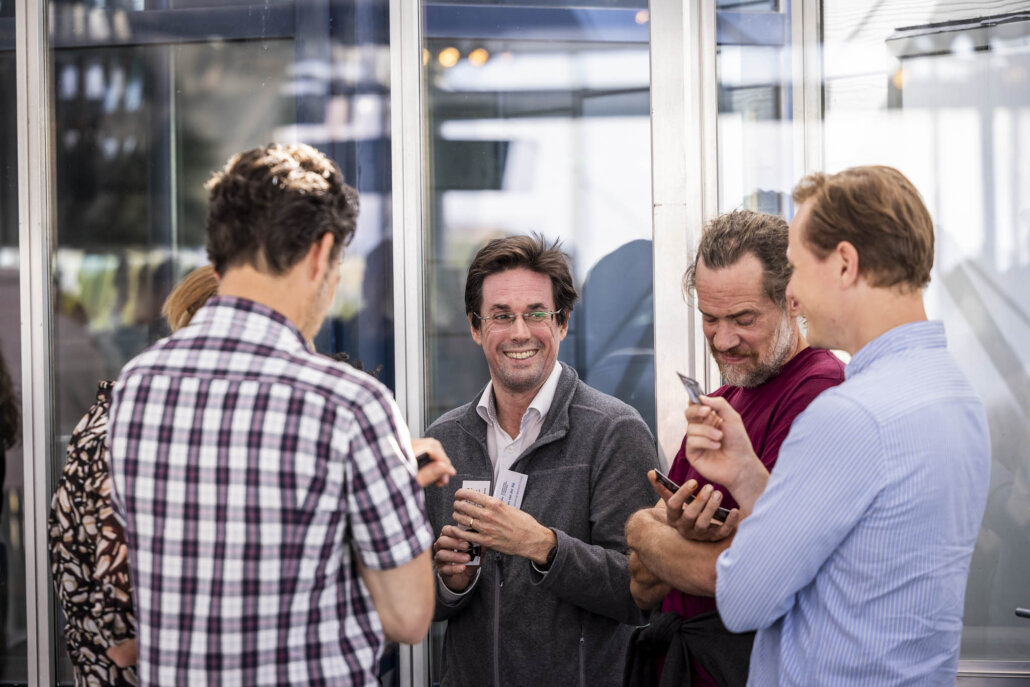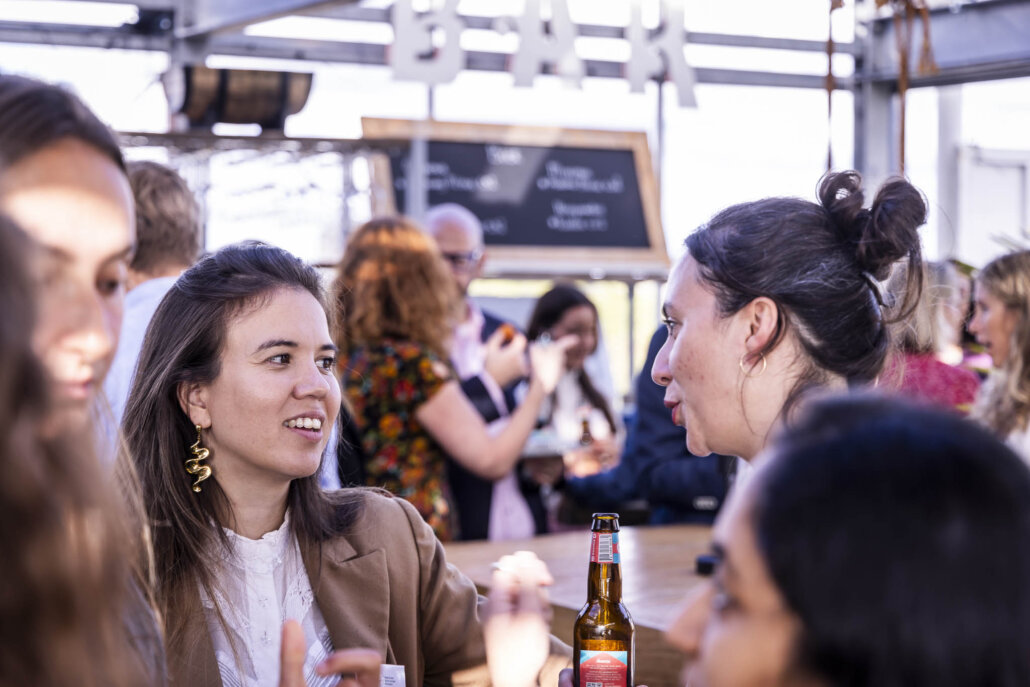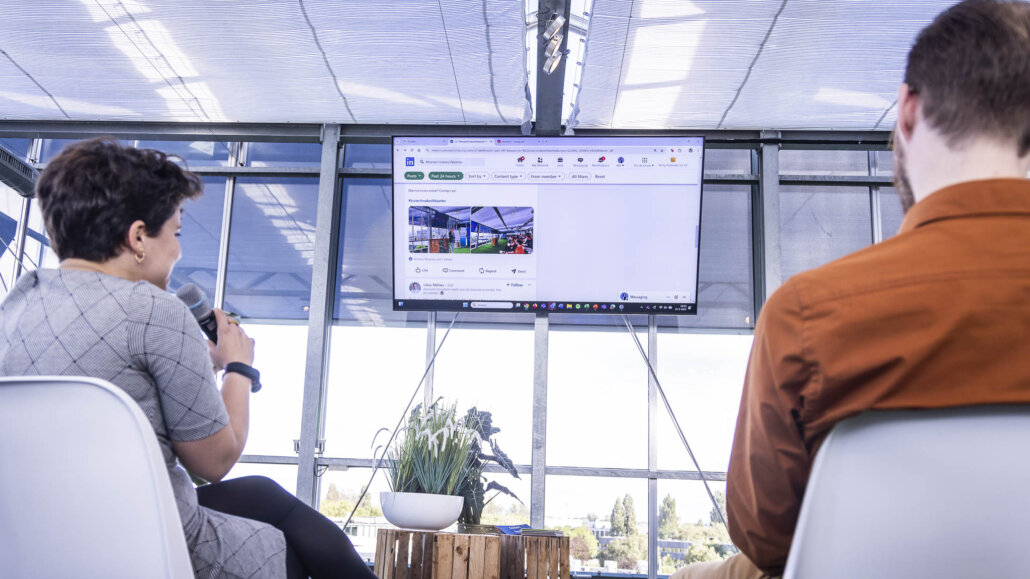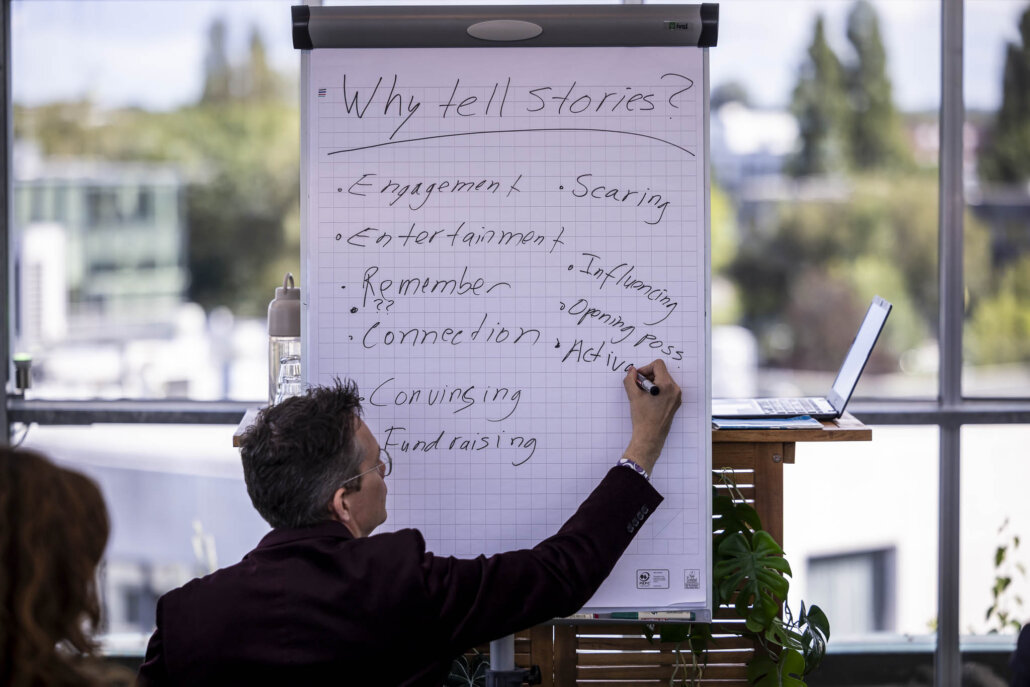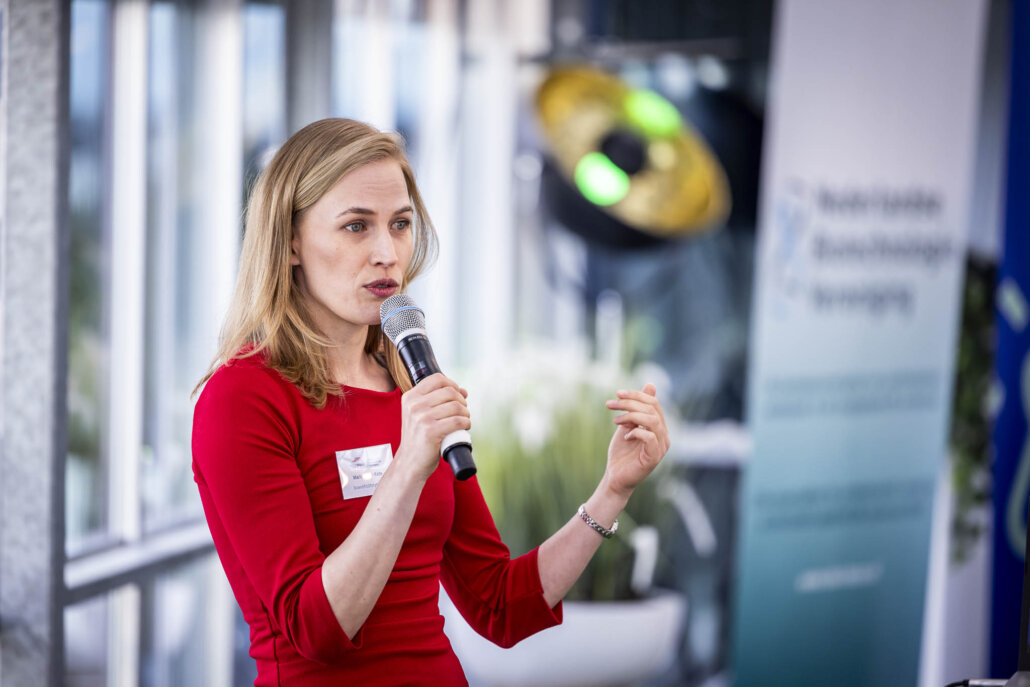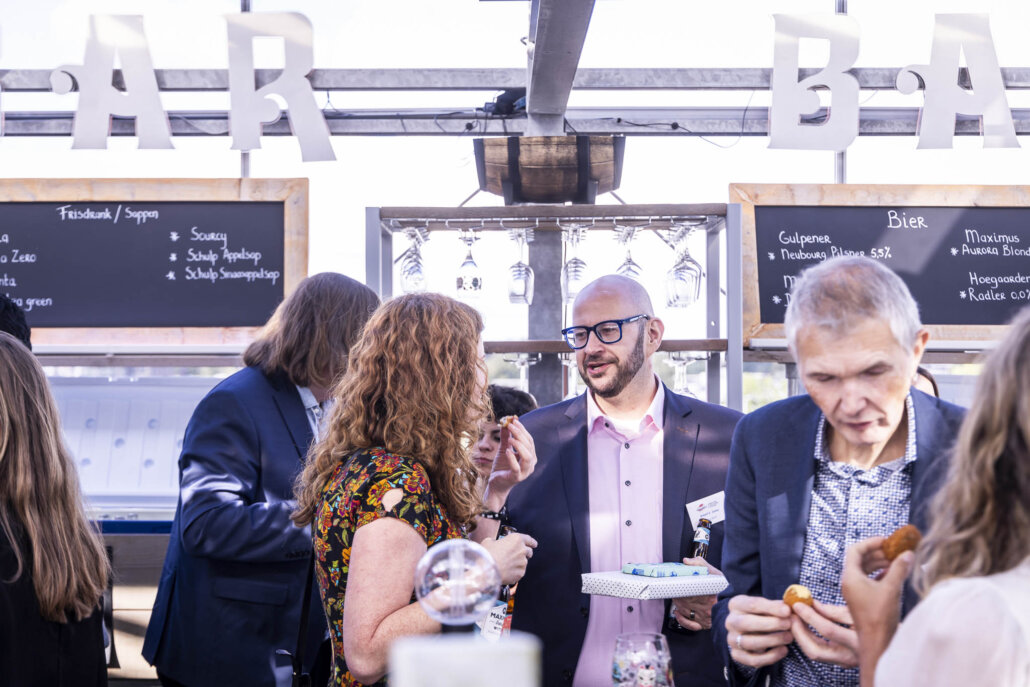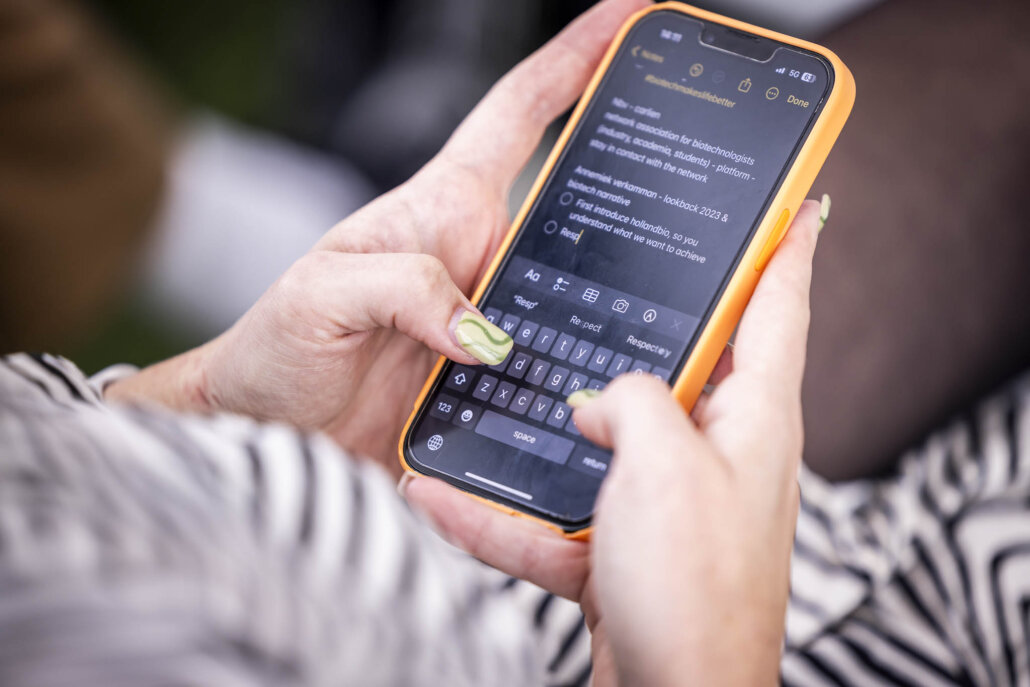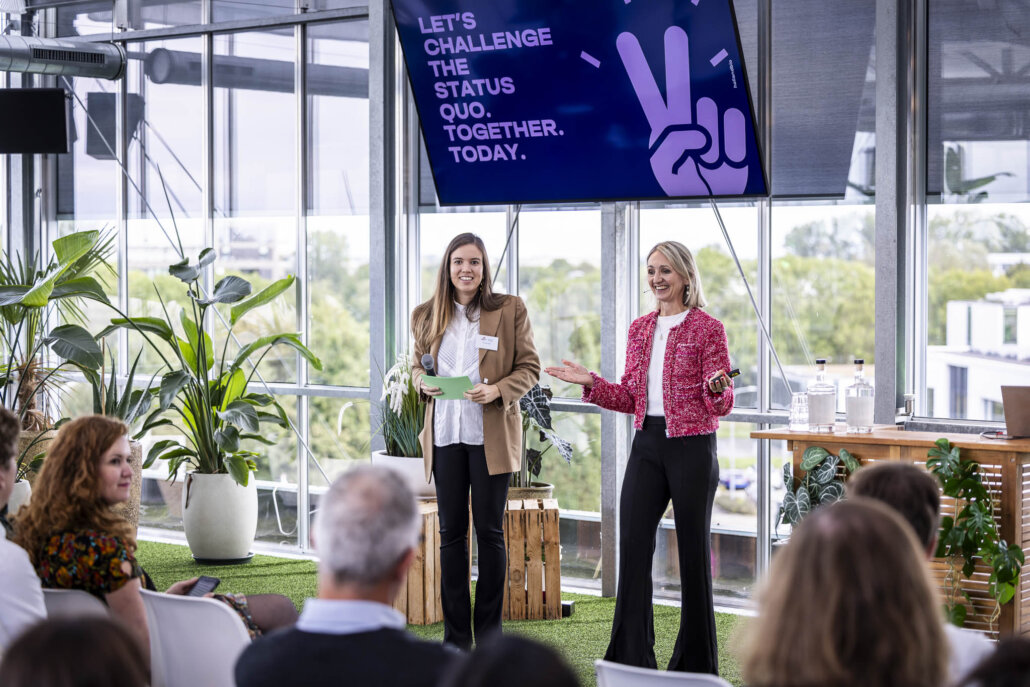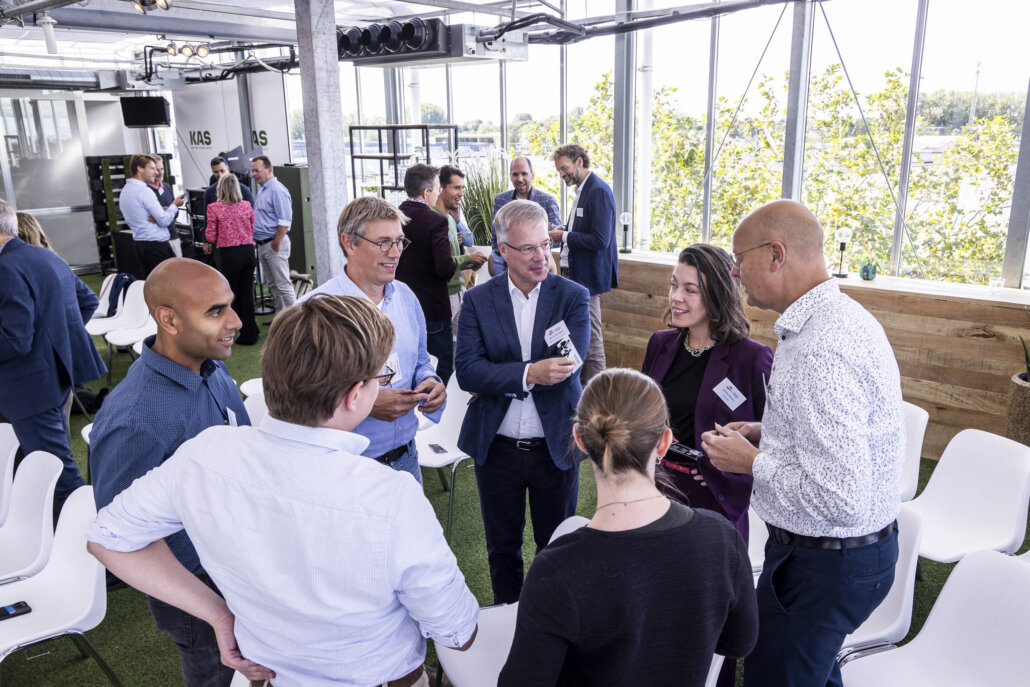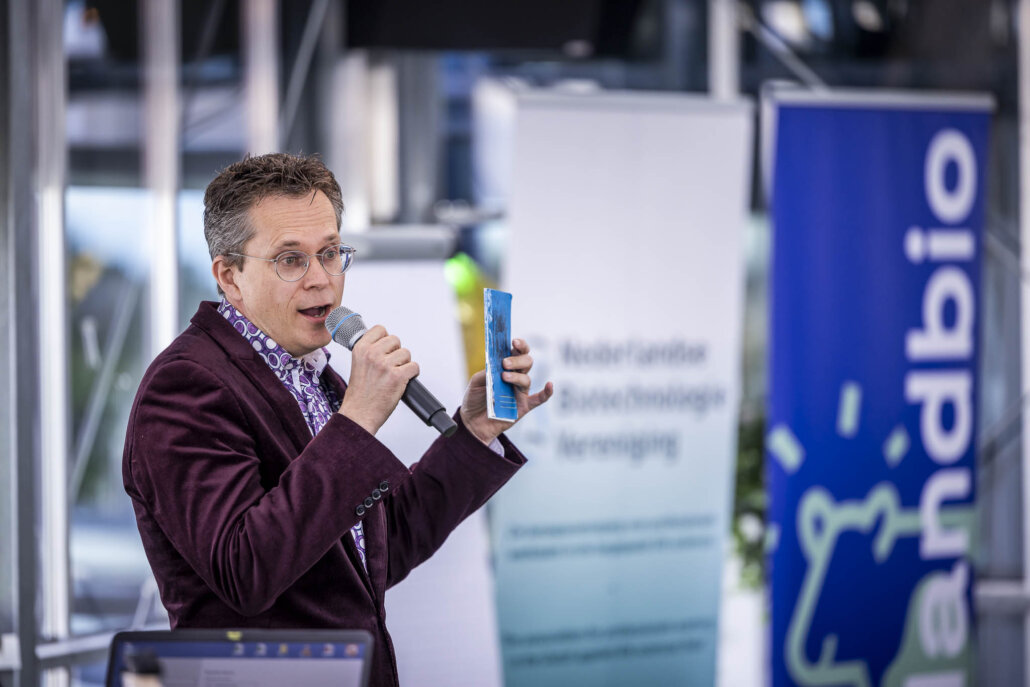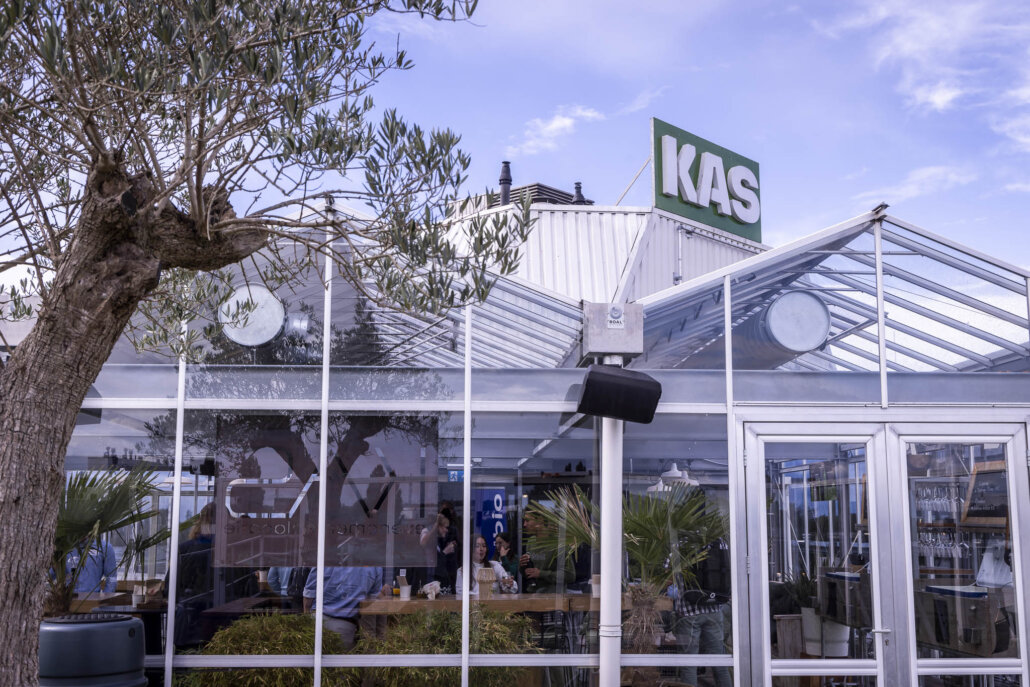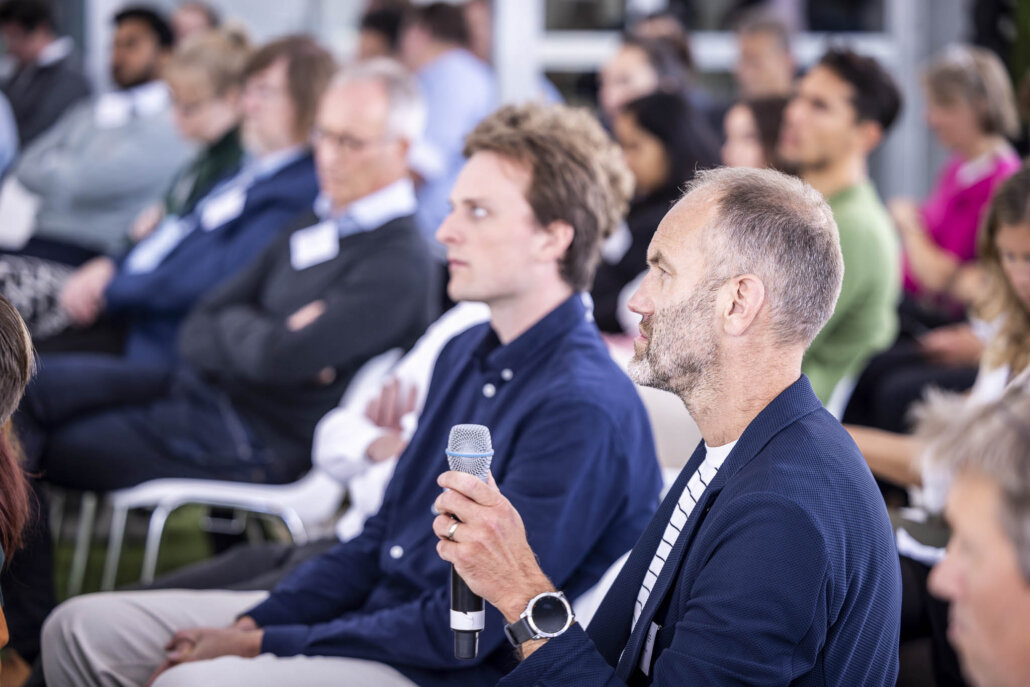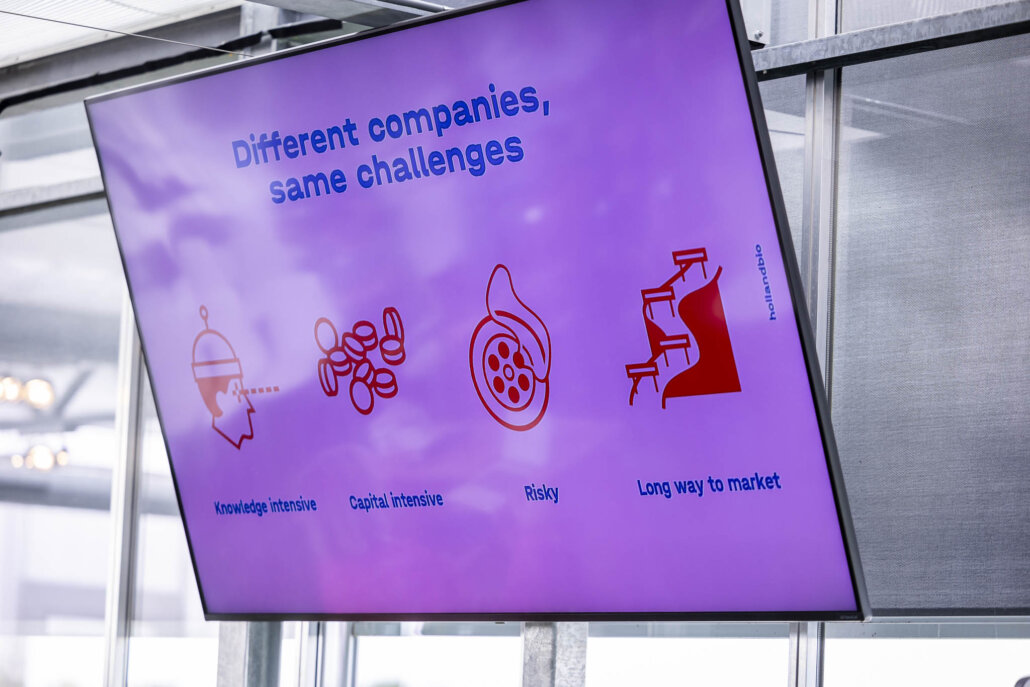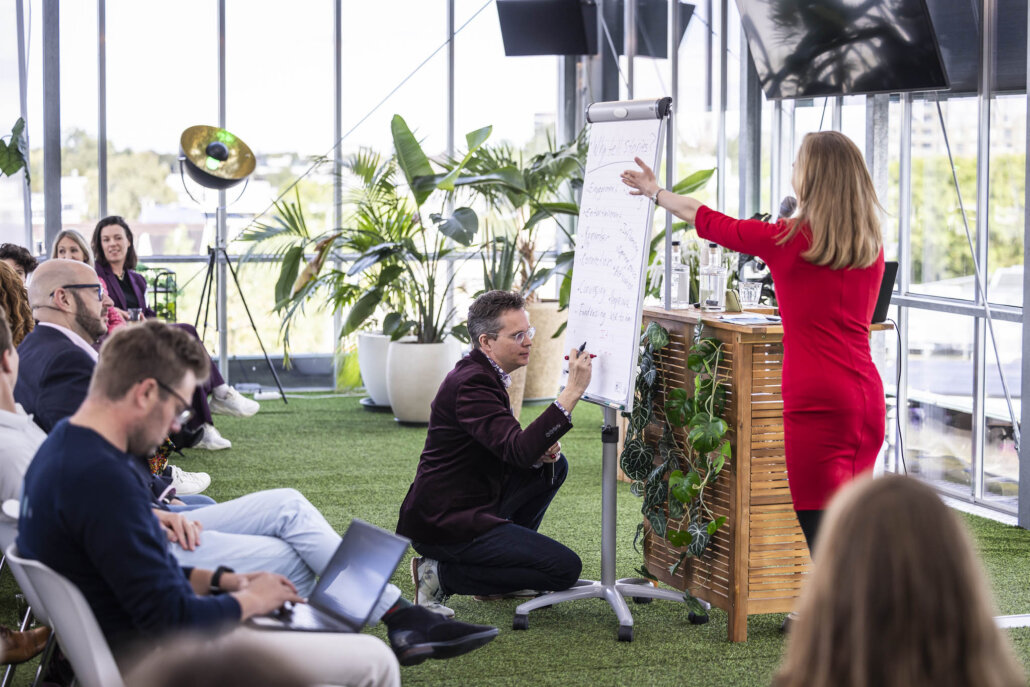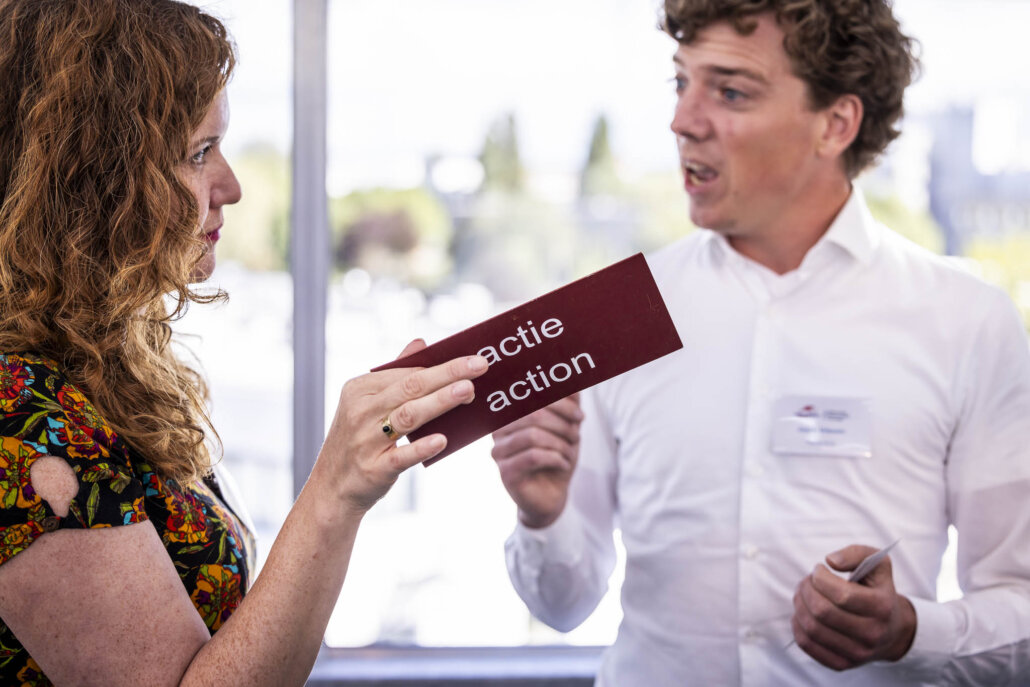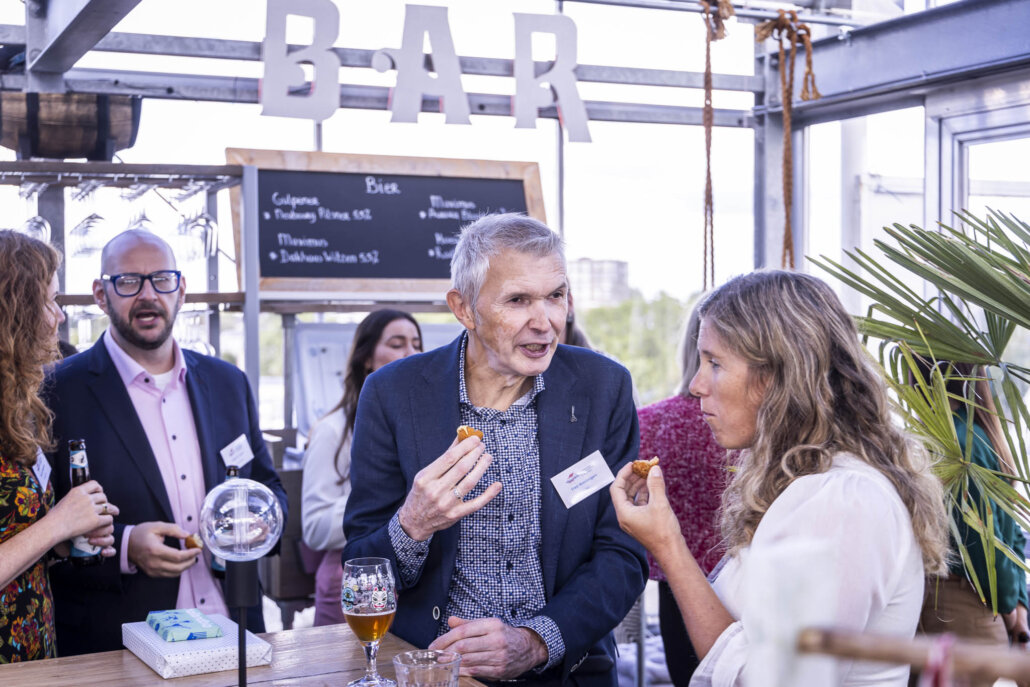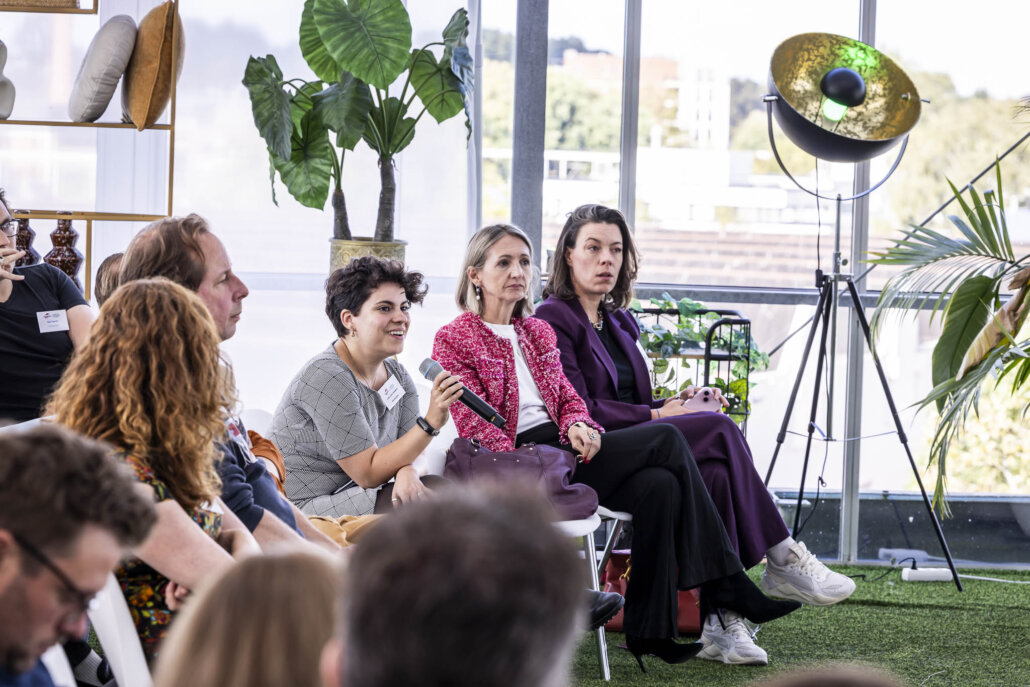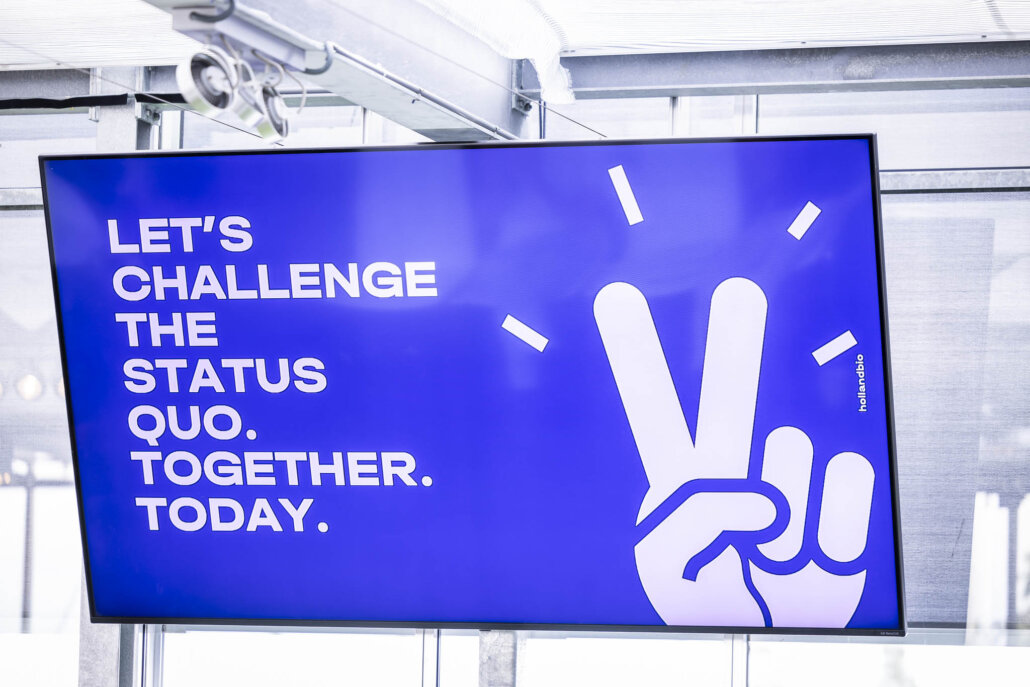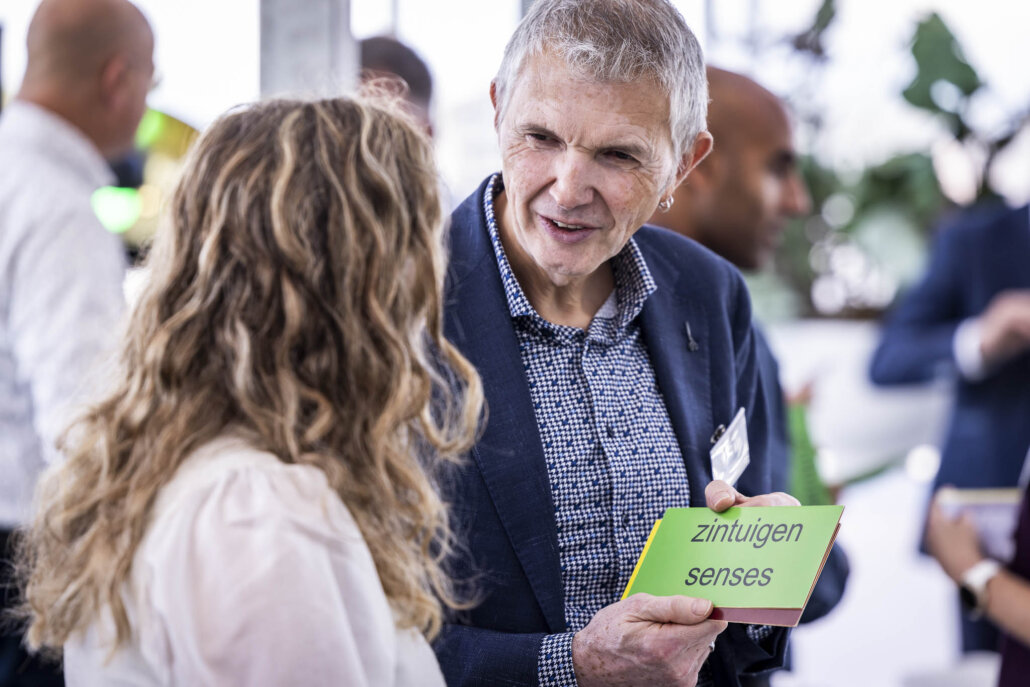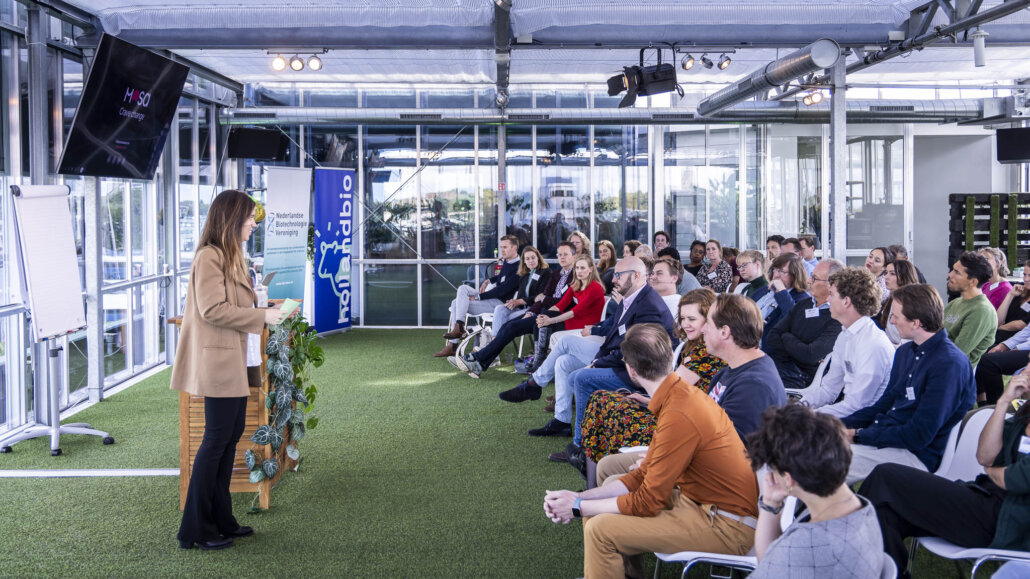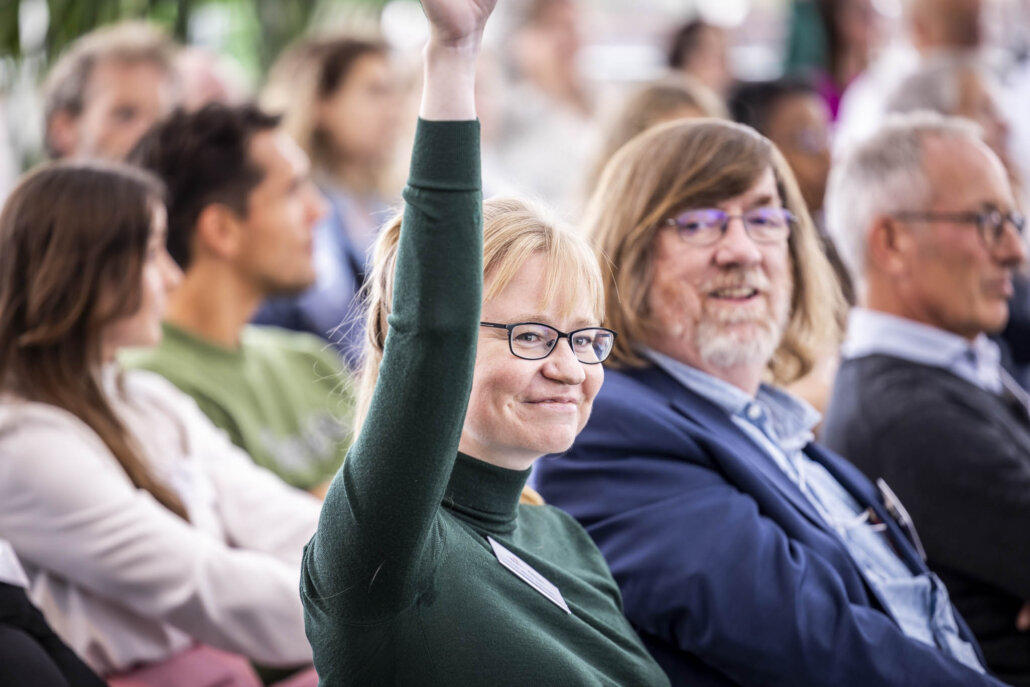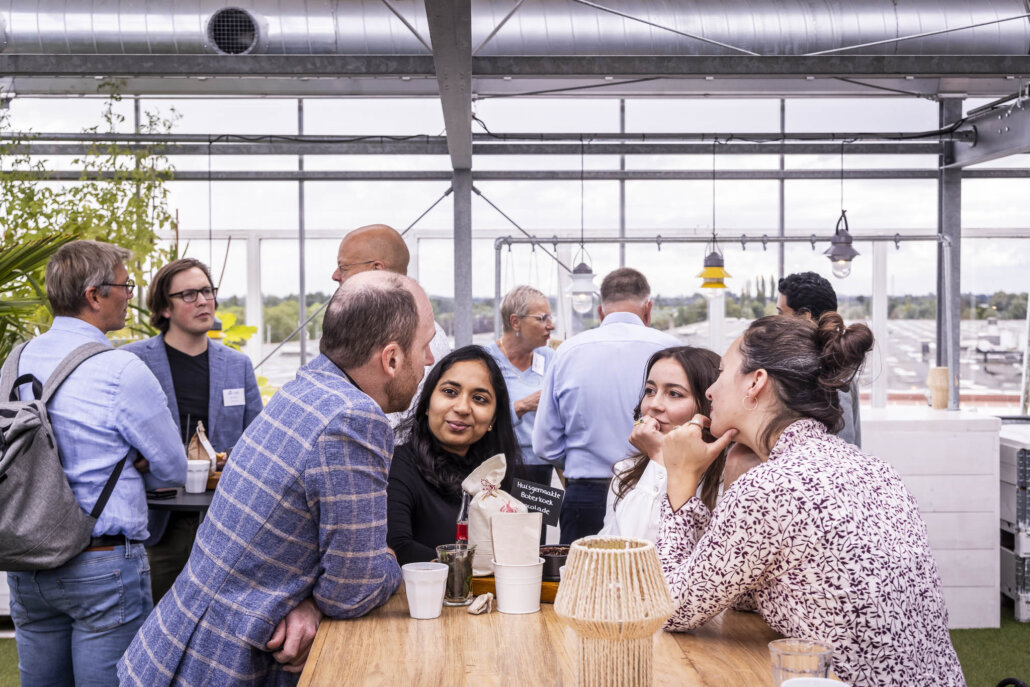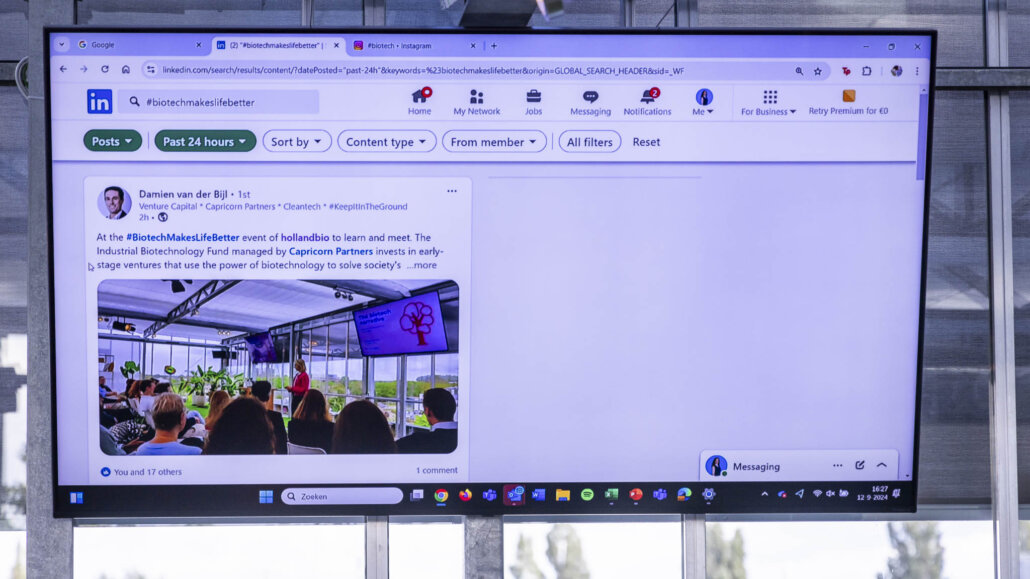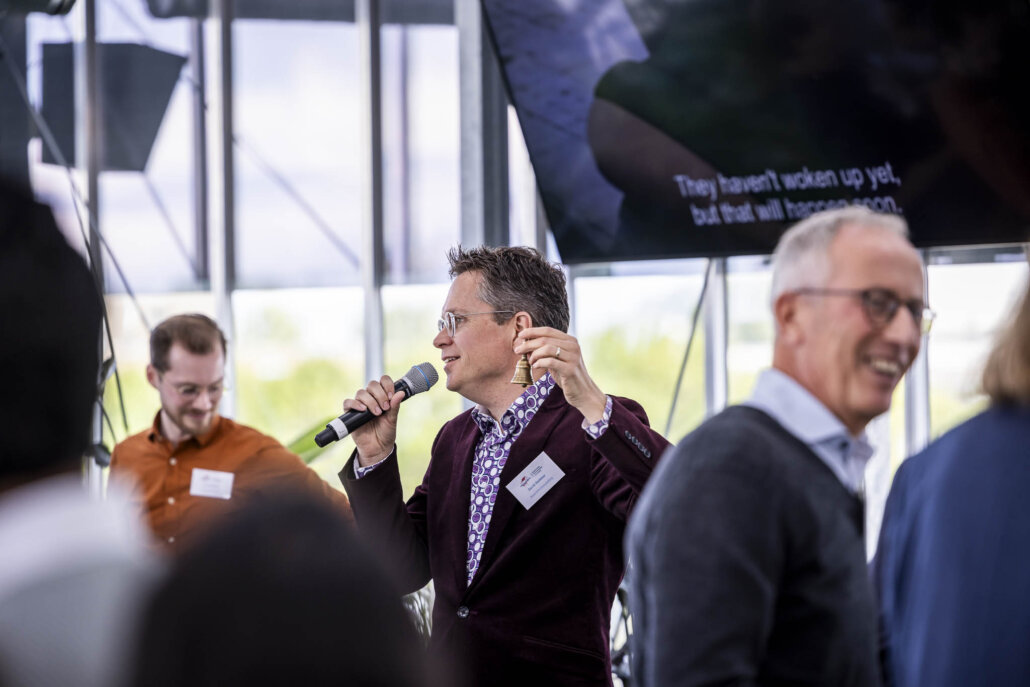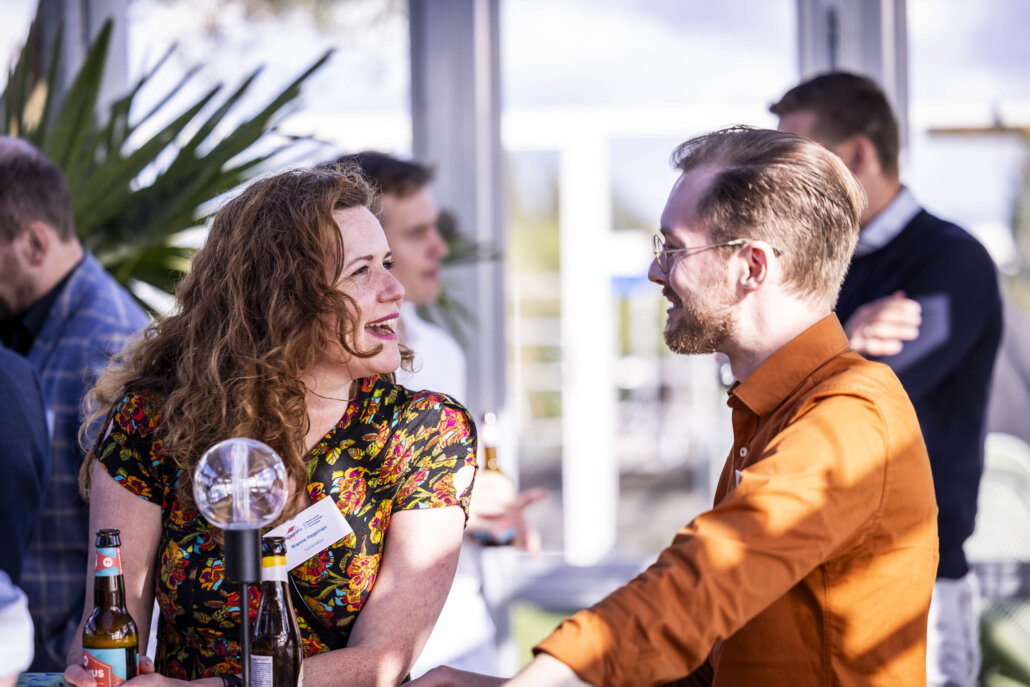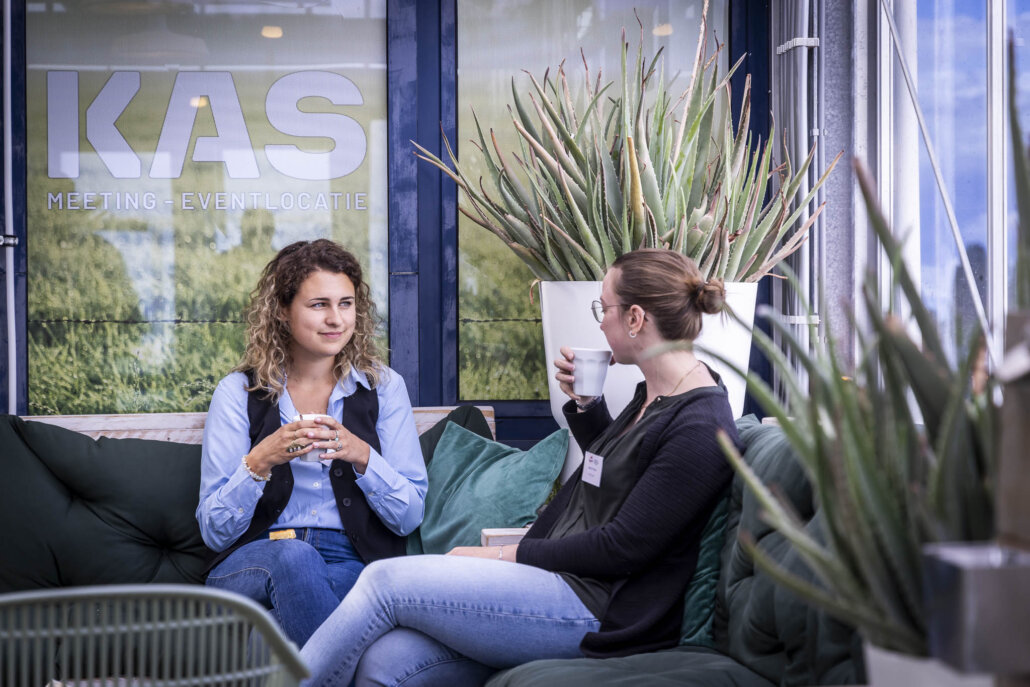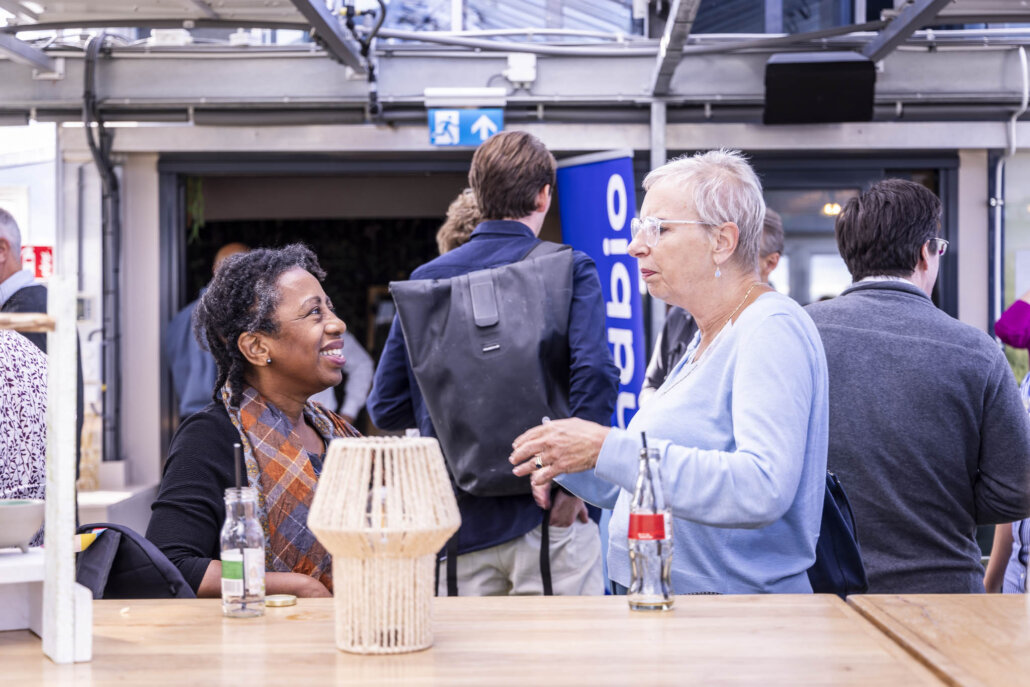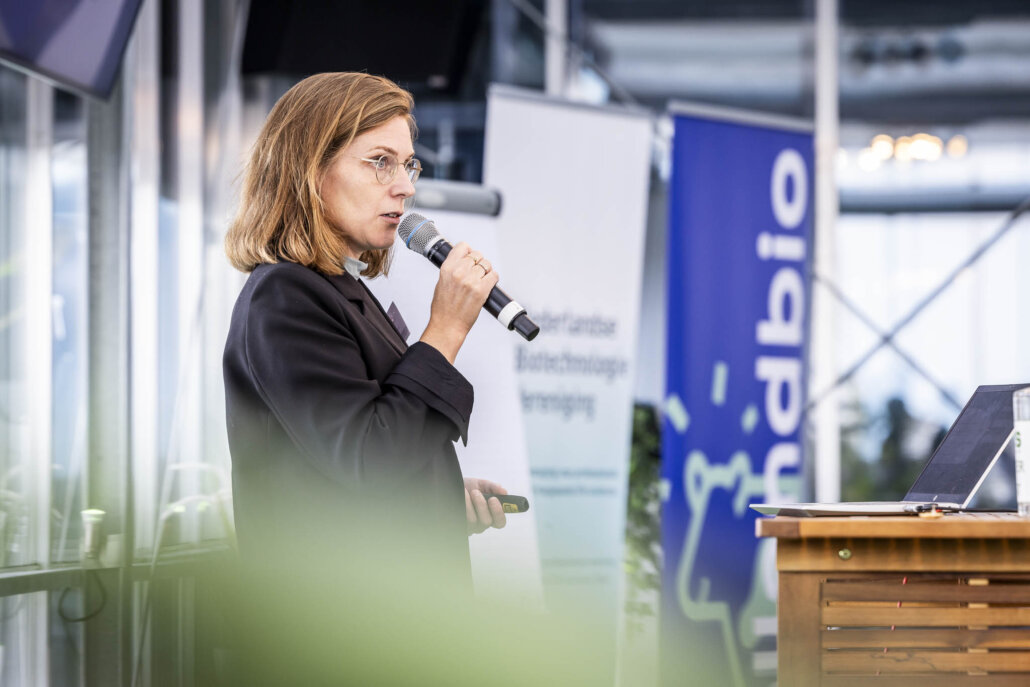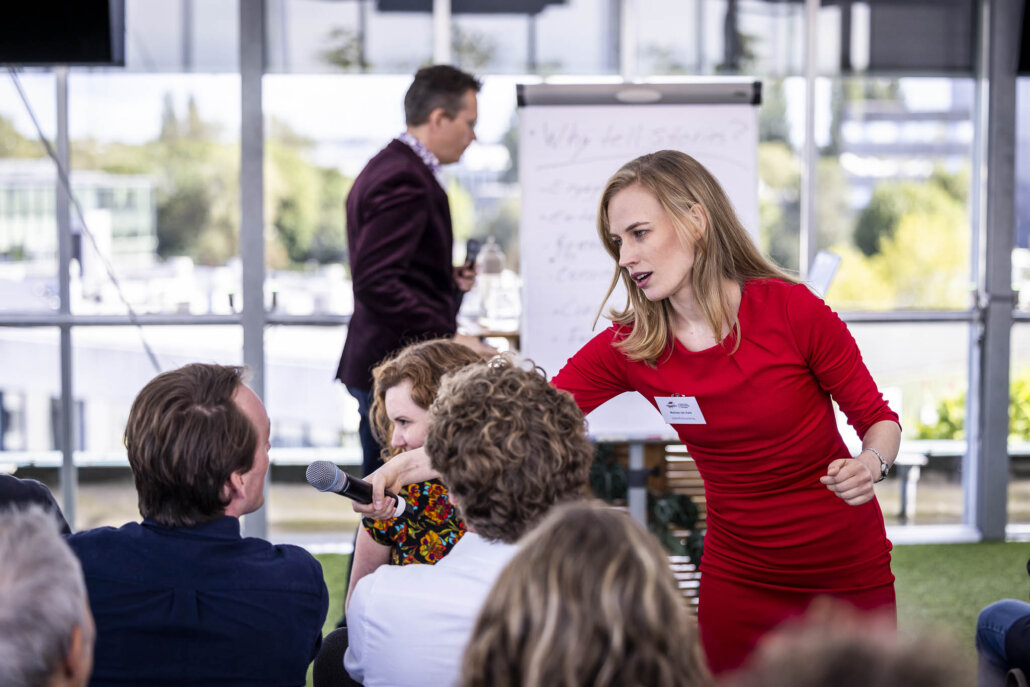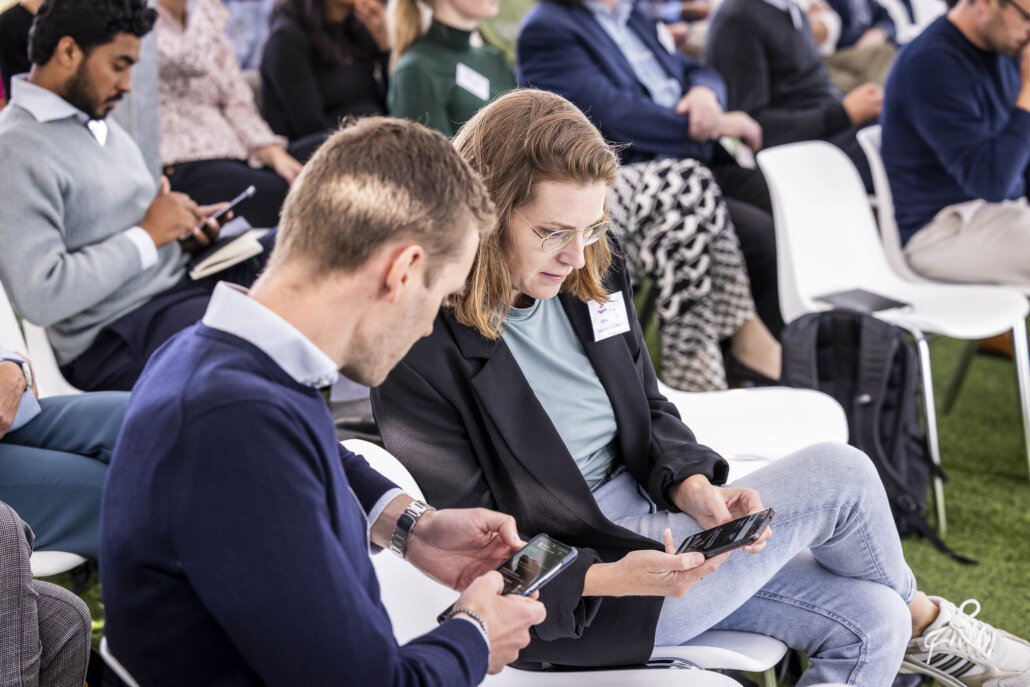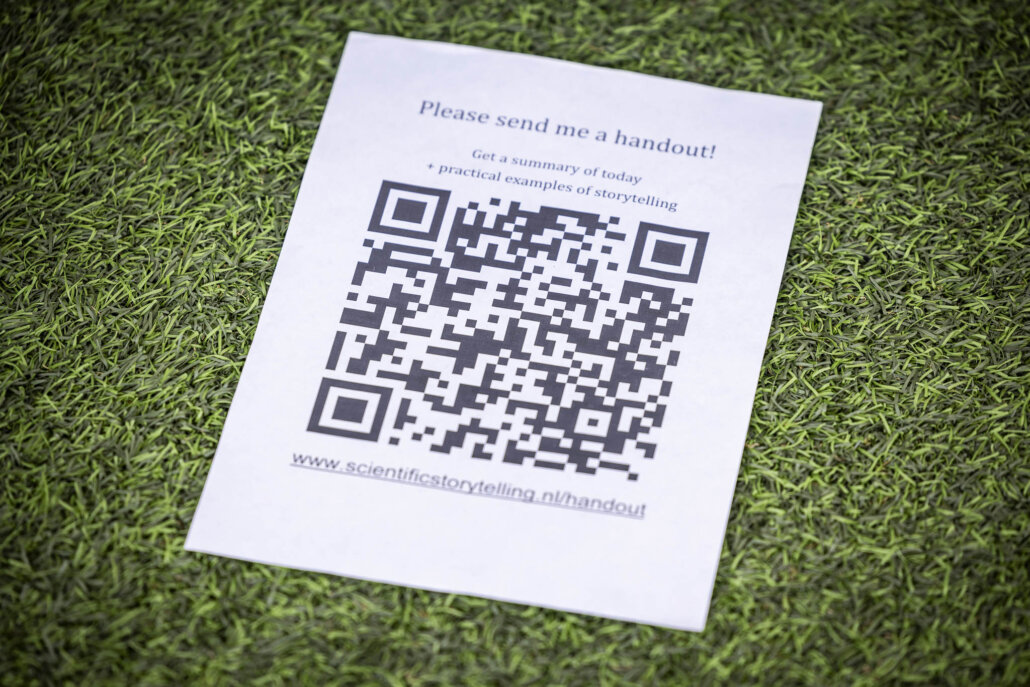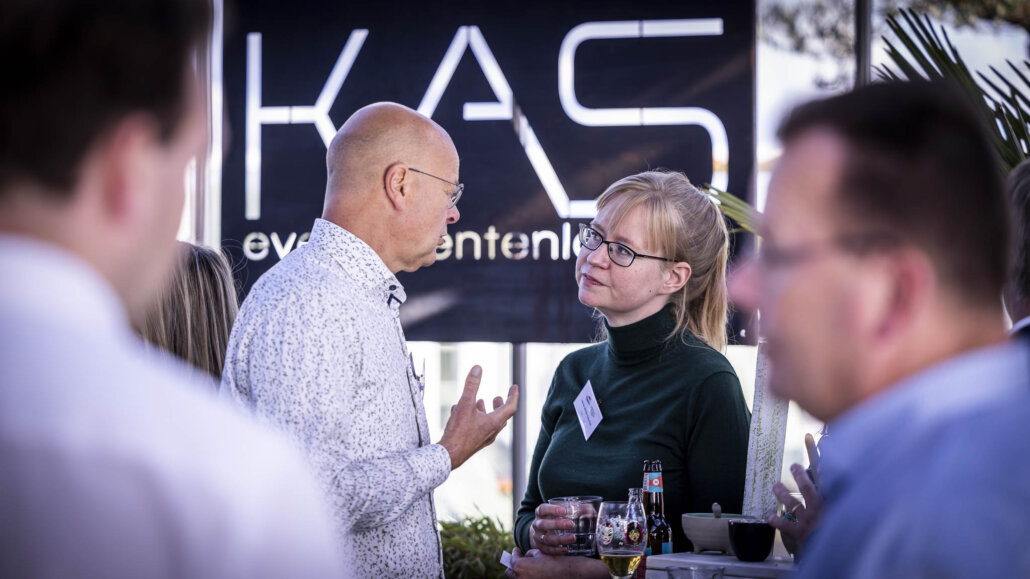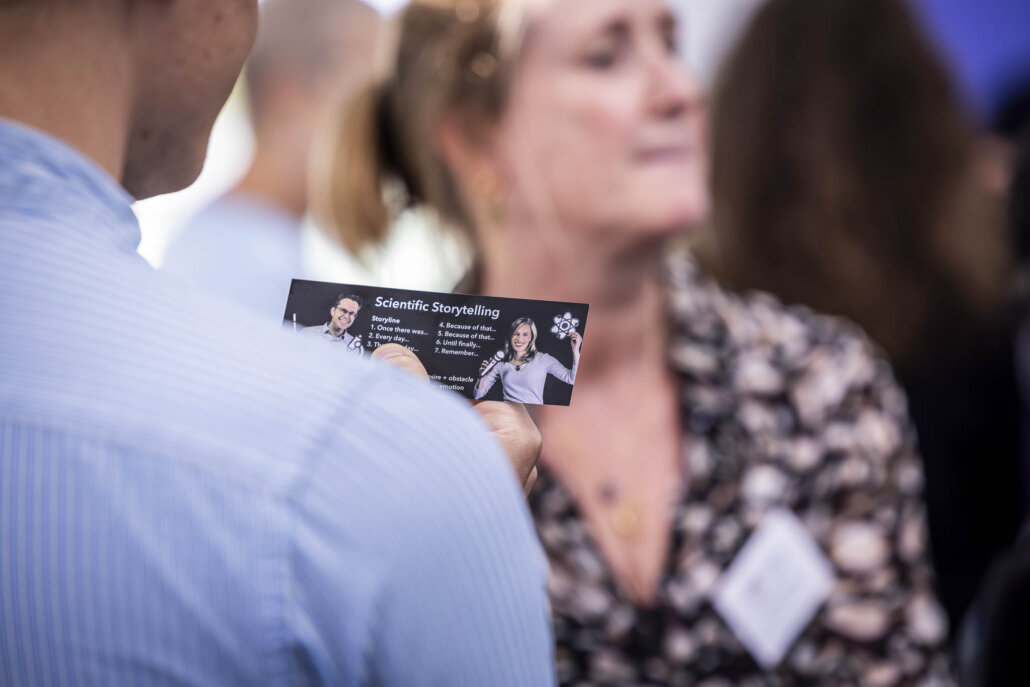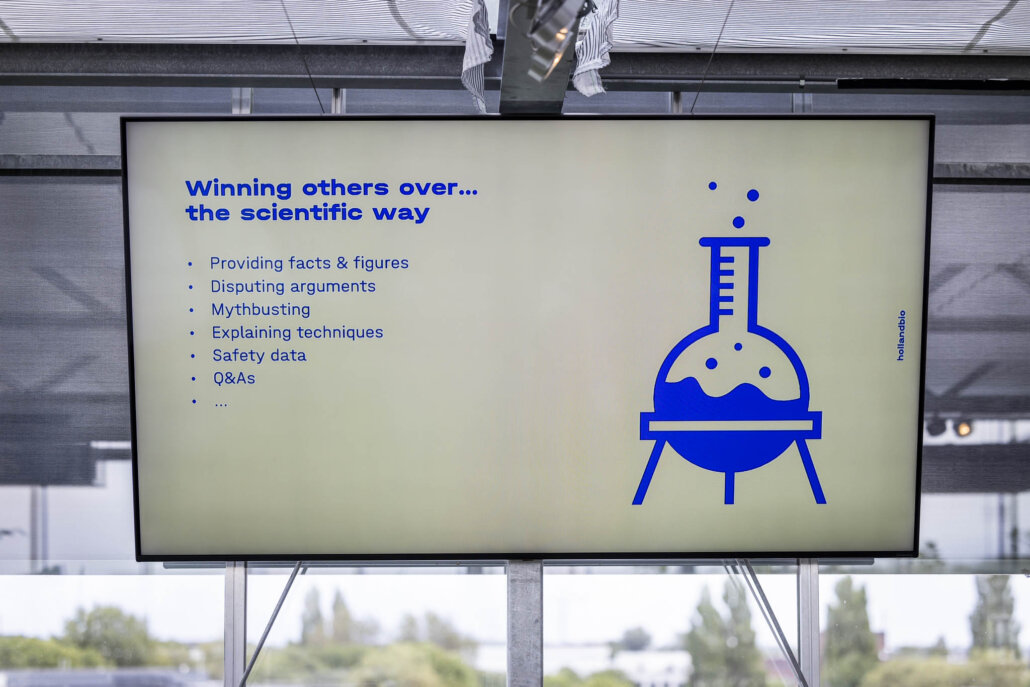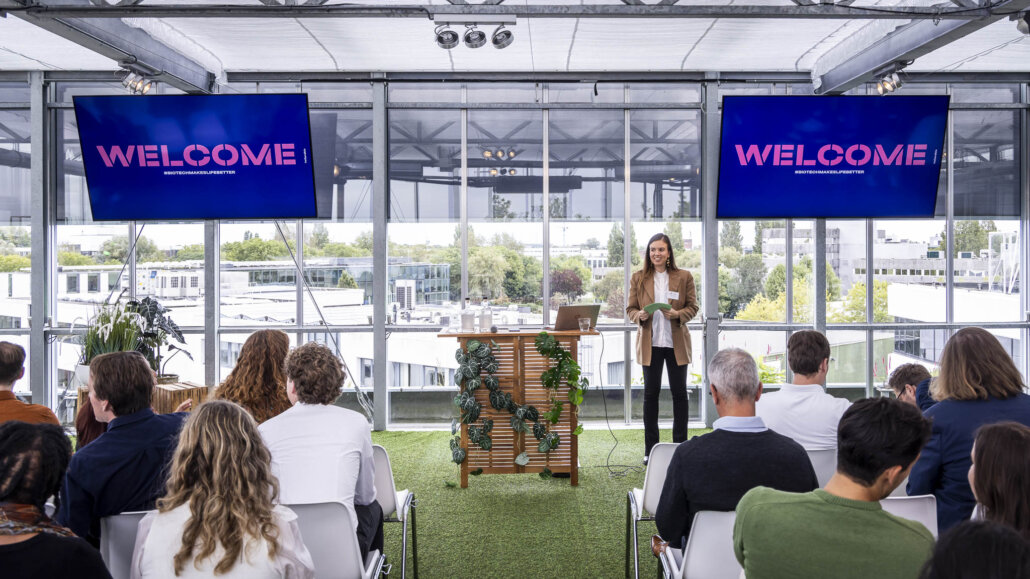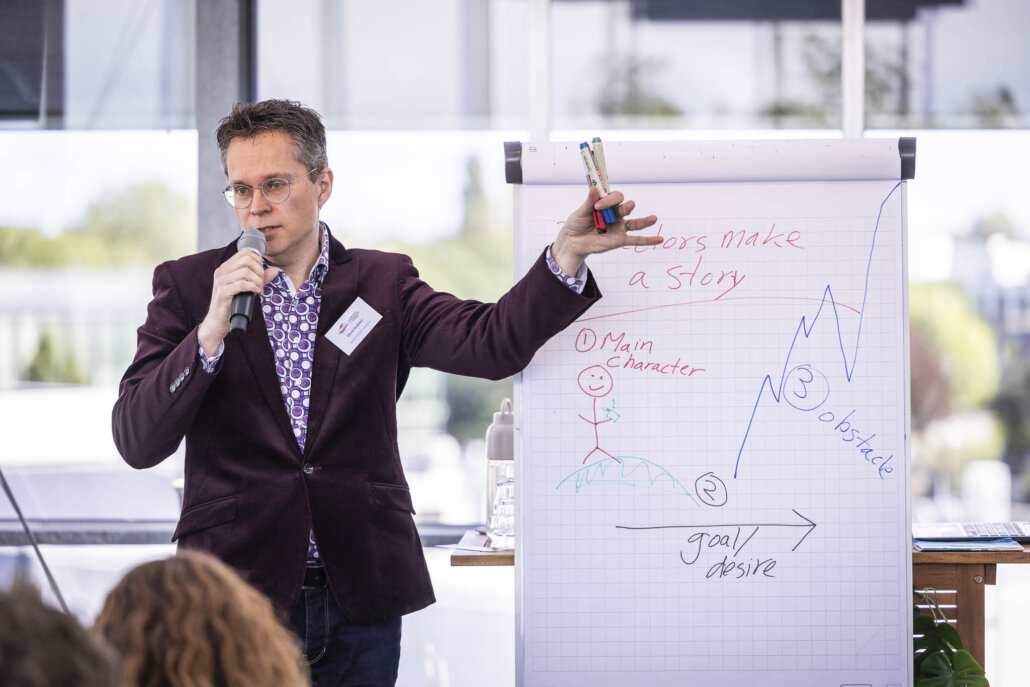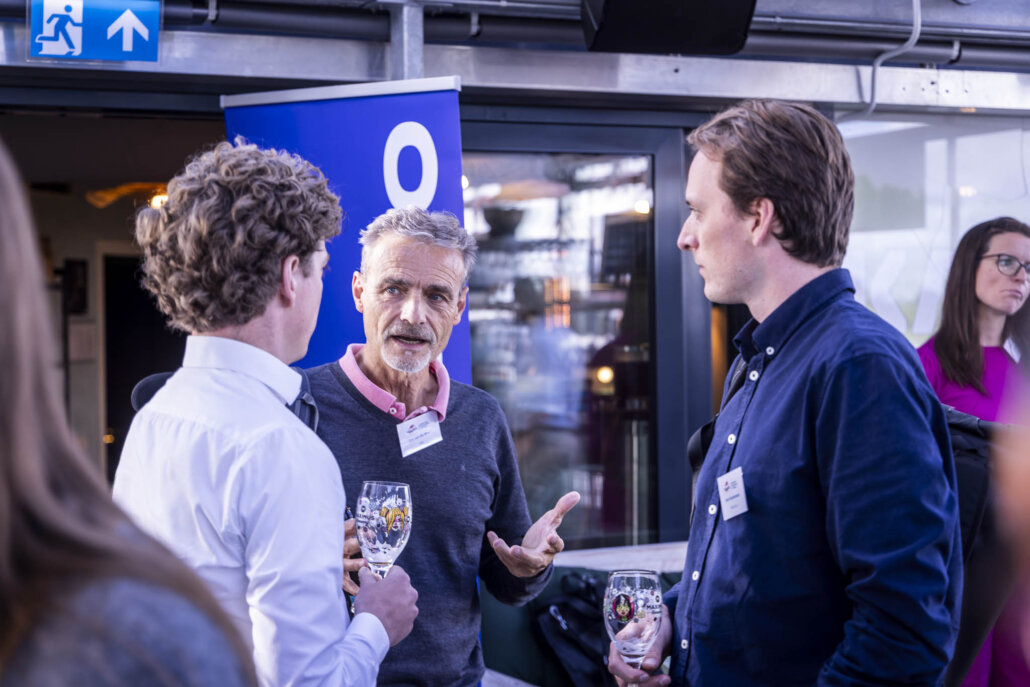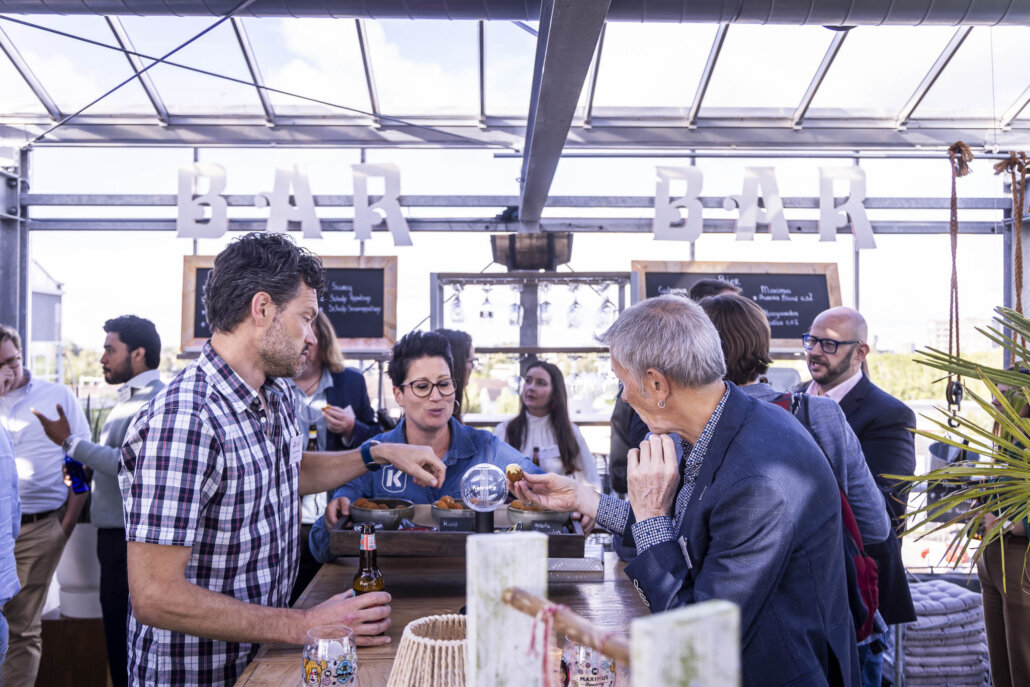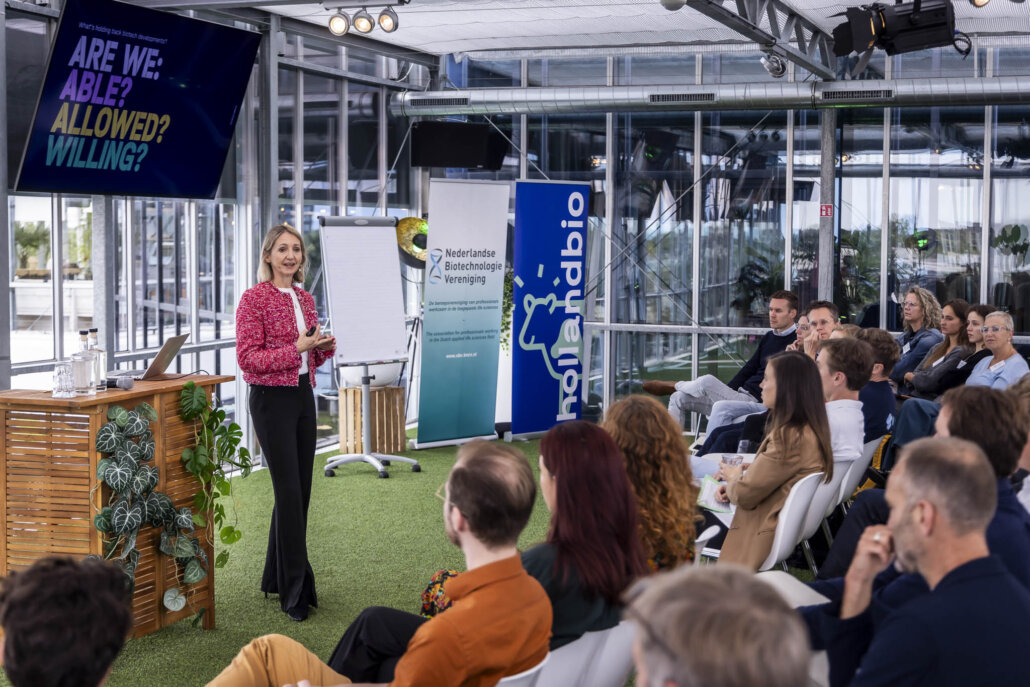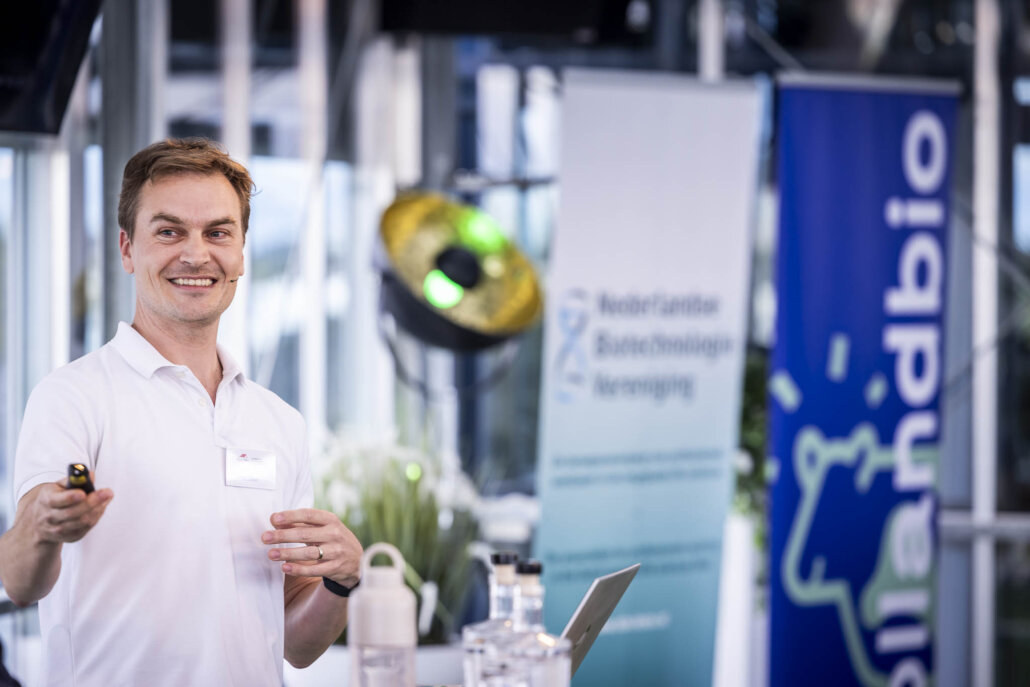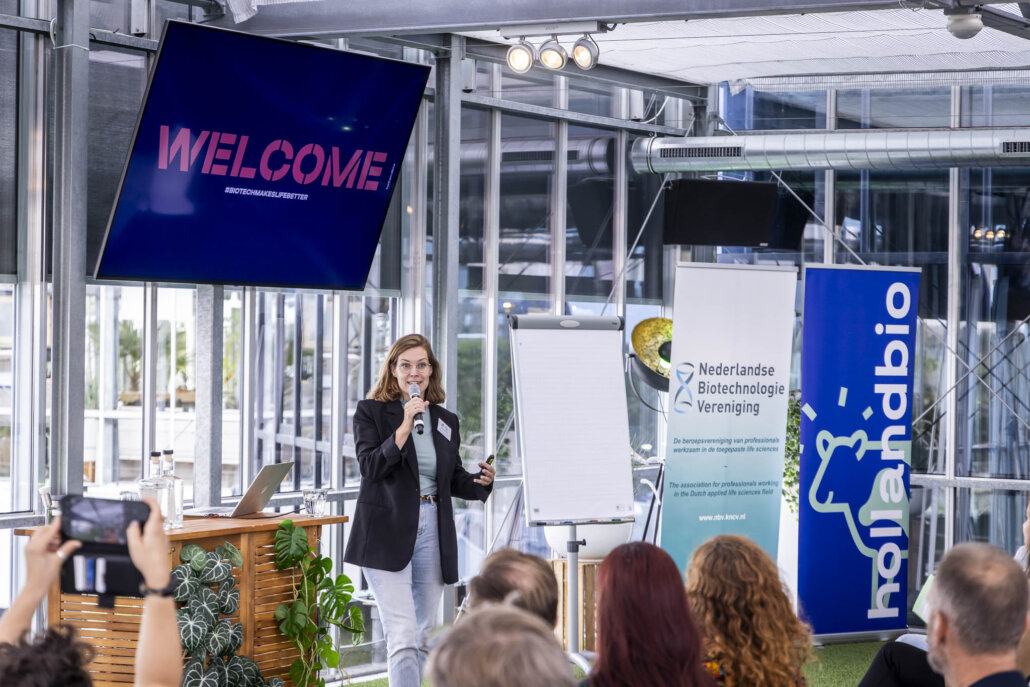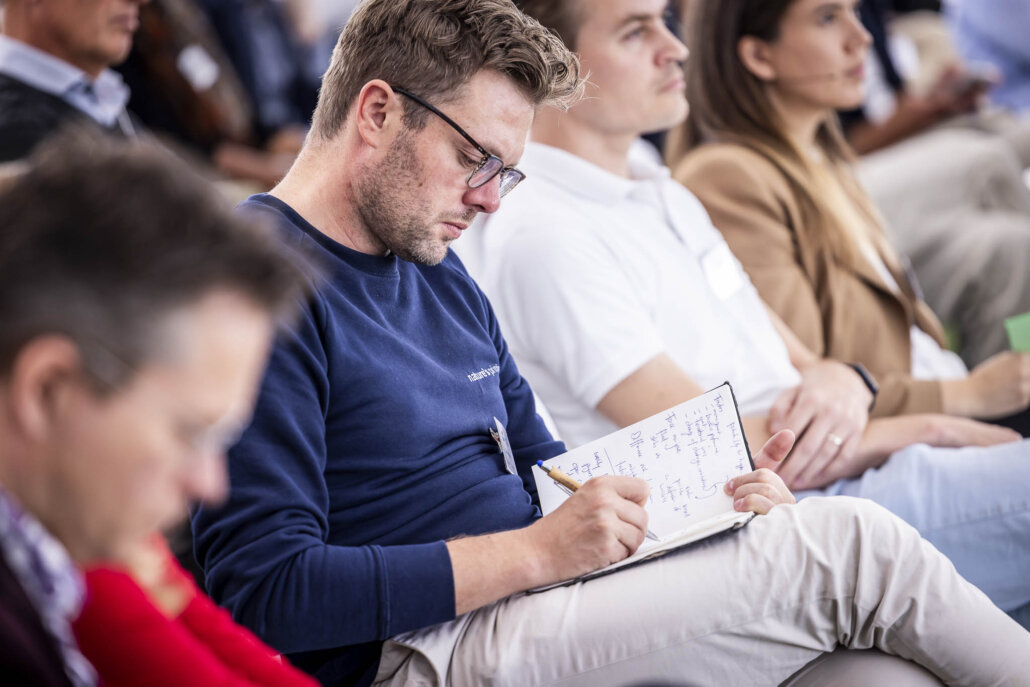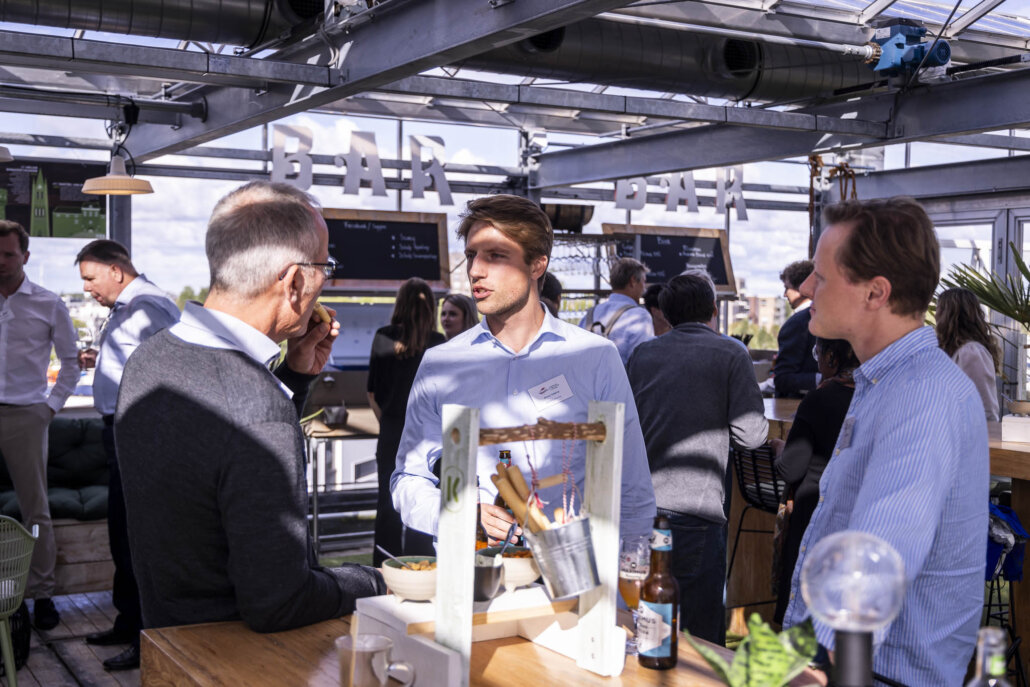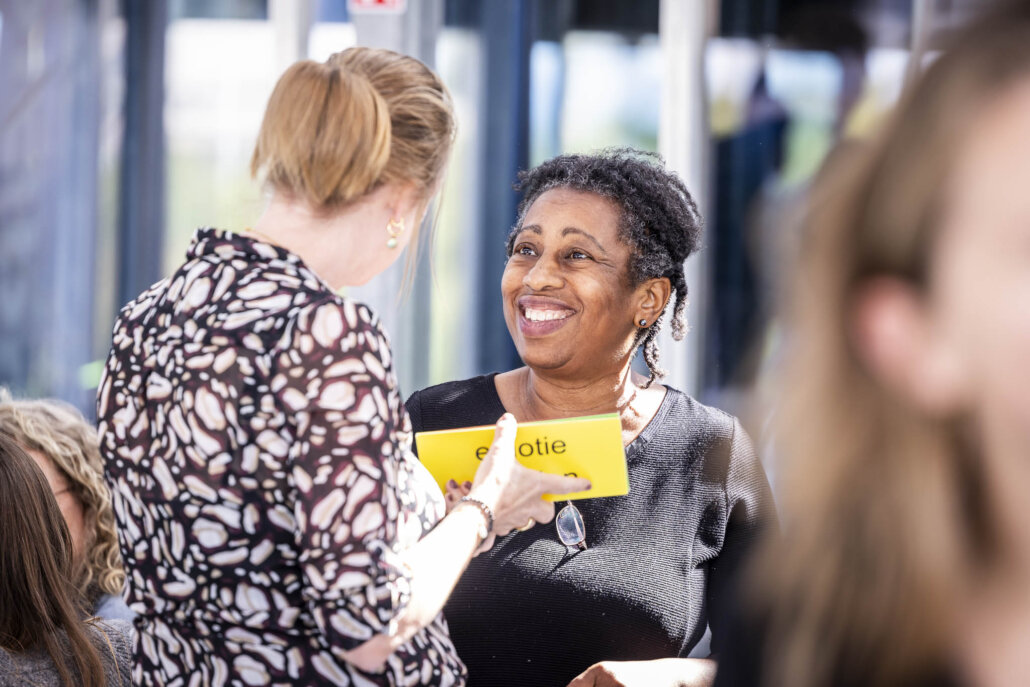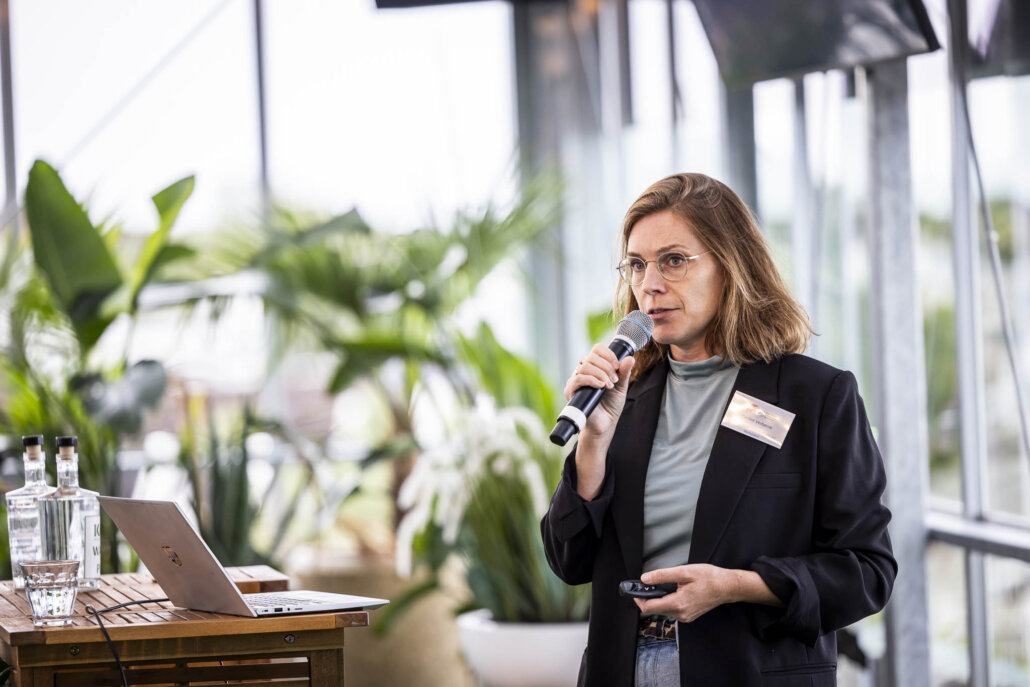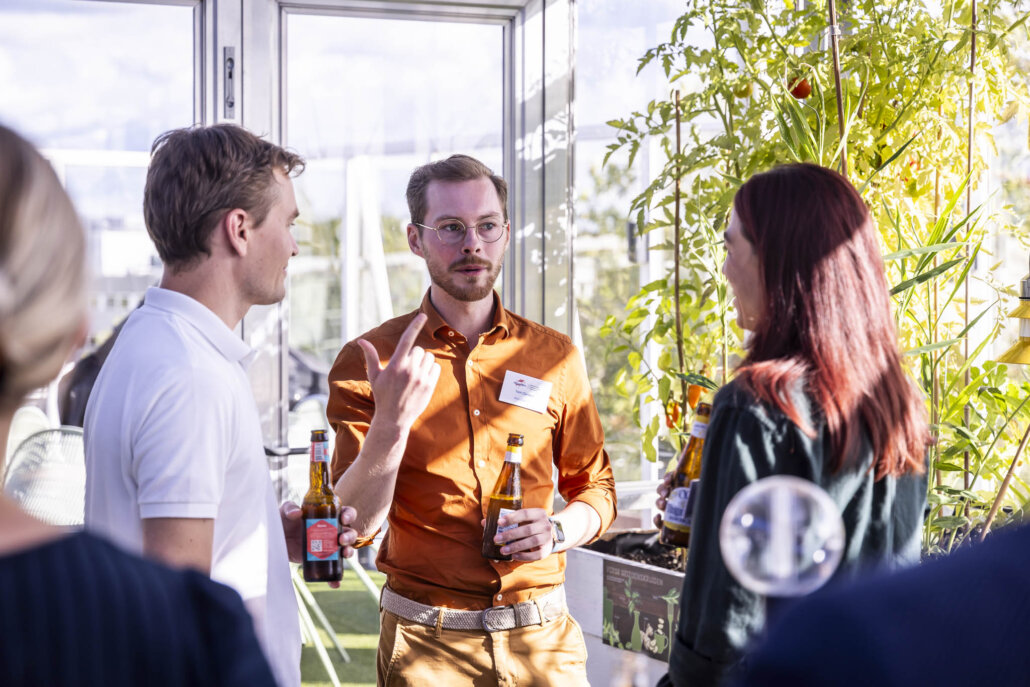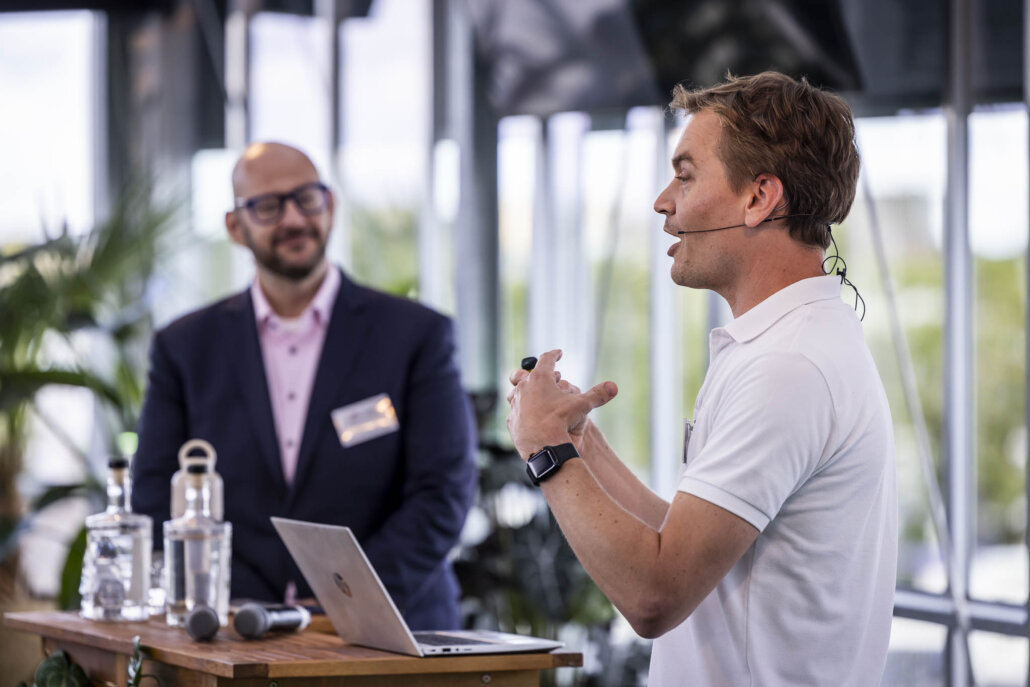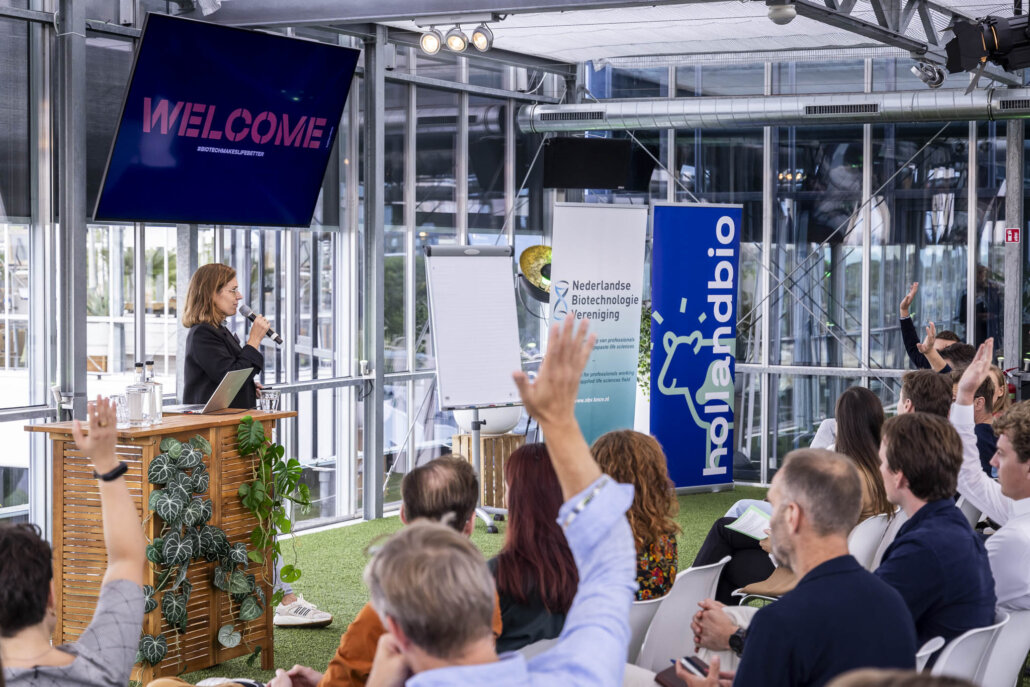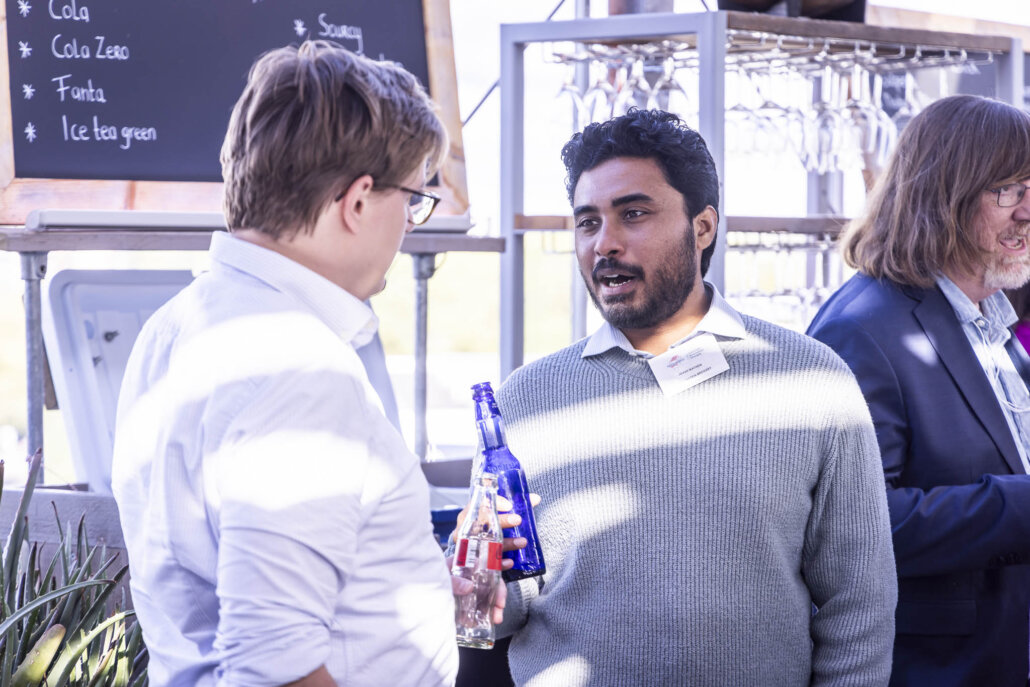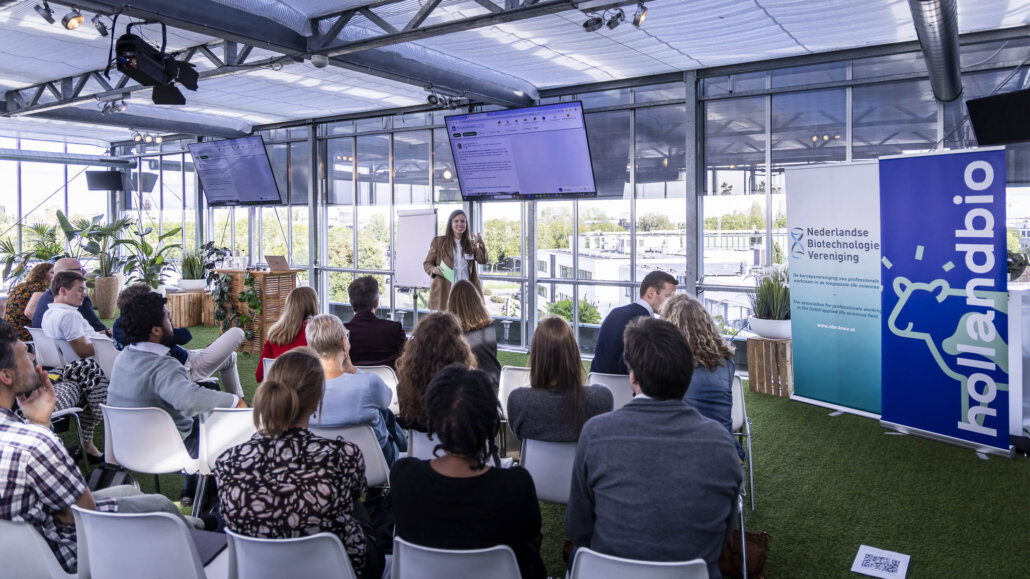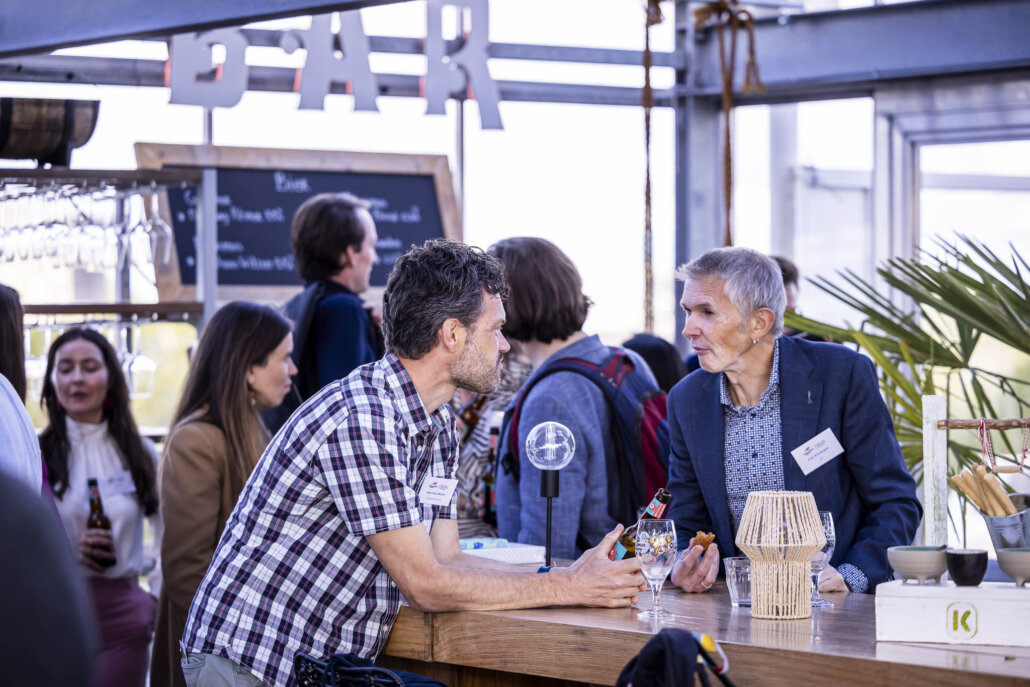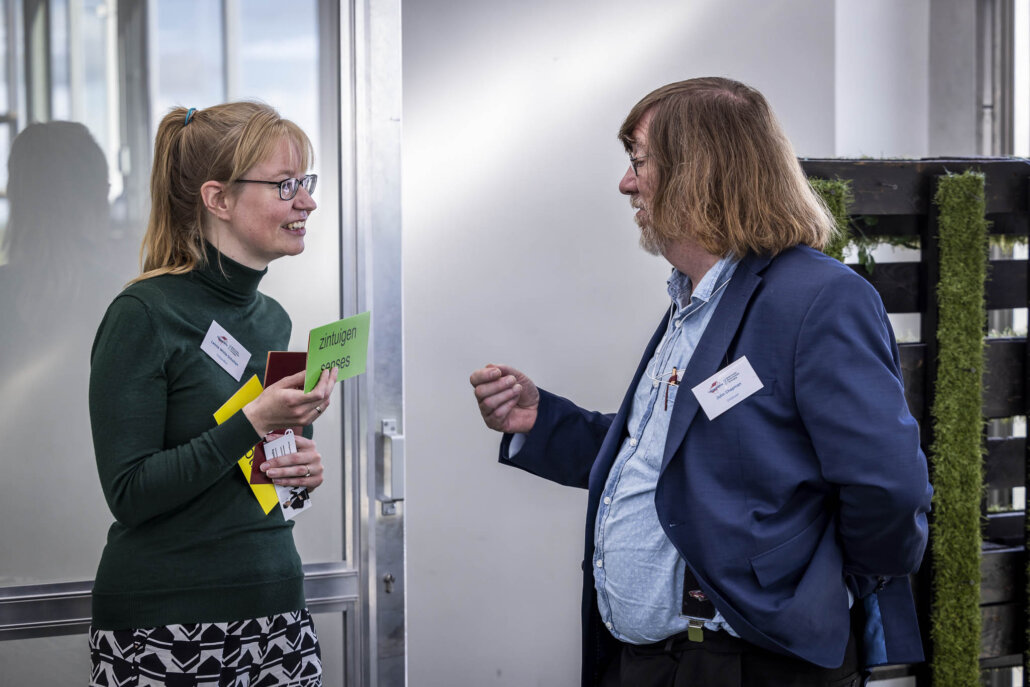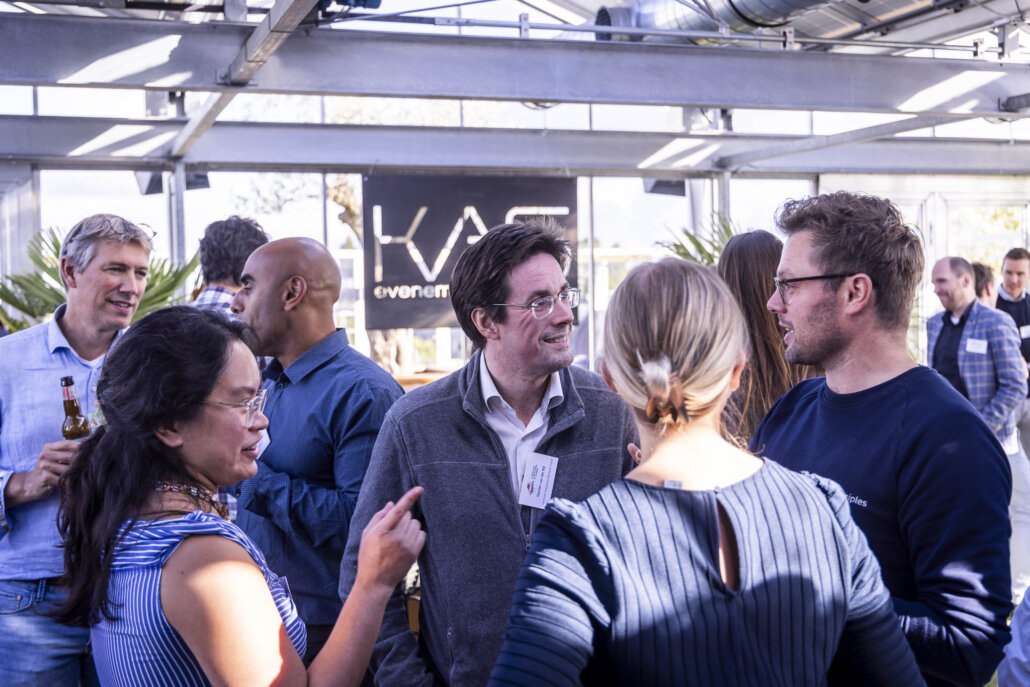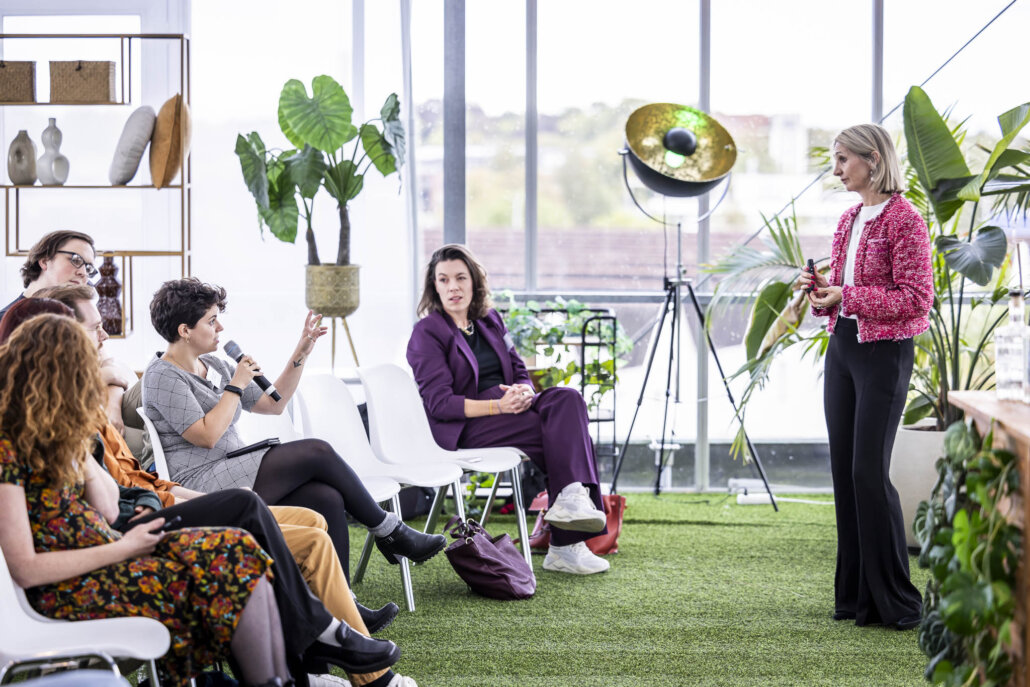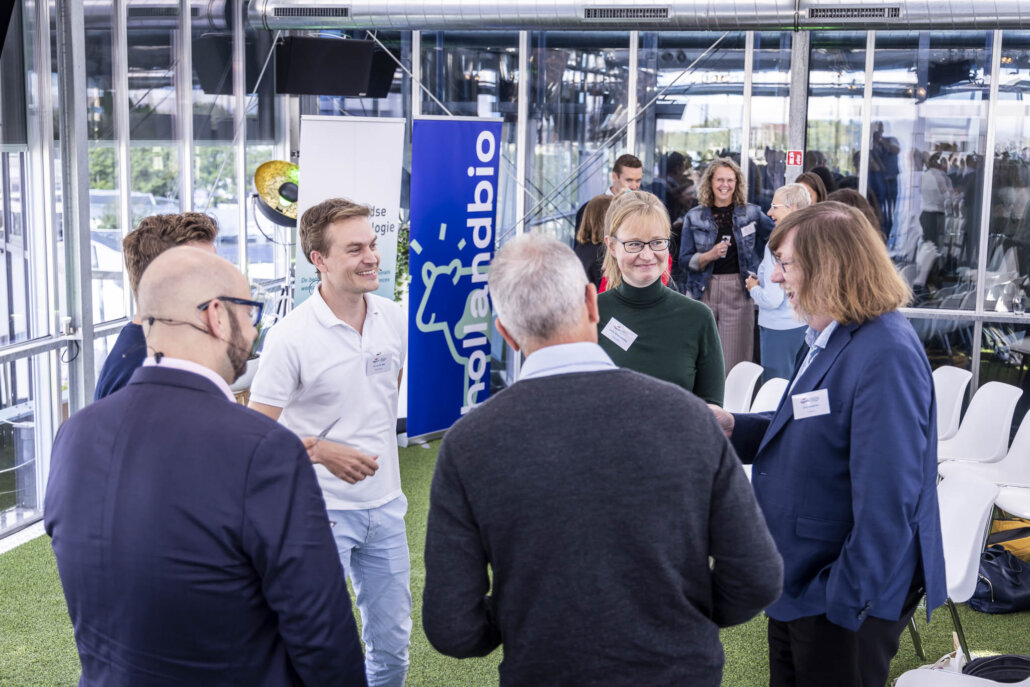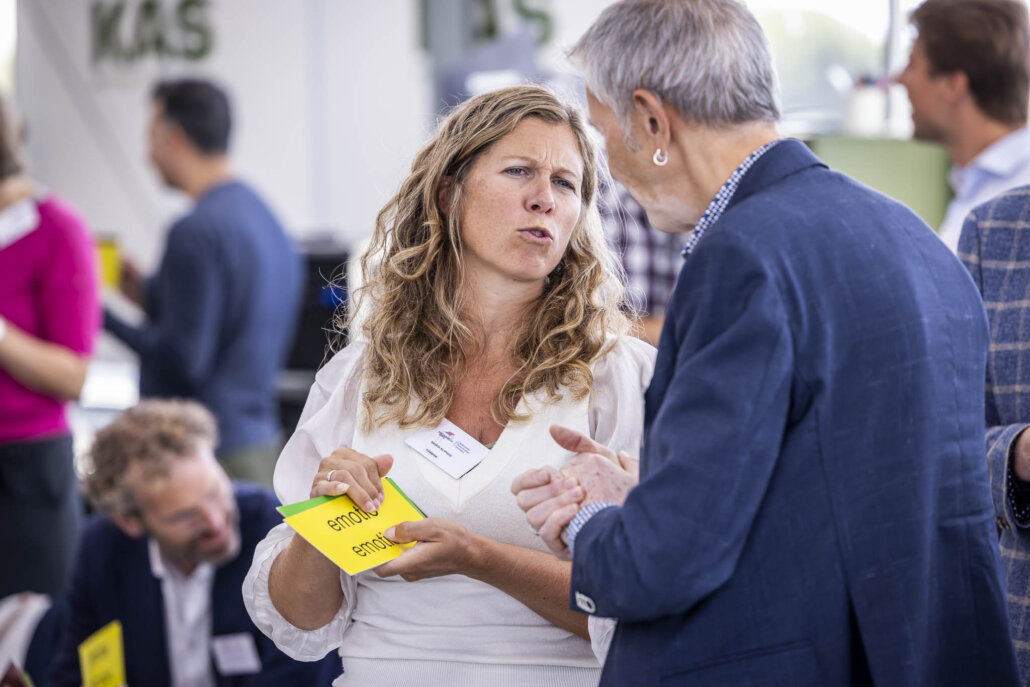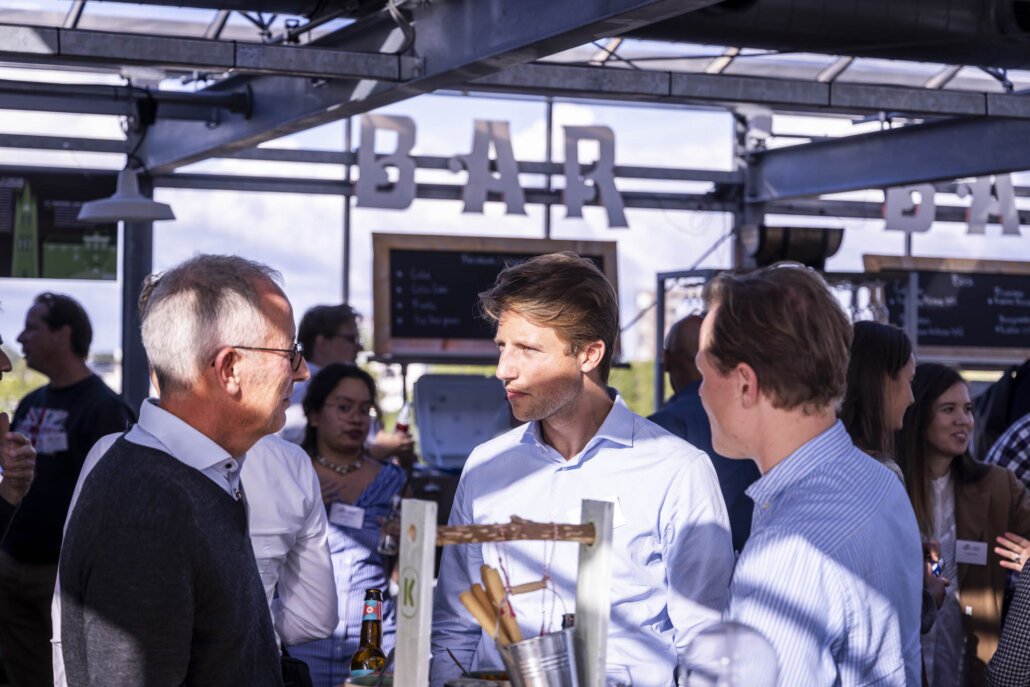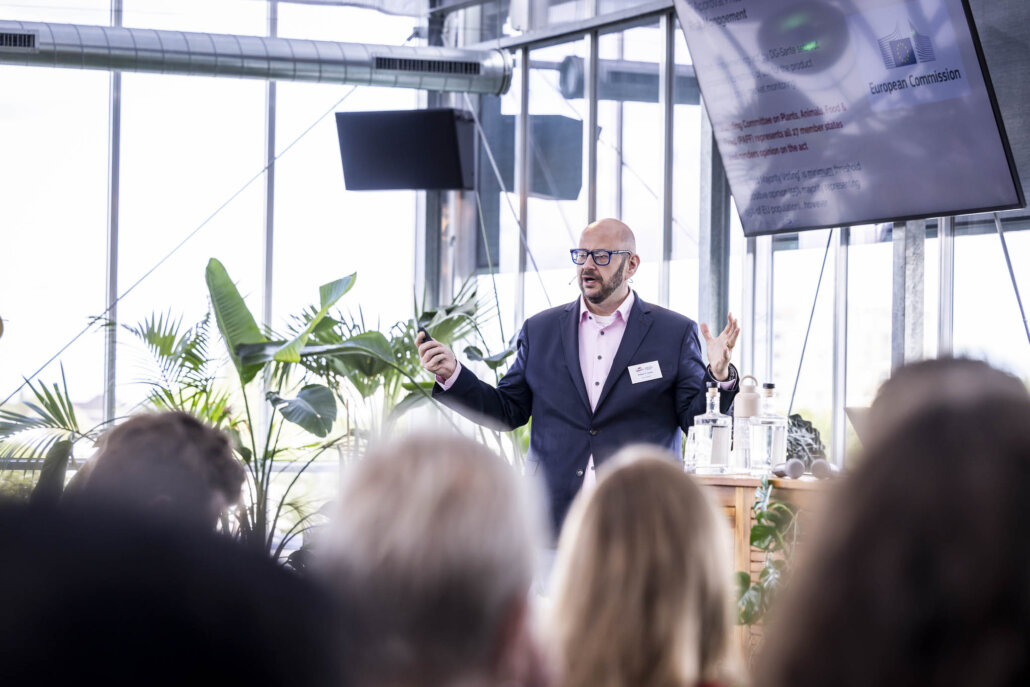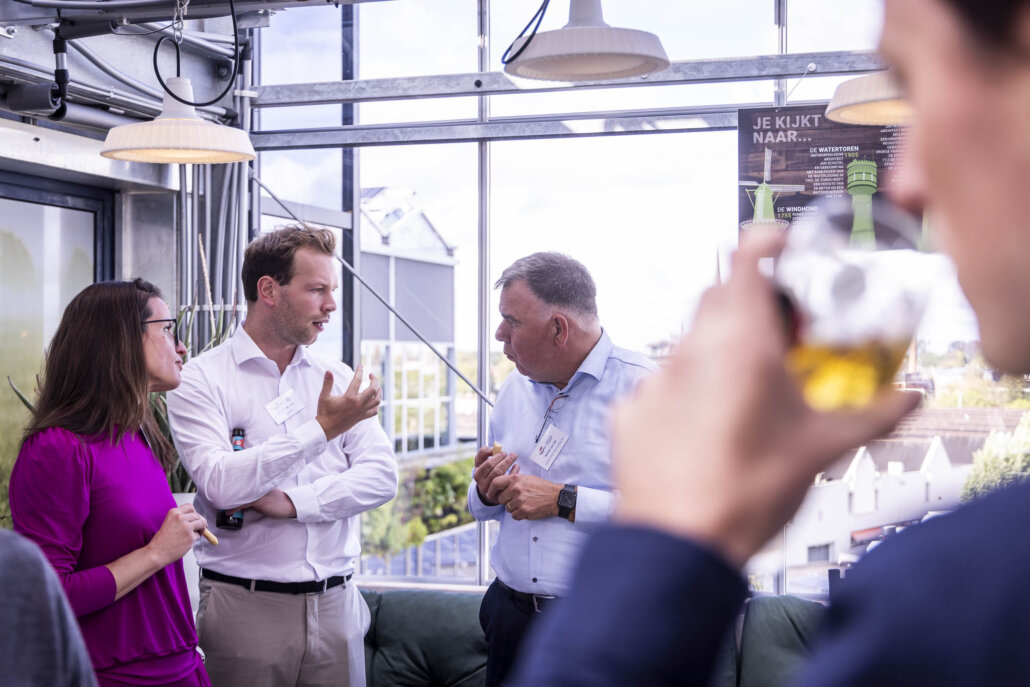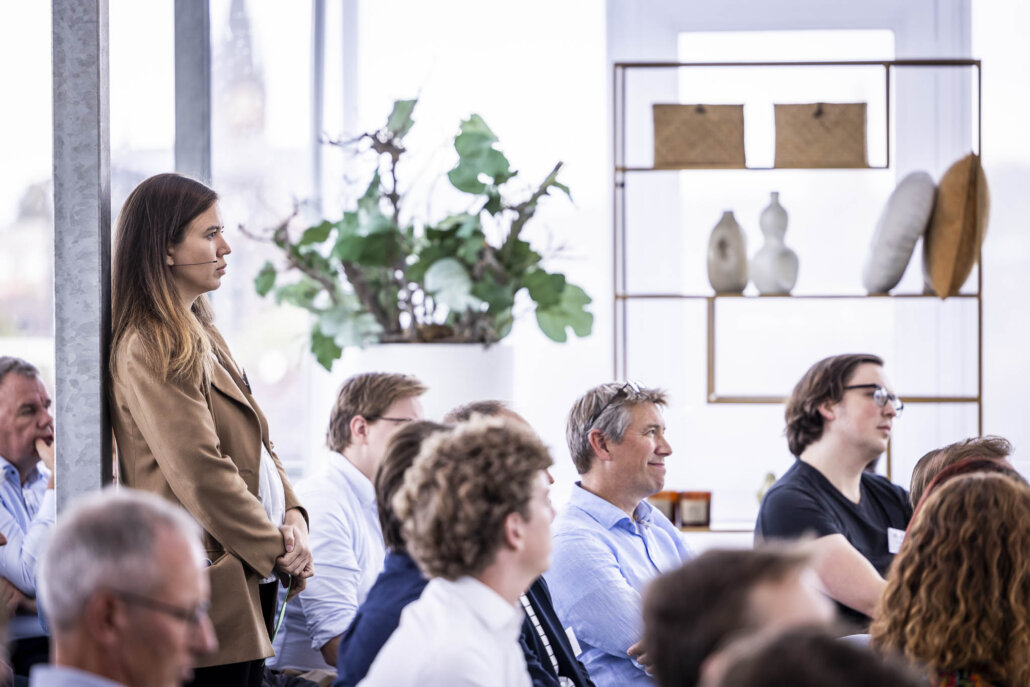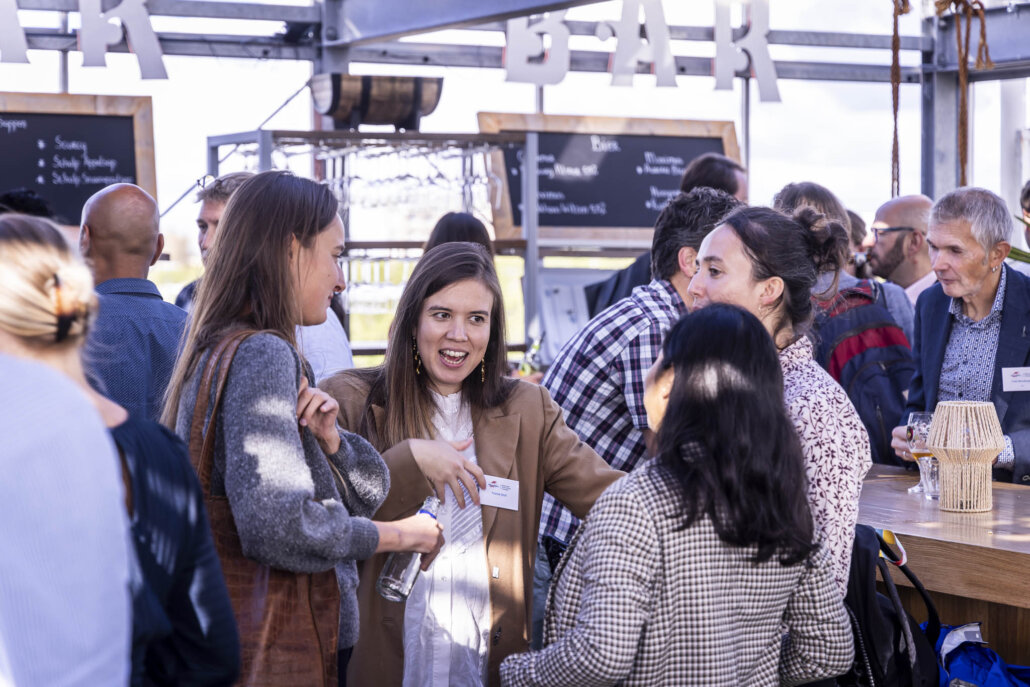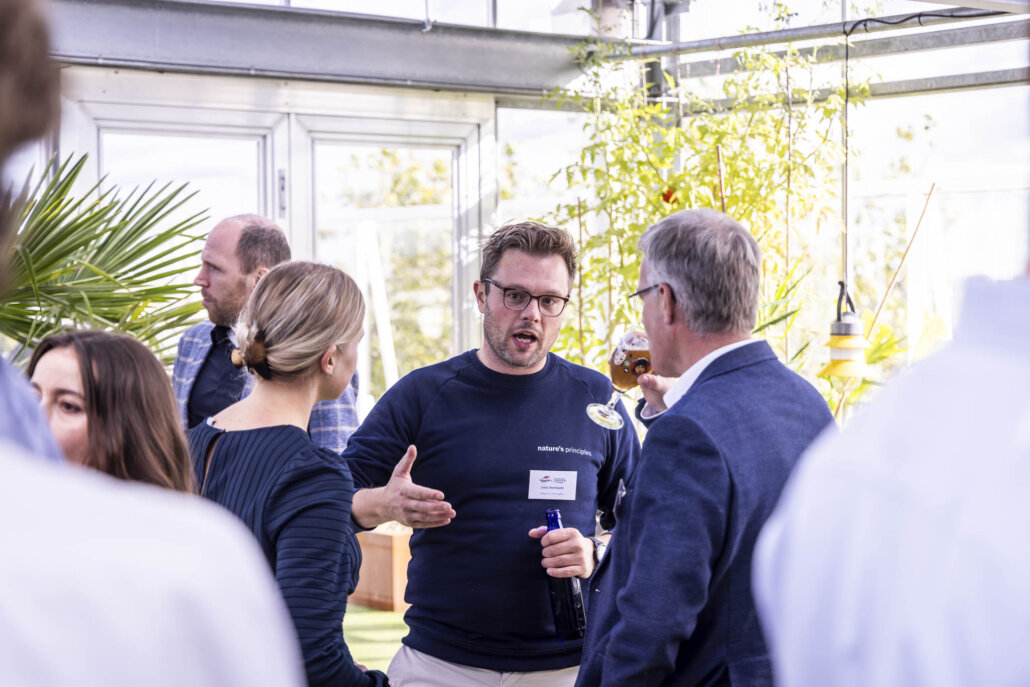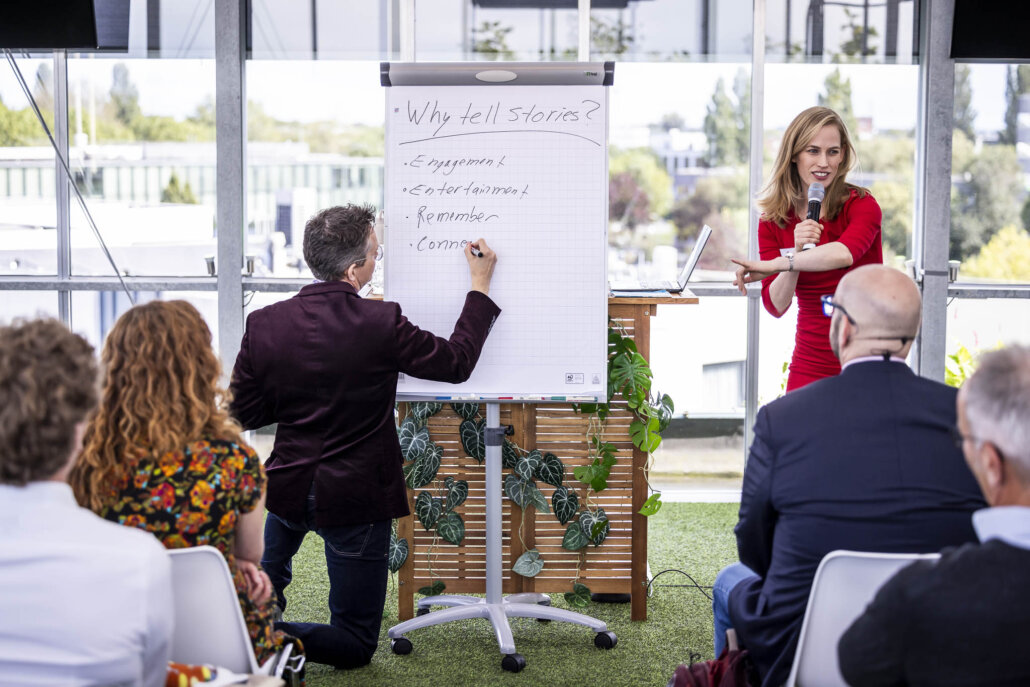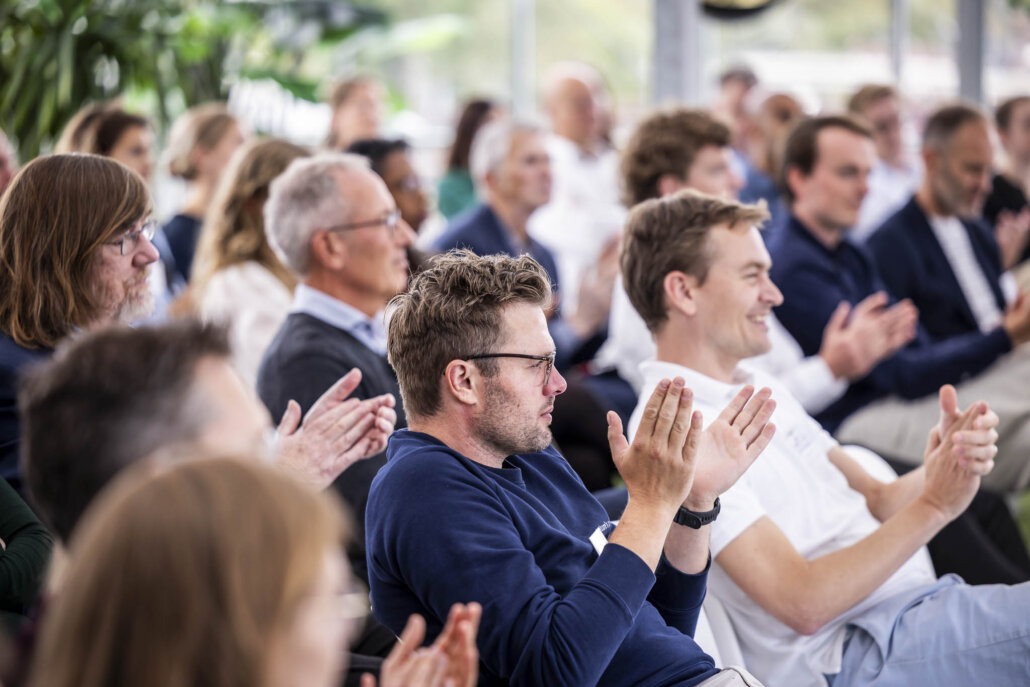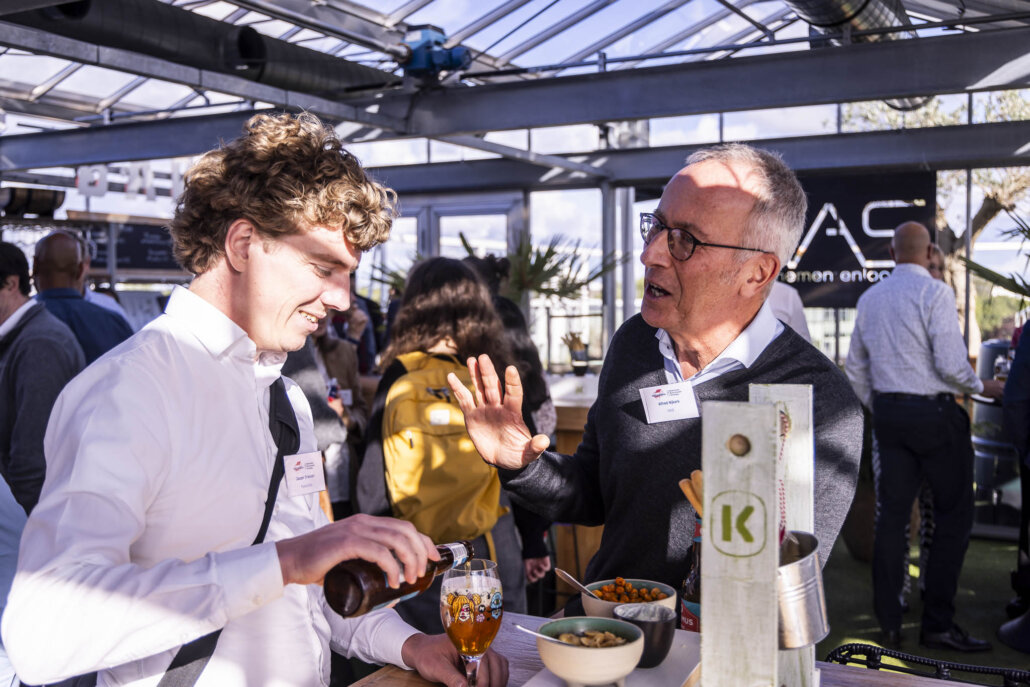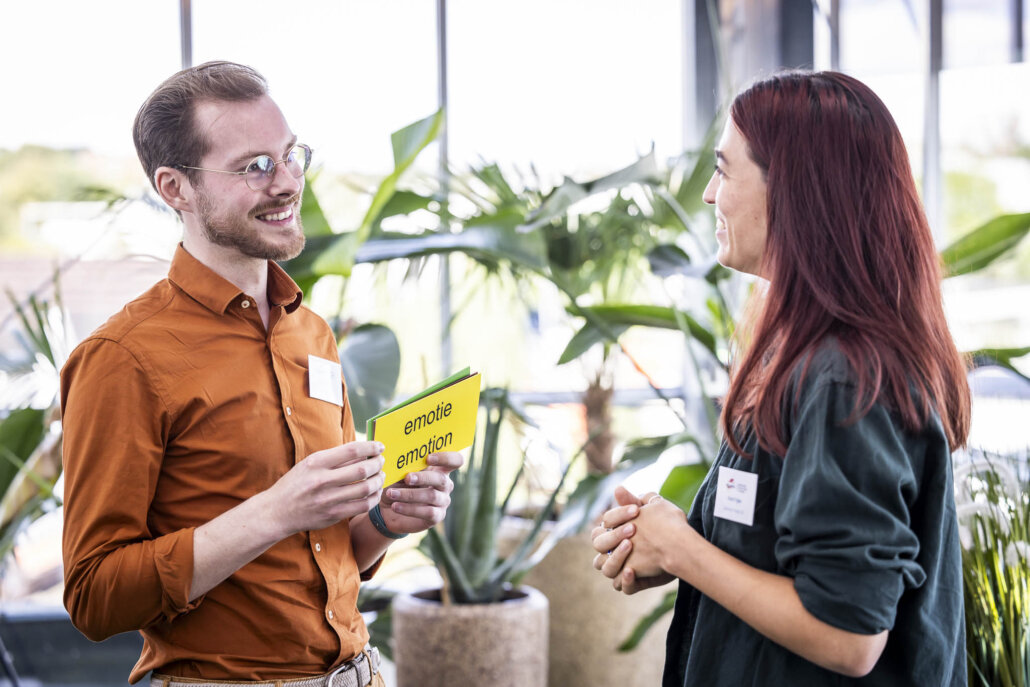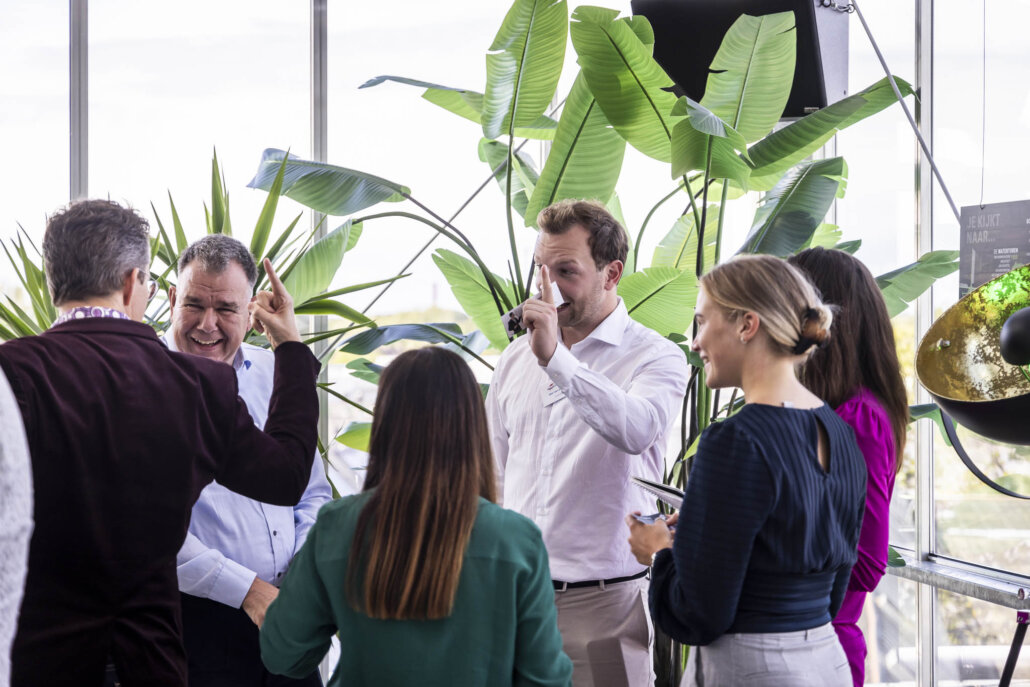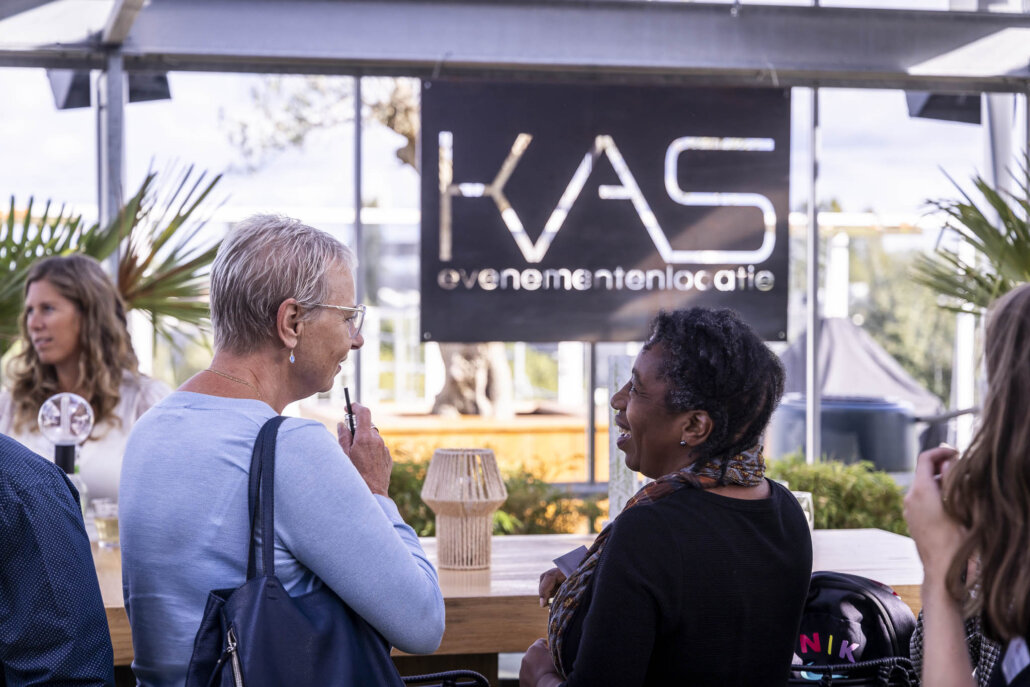Building biotech stories together at Biotech for a sustainable future 2024
Last Thursday we brought together the Dutch agri, food and industrial biotech network at the KAS in Woerden for the third edition of hollandbio’s Biotech for a Sustainable Future event. Together with co-hosts from the Dutch Biotech Association (NBV), we look back on an interactive and inspiring afternoon, during which the participants from industry, academia, government and supporting organizations learned the ins and outs of effective biotech storytelling and received tips and tricks to start biotech influencing themselves!
Moderator Yvonne Smit kicked-off the afternoon by asking the audience what they usually share about their job at birthday parties. While some seemed to have mastered linking their work to easy-to-understand concepts, such as the production of yoghurt, cheese and beer, others shared that they often experience difficulty or even backlash when explaining biotech to others – making it evident that we have a world to win when it comes to storytelling in this sector. To help them get started, Yvonne challenged the audience to share something inspiring about their work on social media during the afternoon using the hashtag #biotechmakeslifebetter.
After a short welcome and introduction by NBV’s Board Member Carlien Verberne-Van der Laak, hollandbio’s Annemiek took the stage to share the learnings of our work with Sue and the Alchemists on creating the cool and science-based narrative that is needed to make biotech land with politics and the public. “Instead of changing our message, we change the packaging,” she explained. “By implementing principles of behavioral design and telling stories that appeal to people’s needs and desires, we can offer others a new window to look at the world and encourage desired behaviors.”
During an interactive workshop, scientific storytellers David Redeker & Marloes ten Kate then showed the audience how easy (and fun!) it can be to create a good story. Through various exercises, they taught the audience three important ingredients for a good story: a character, a problem and a desire. “The main character makes it easier for your audience to identify with the story,” Marloes said. “And then you can spice it up even more by adding actions, emotions and sensations to the facts, as to create more context and urgency,” David added.
Last but not least, Tim van der Rijdt and Robert Jones shared their journey of communicating Mosa Meat’s reimagined way of making beef to the world. After the company introduced their first hamburger made from cells in 2013, they have continuously worked on perfecting their story arc for different audiences, whether it’s their intended consumer target group of ‘meat lovers’, or the stakeholders that allow them to sell their product in the first place. “To keep all doors and windows open, we try to amplify the champions that could influence people’s decision making,” Robert shared. “And through a shared voice and messaging of multiple cultivated meat companies, we can even contribute to broader societal acceptance,” added Tim.
Yvonne closed the plenary program by going through the social media posts uploaded by the audience’s aspiring biotech influencers. We saw lots of pictures of the beautiful, green event location, and examples of biotech applications that make food and materials more sustainable and discussed together how we can use stories like this to maximize the sector’s impact.
We want to thank our co-hosts, speakers and participants for making this day a great success and everyone to more frequently share with others what they do and why it matters. This way we can show the world, both on- and offline, how we make life better with biotech!
